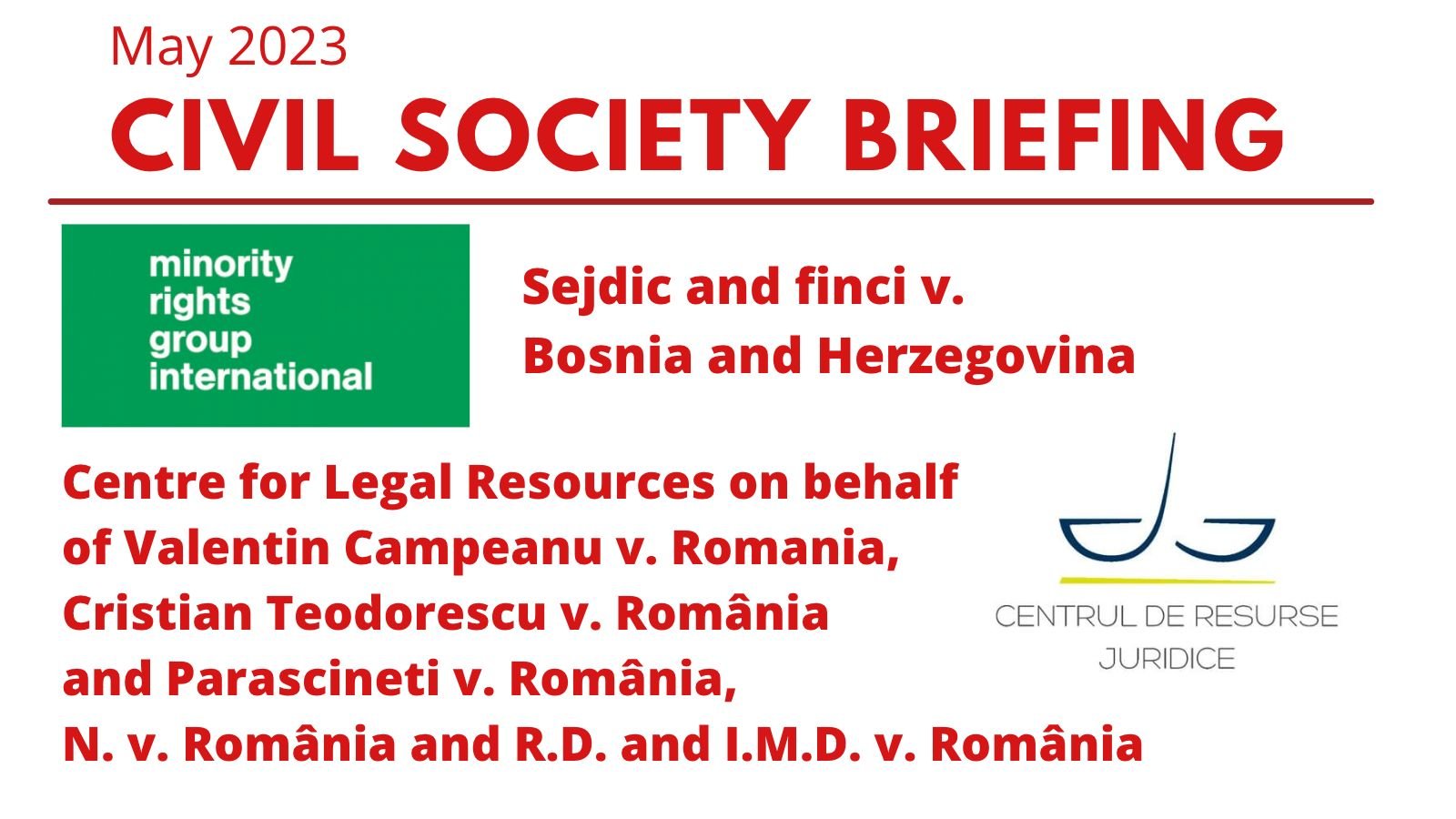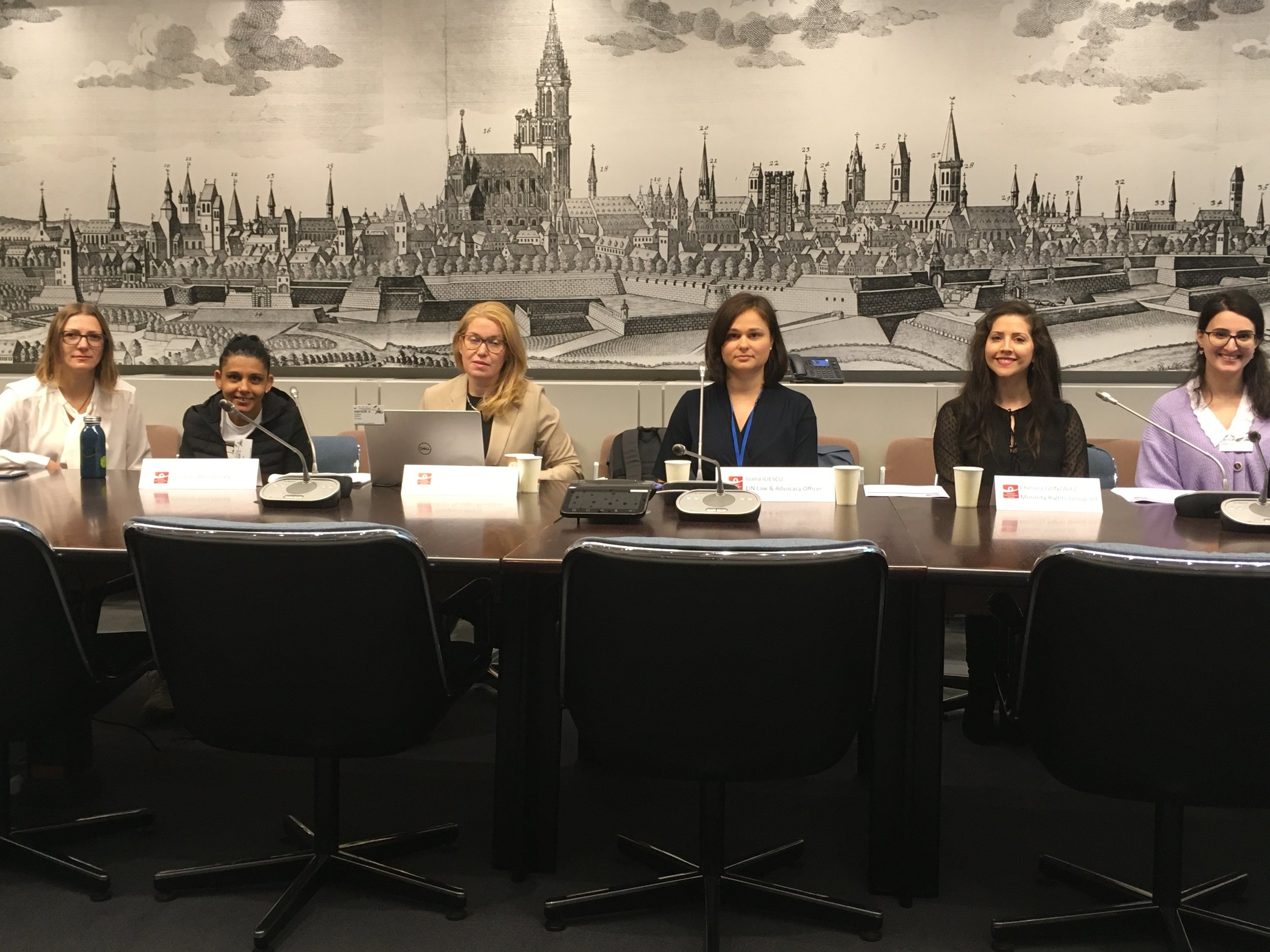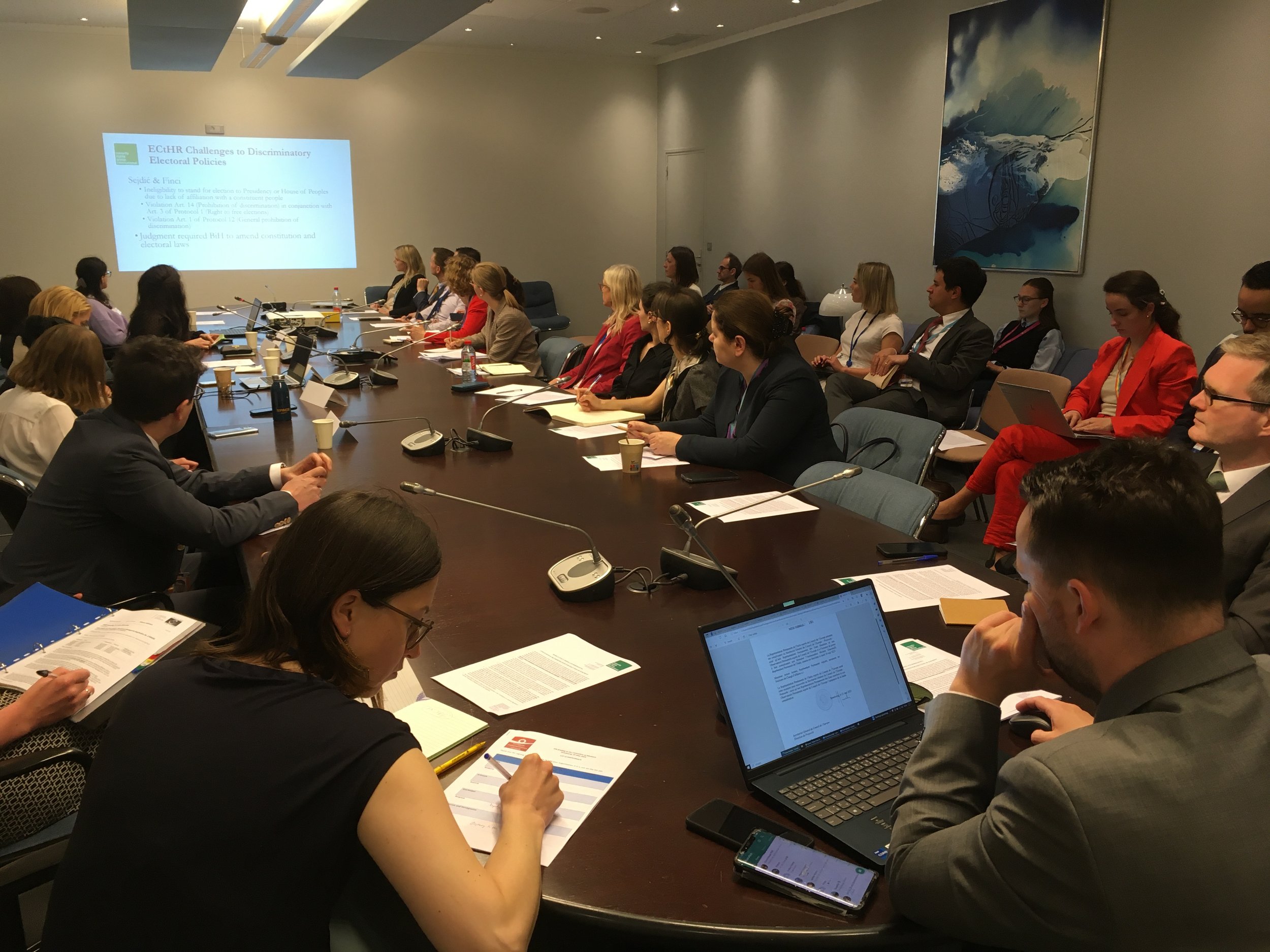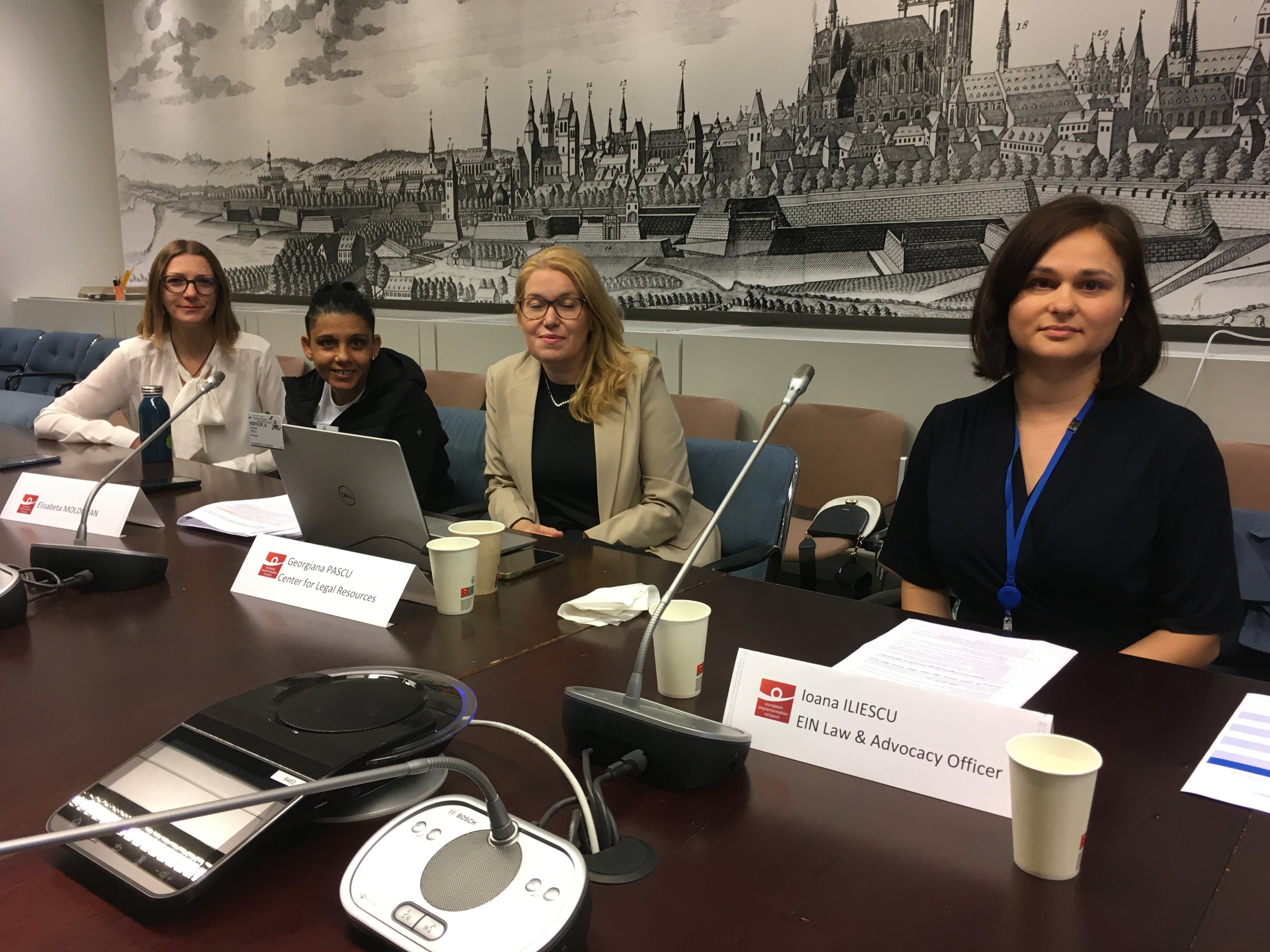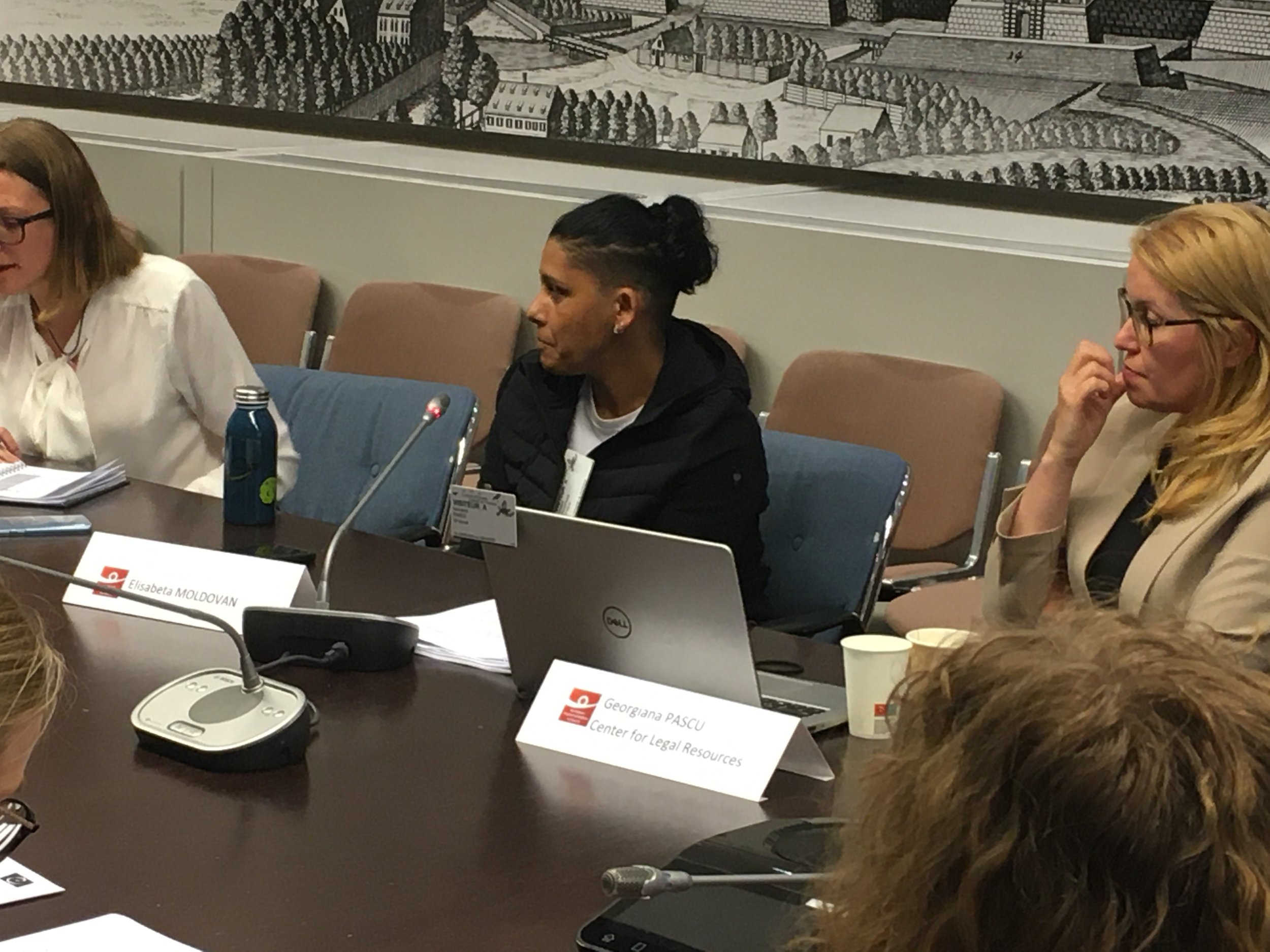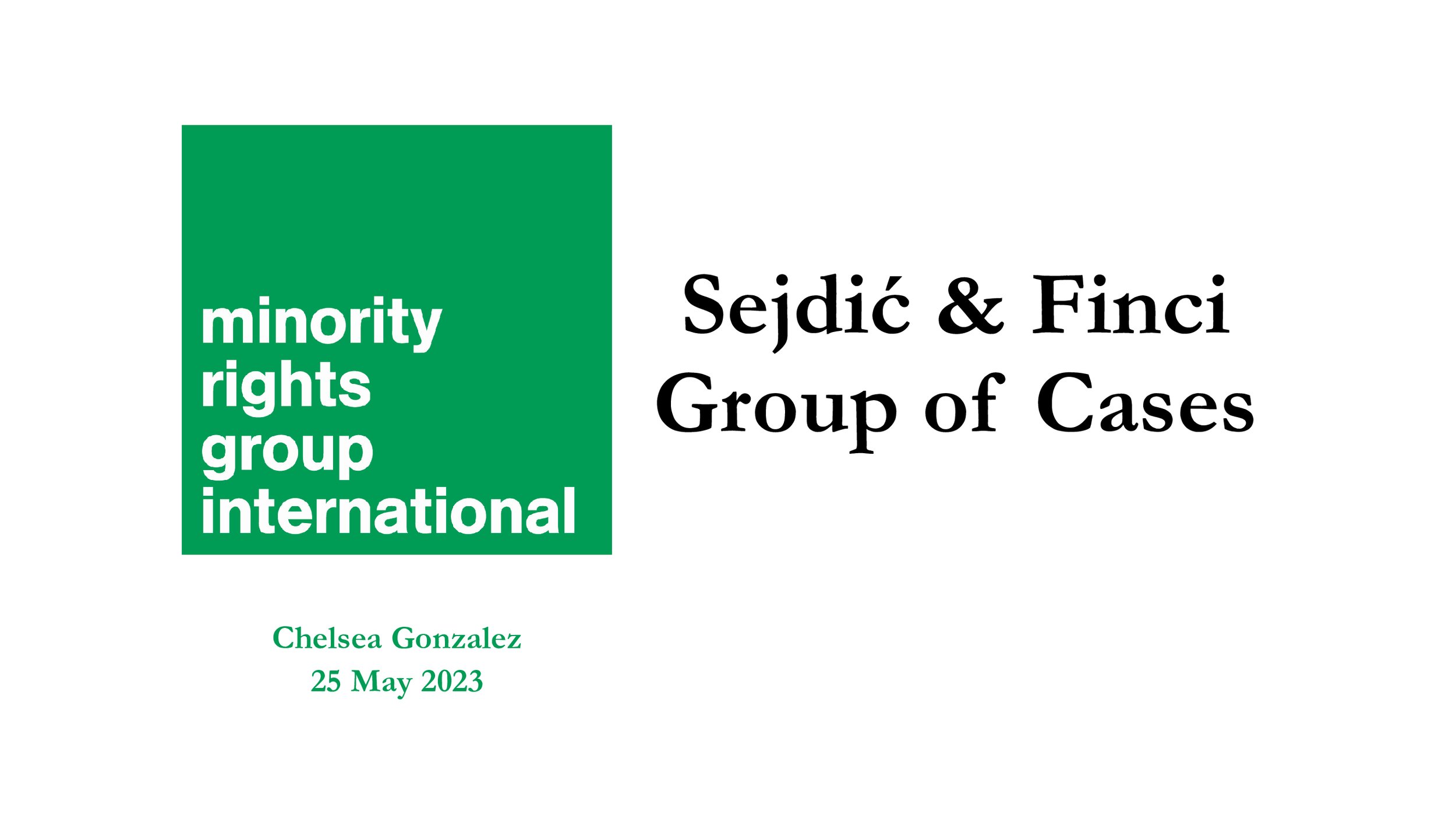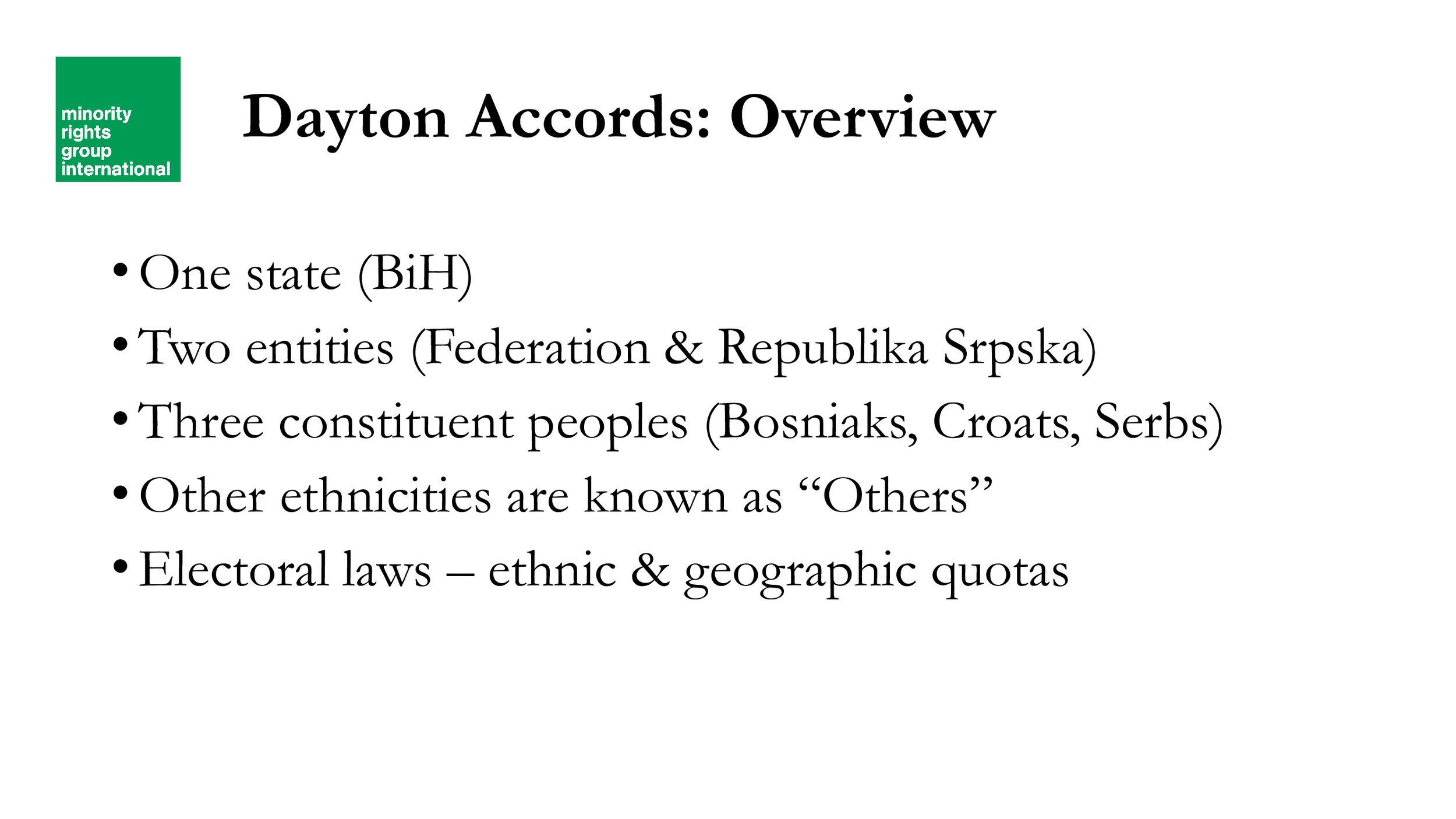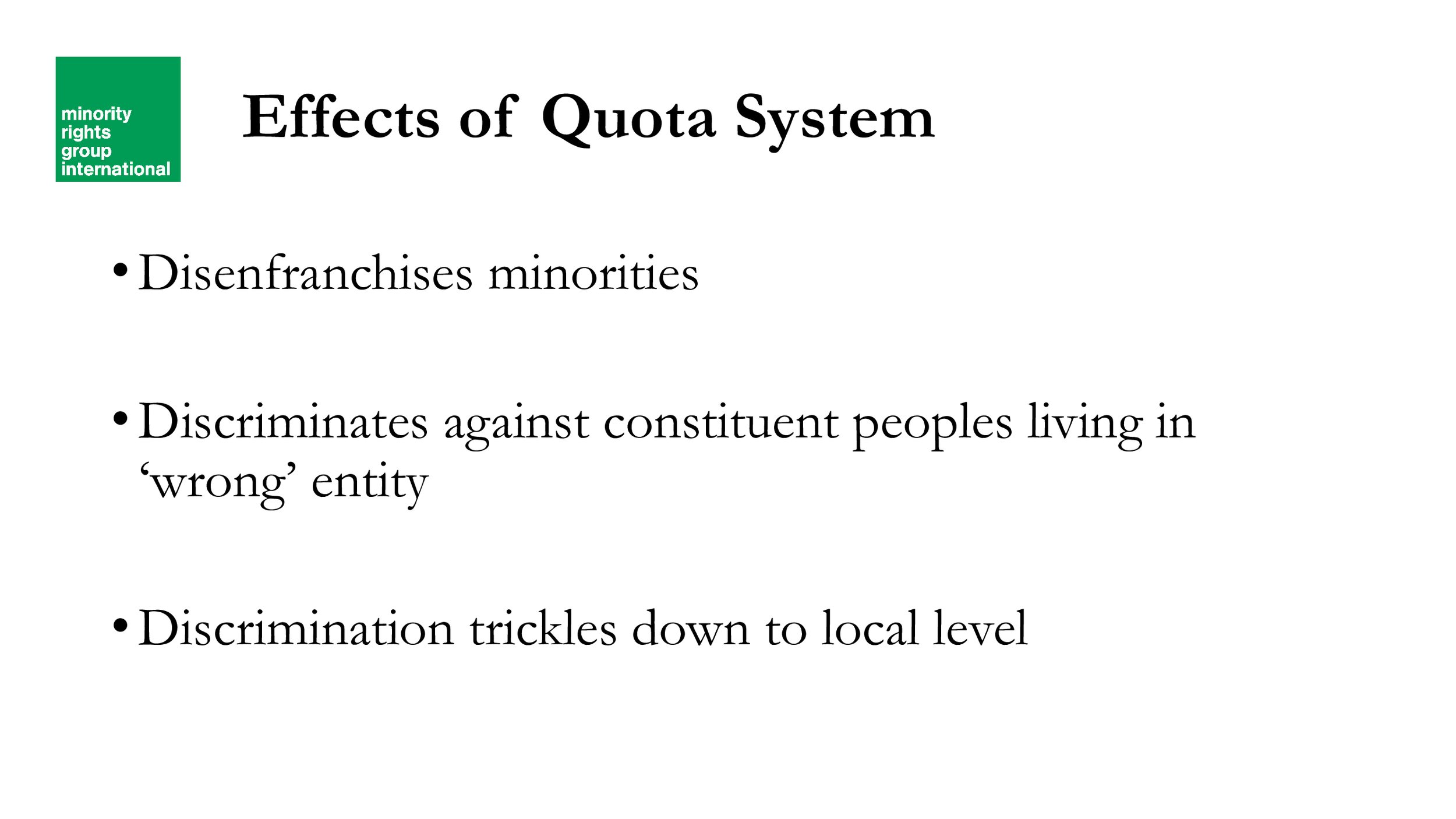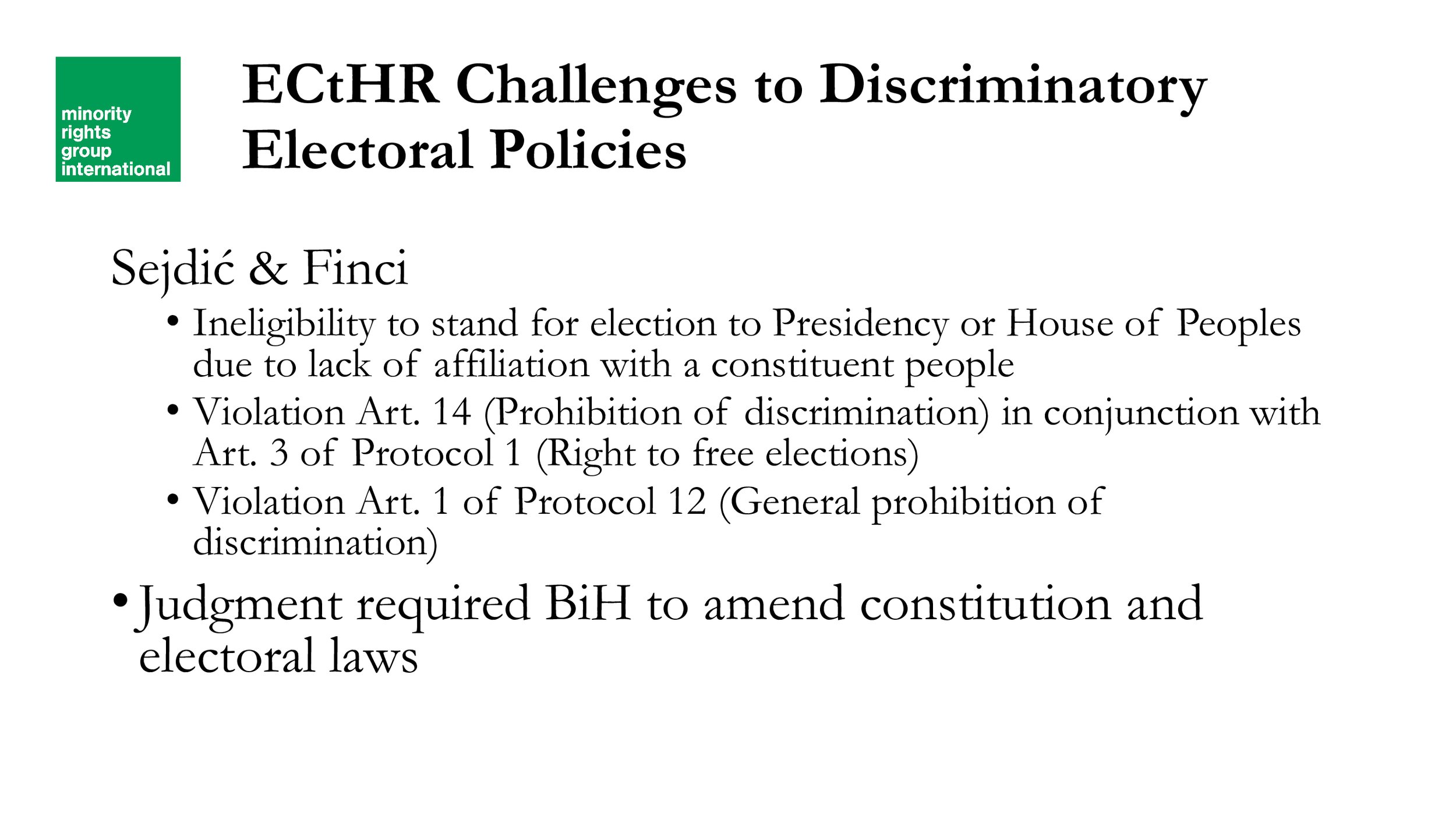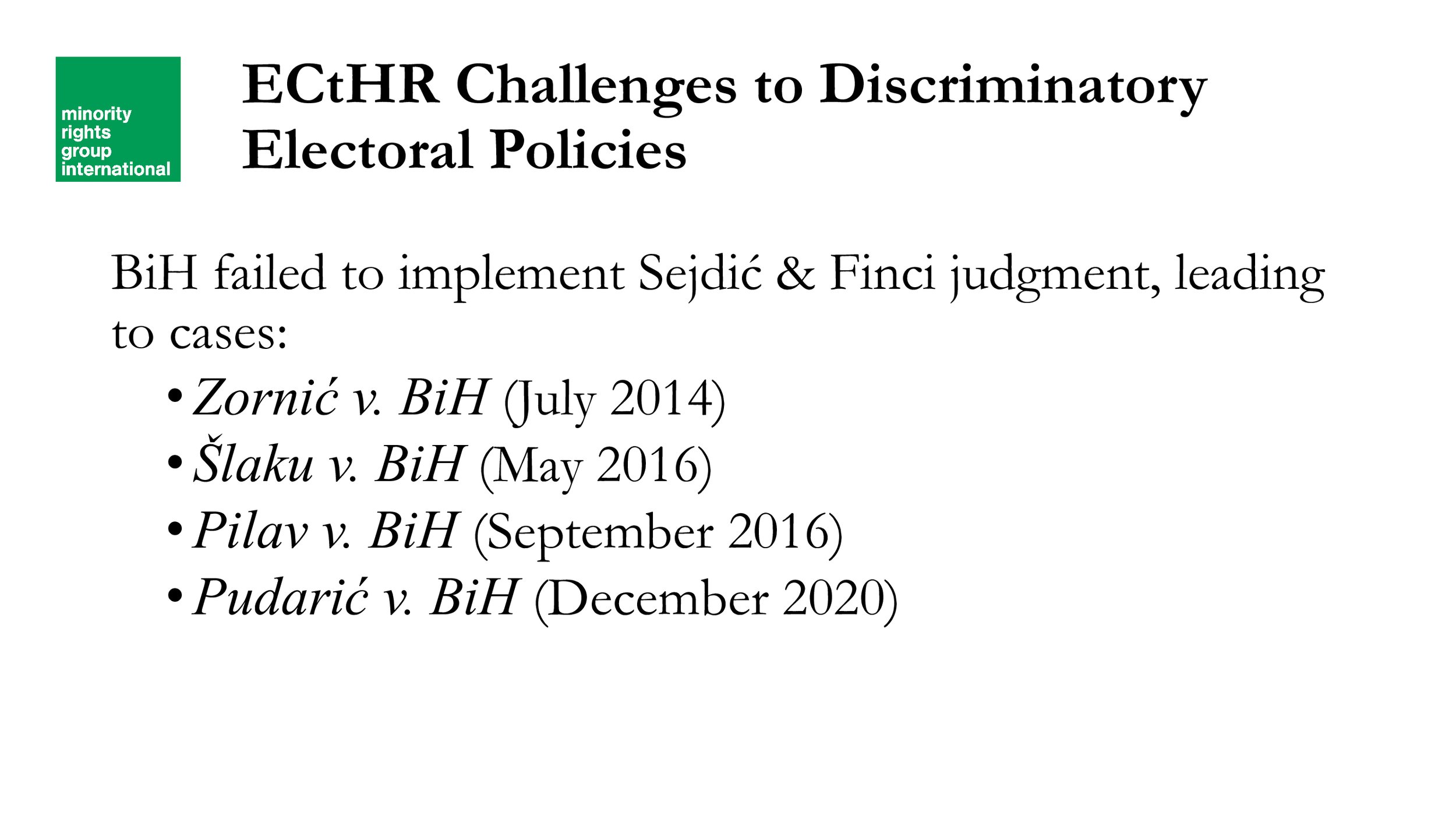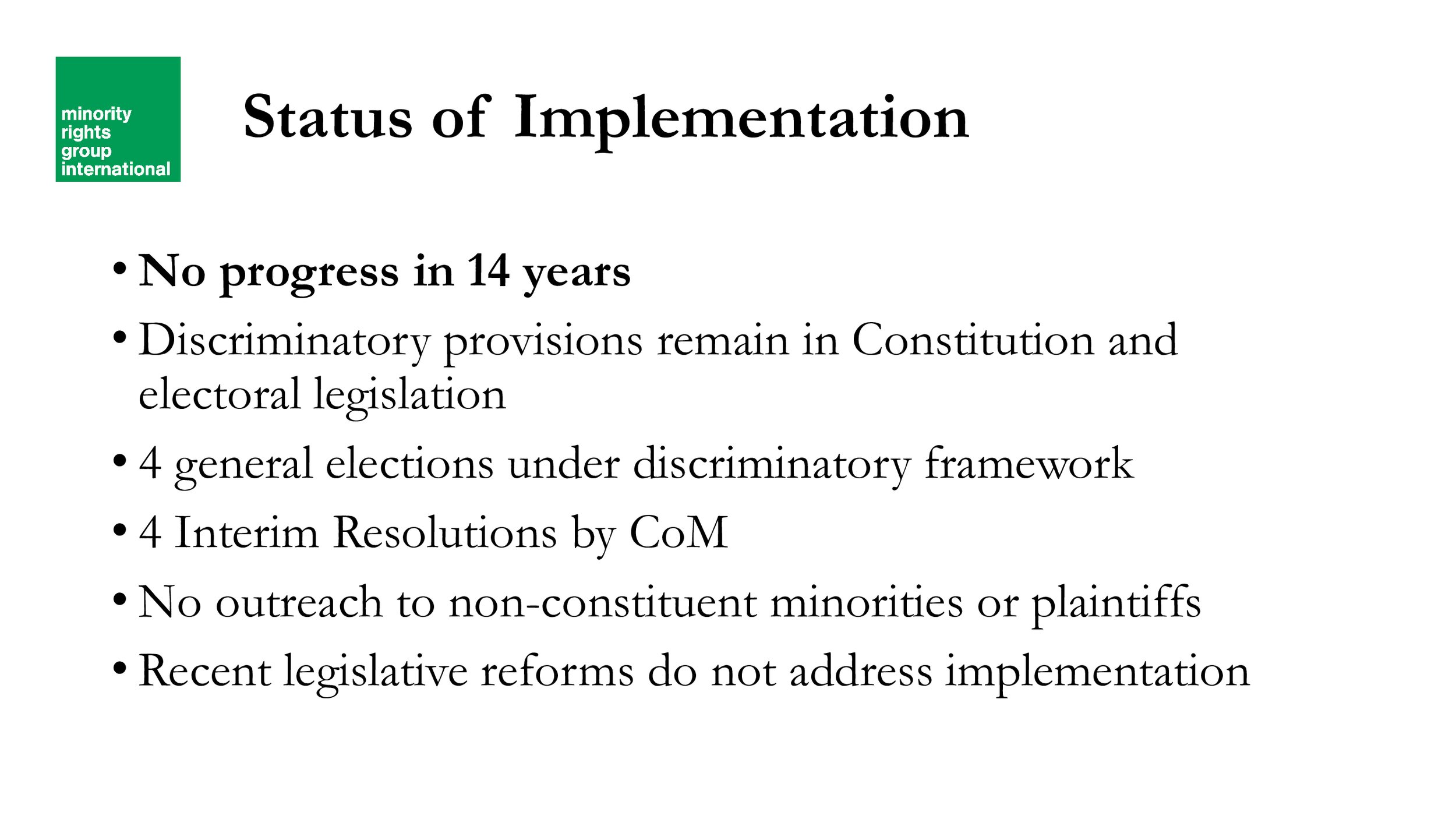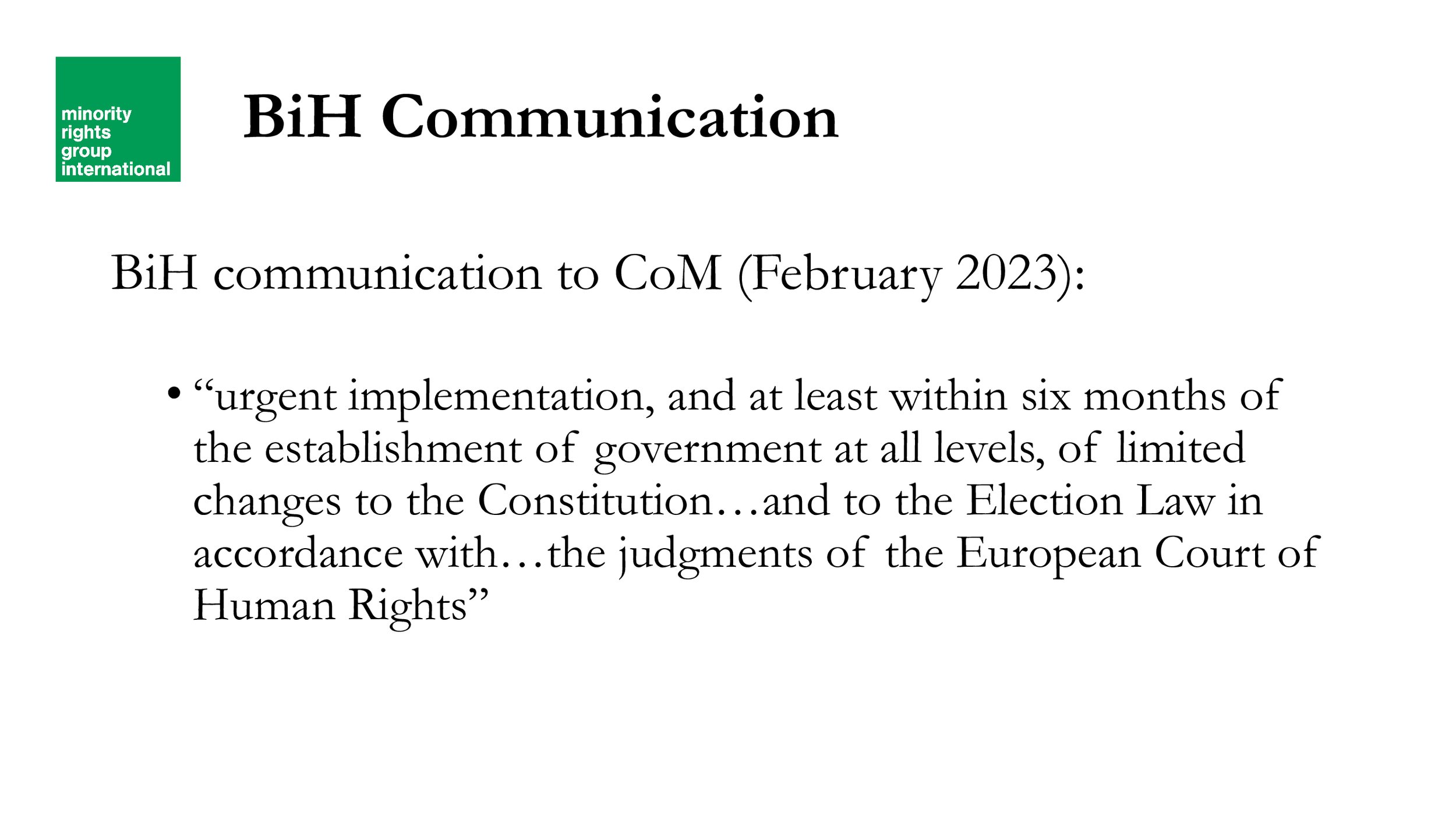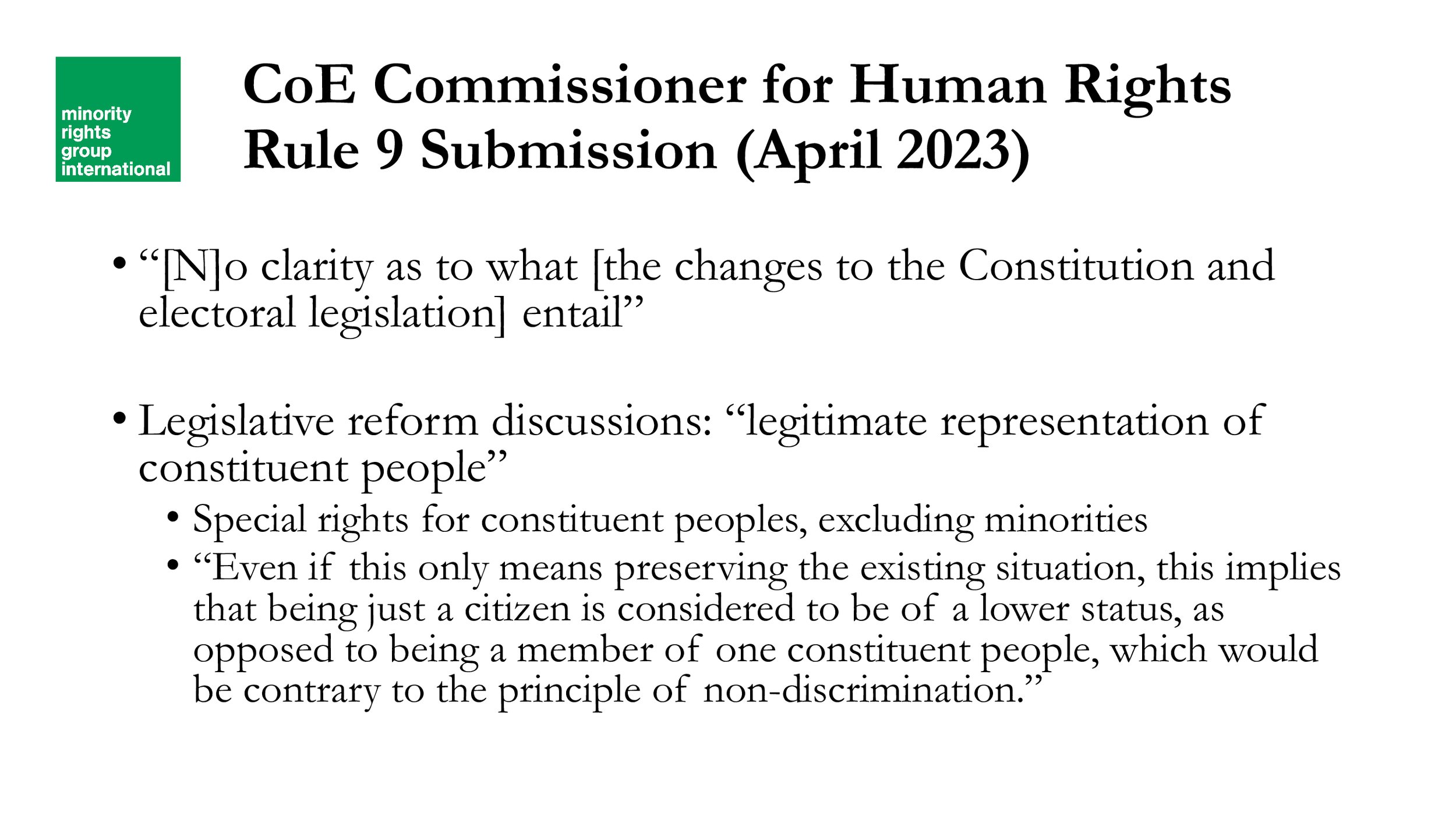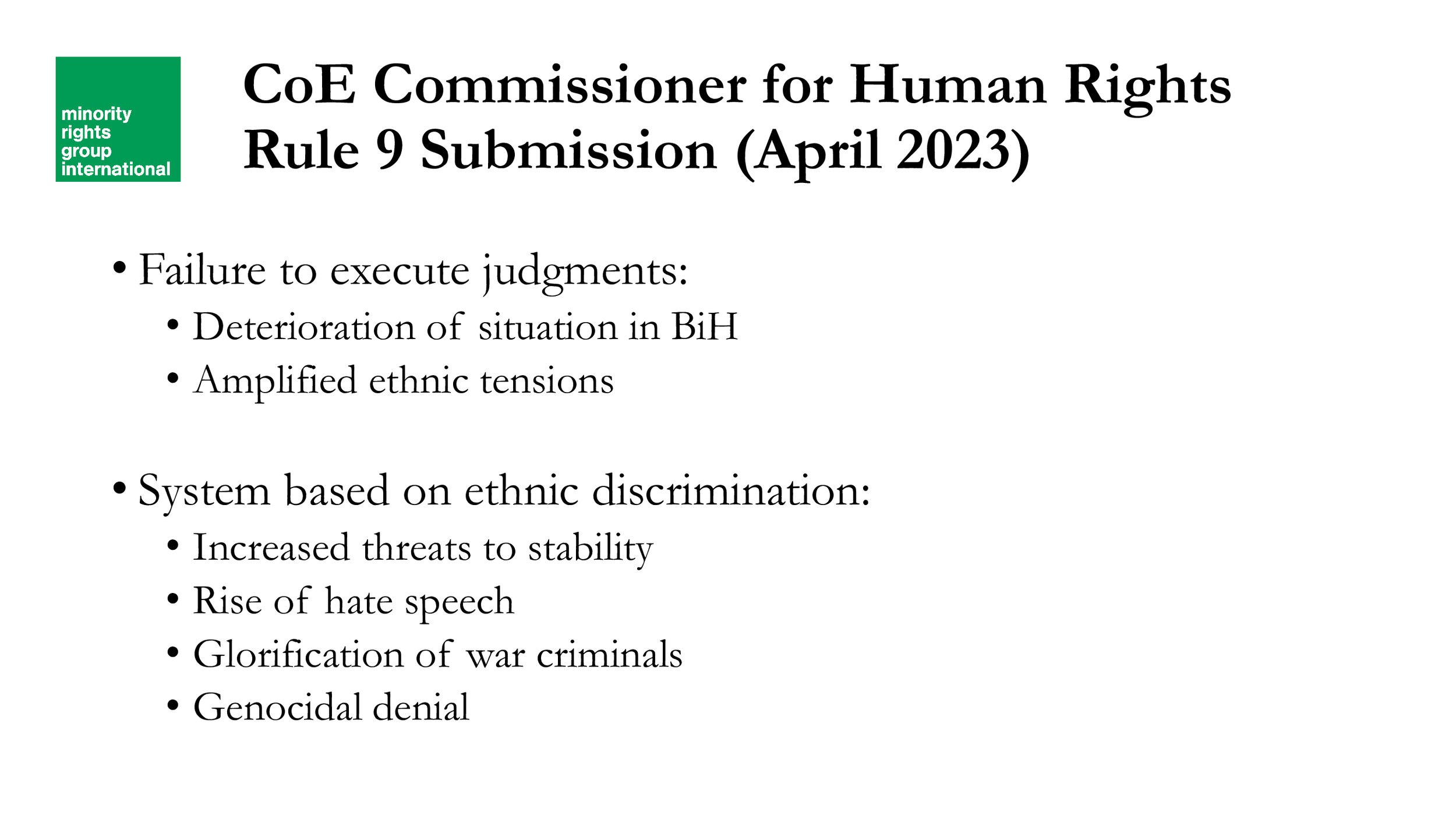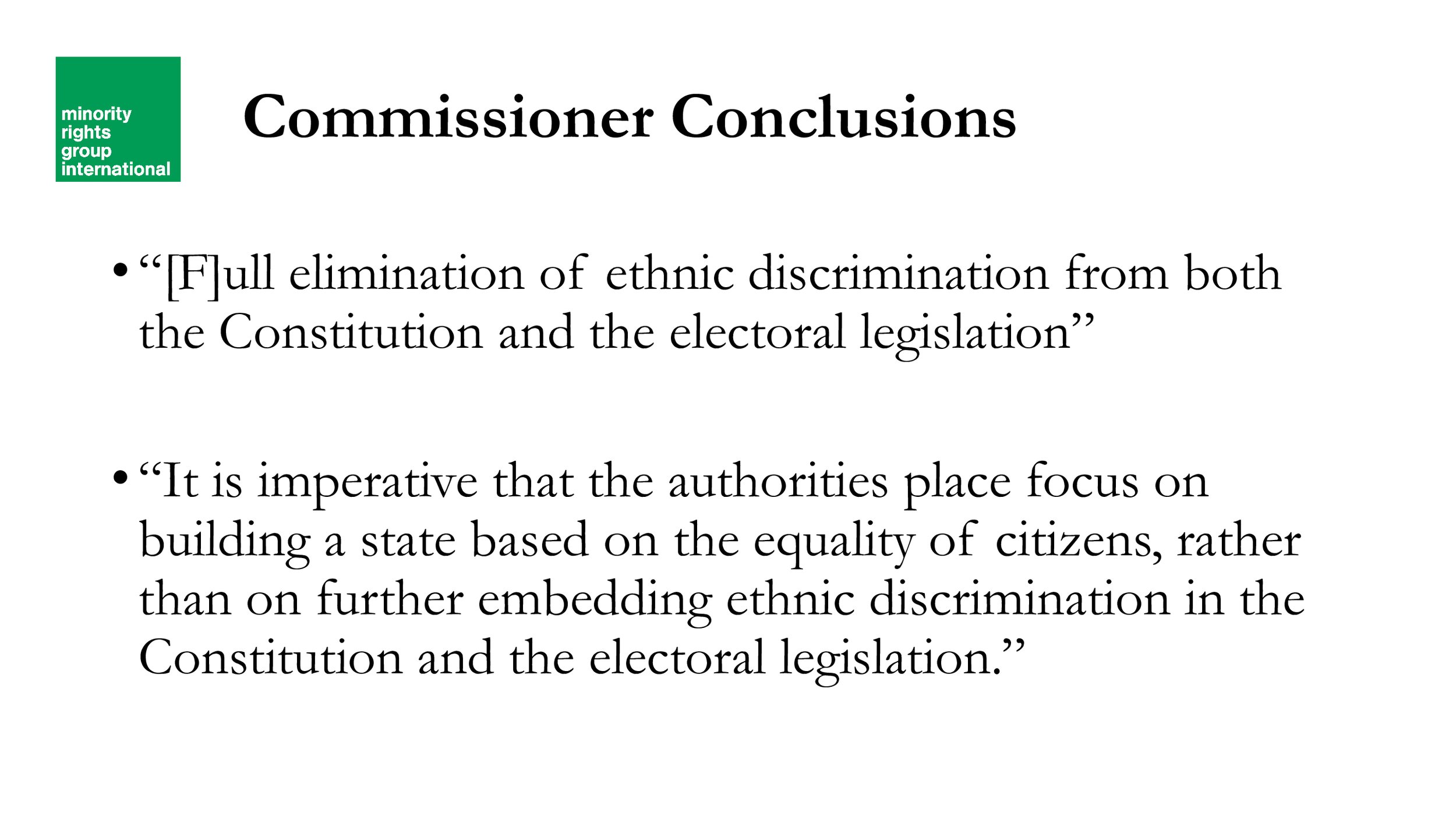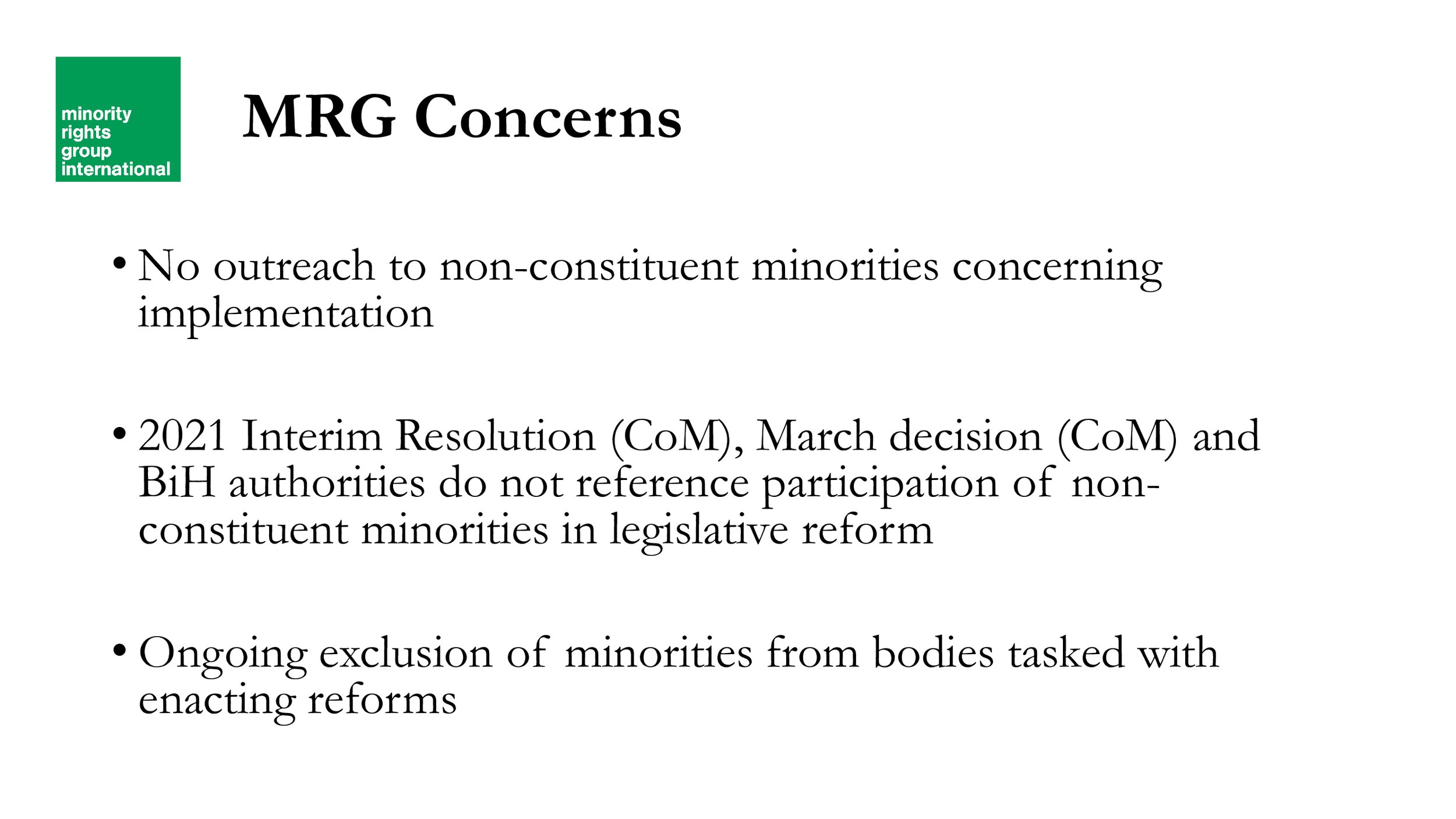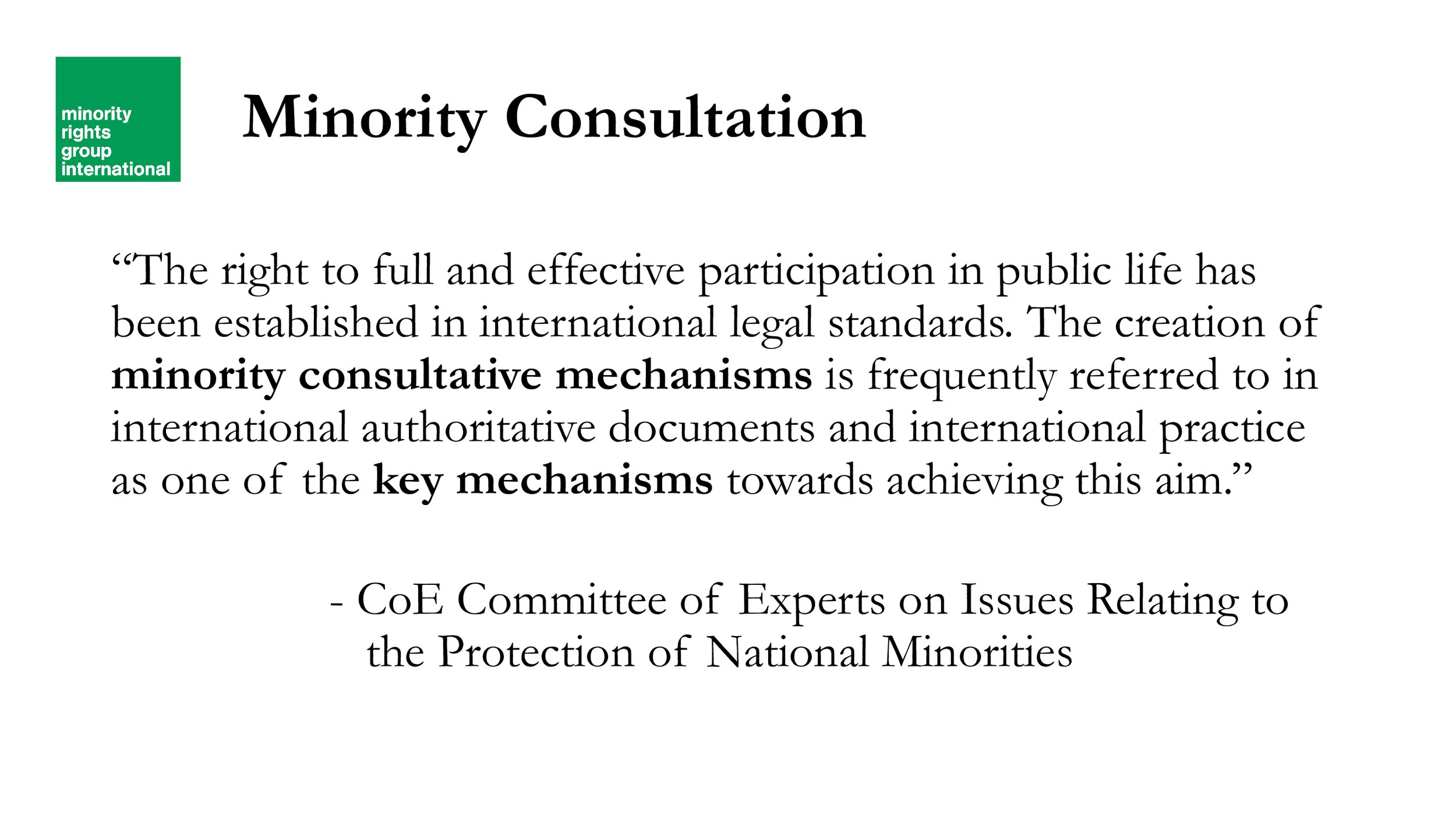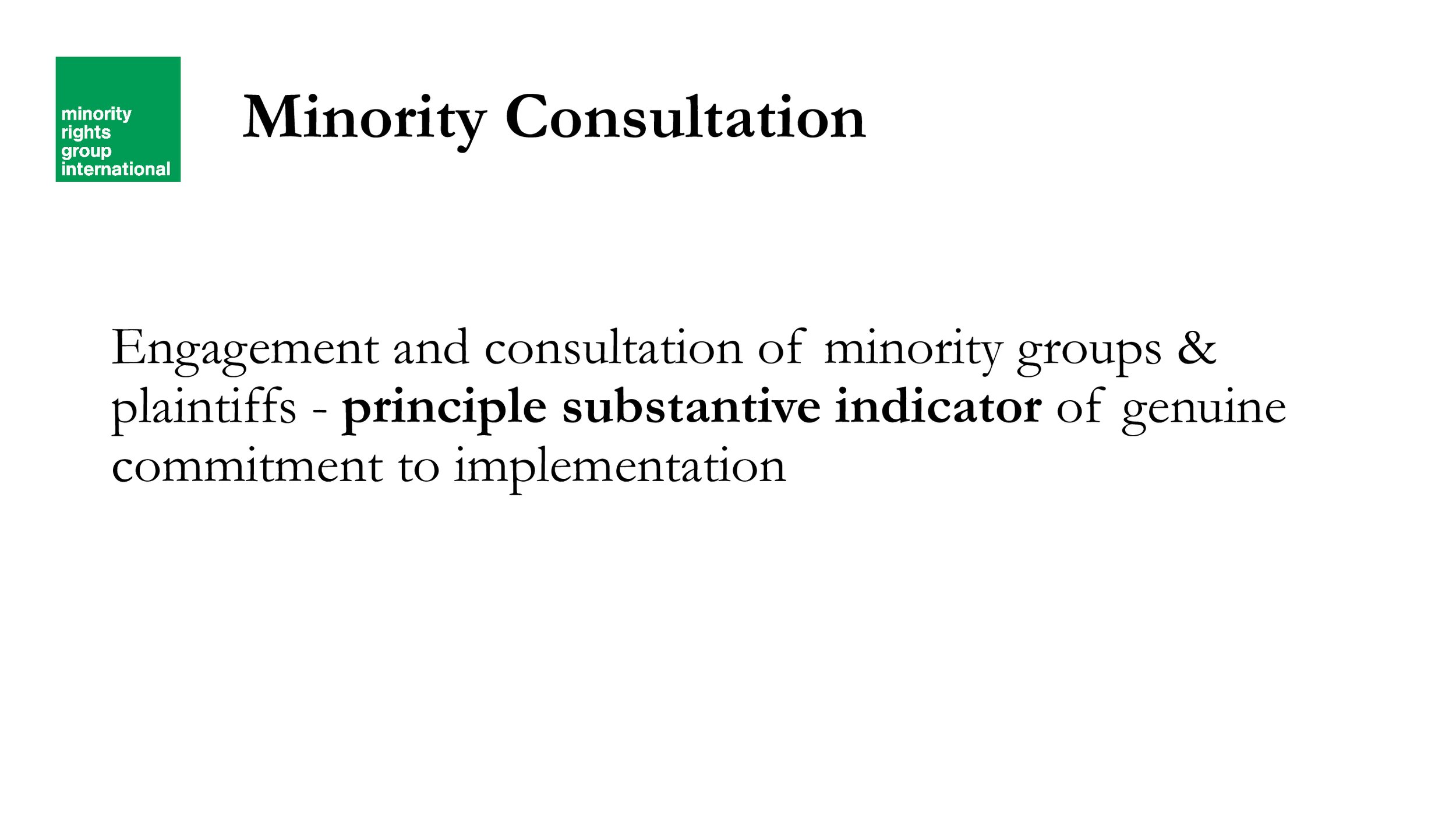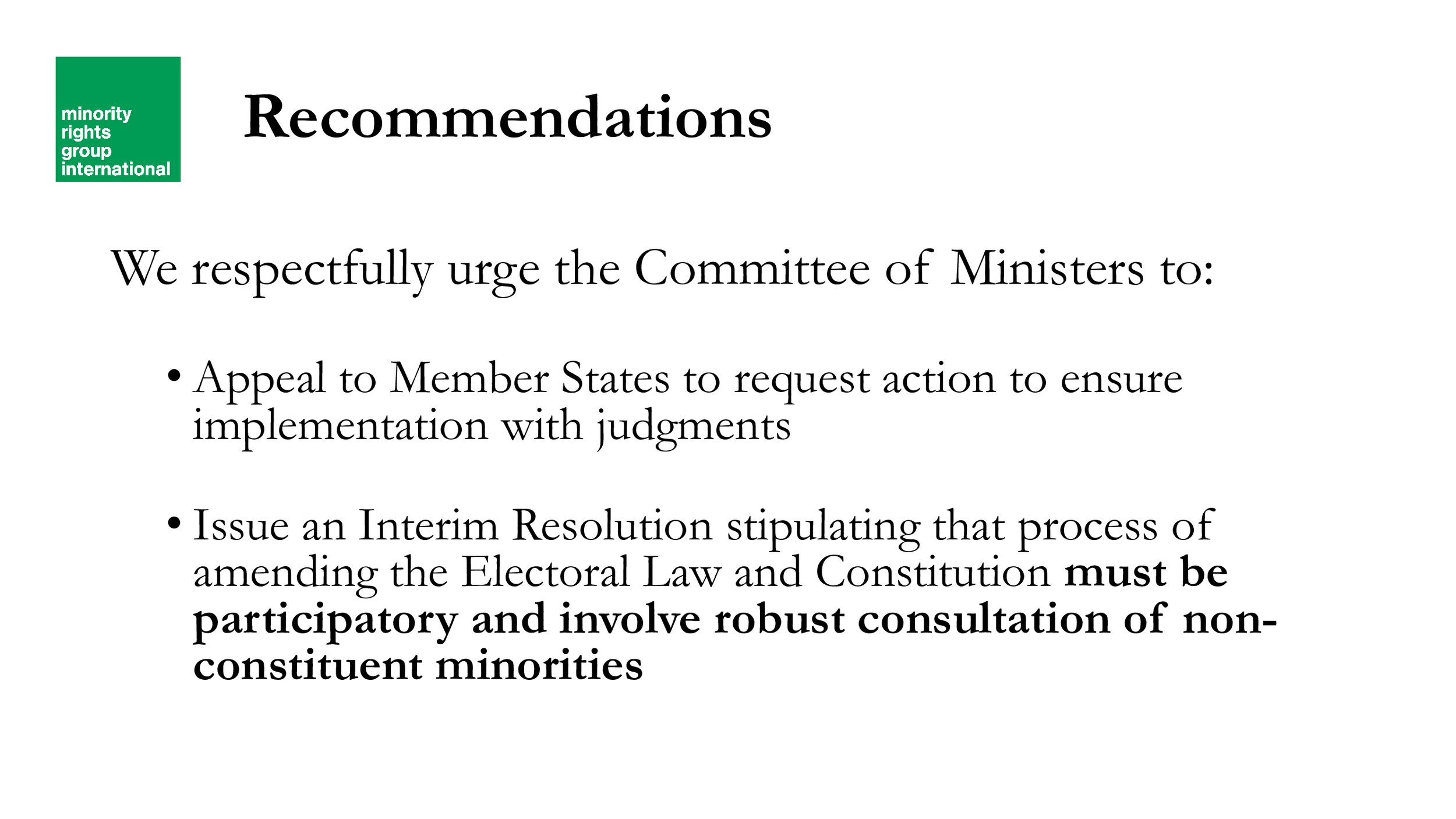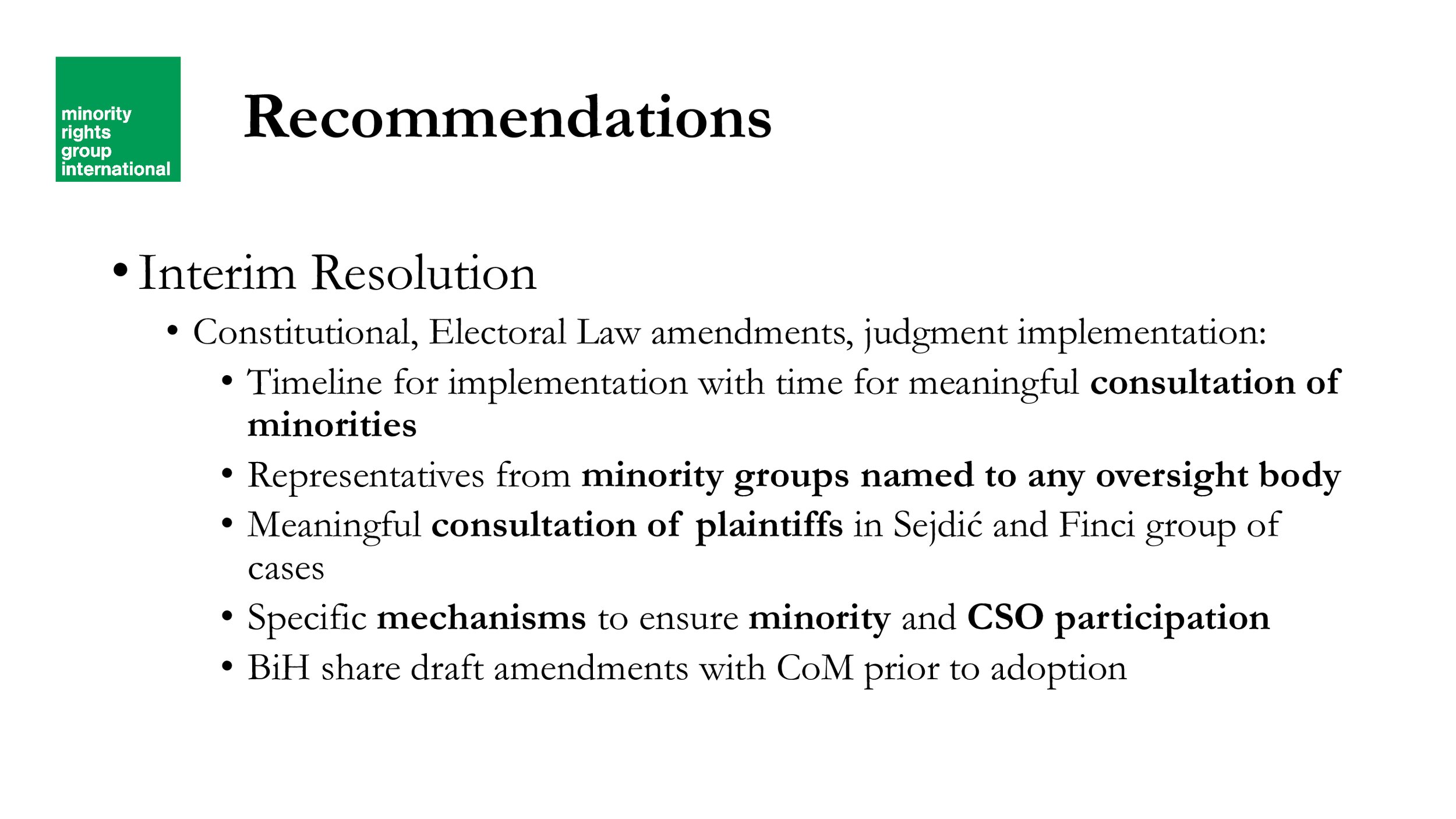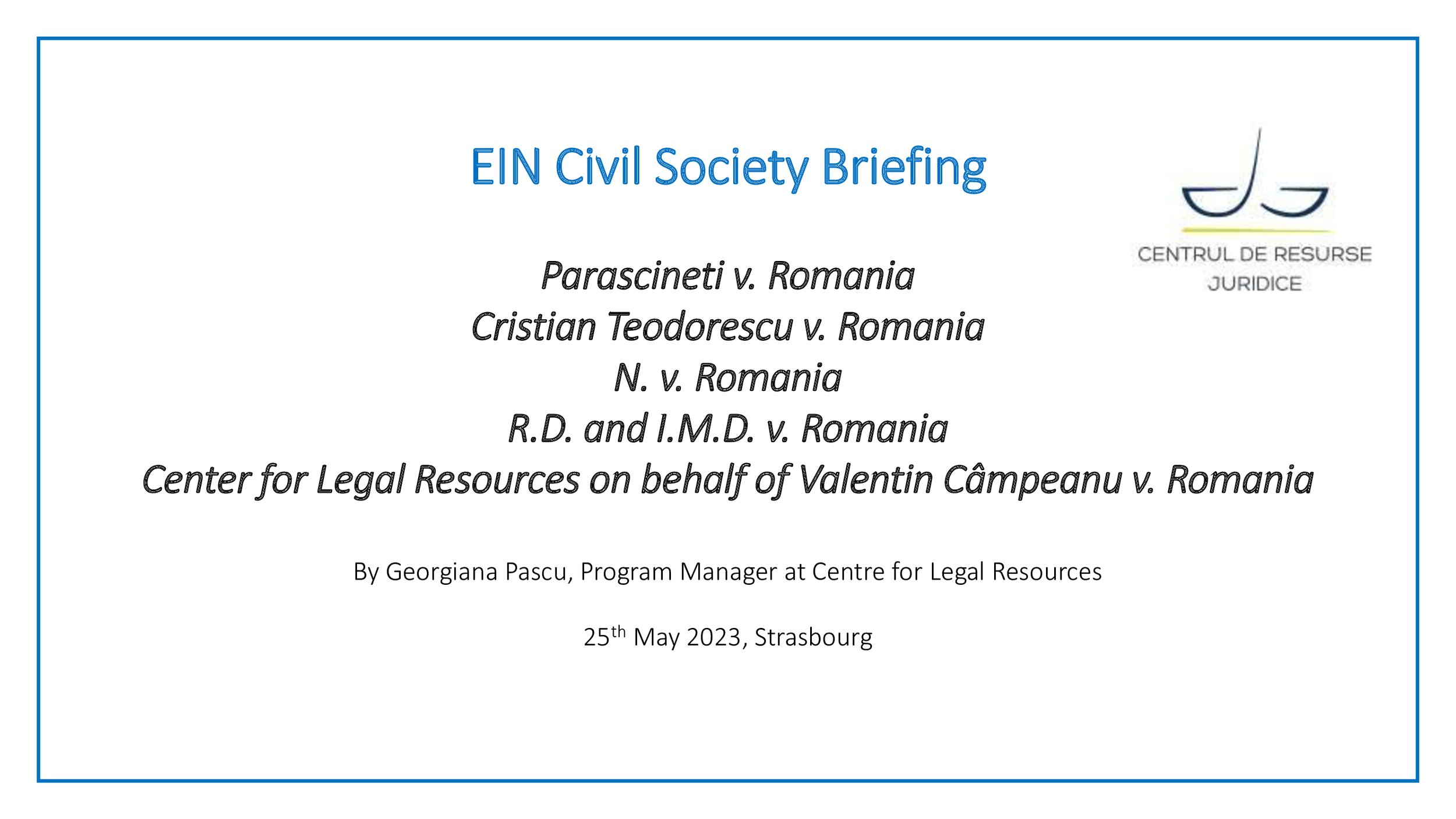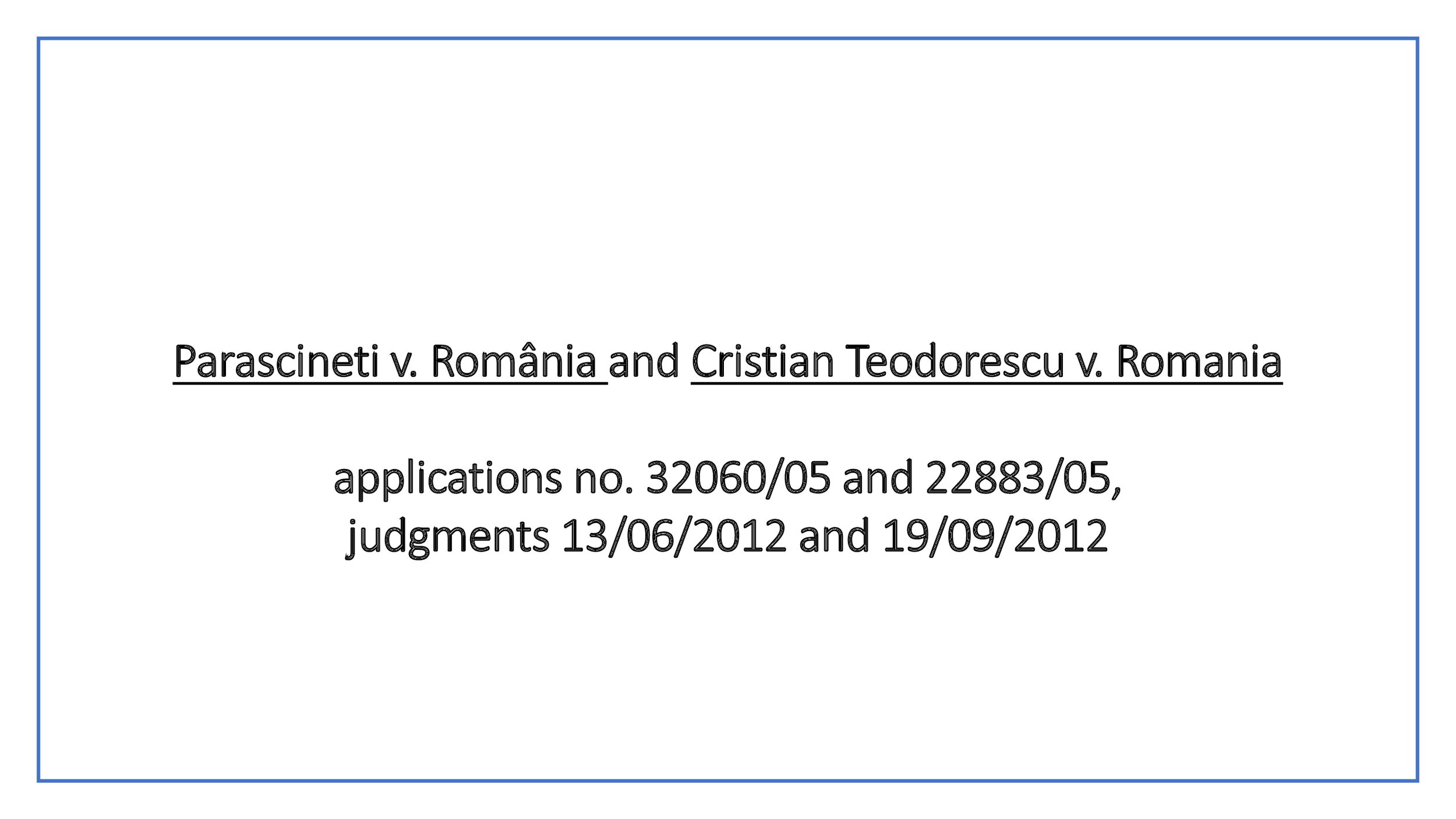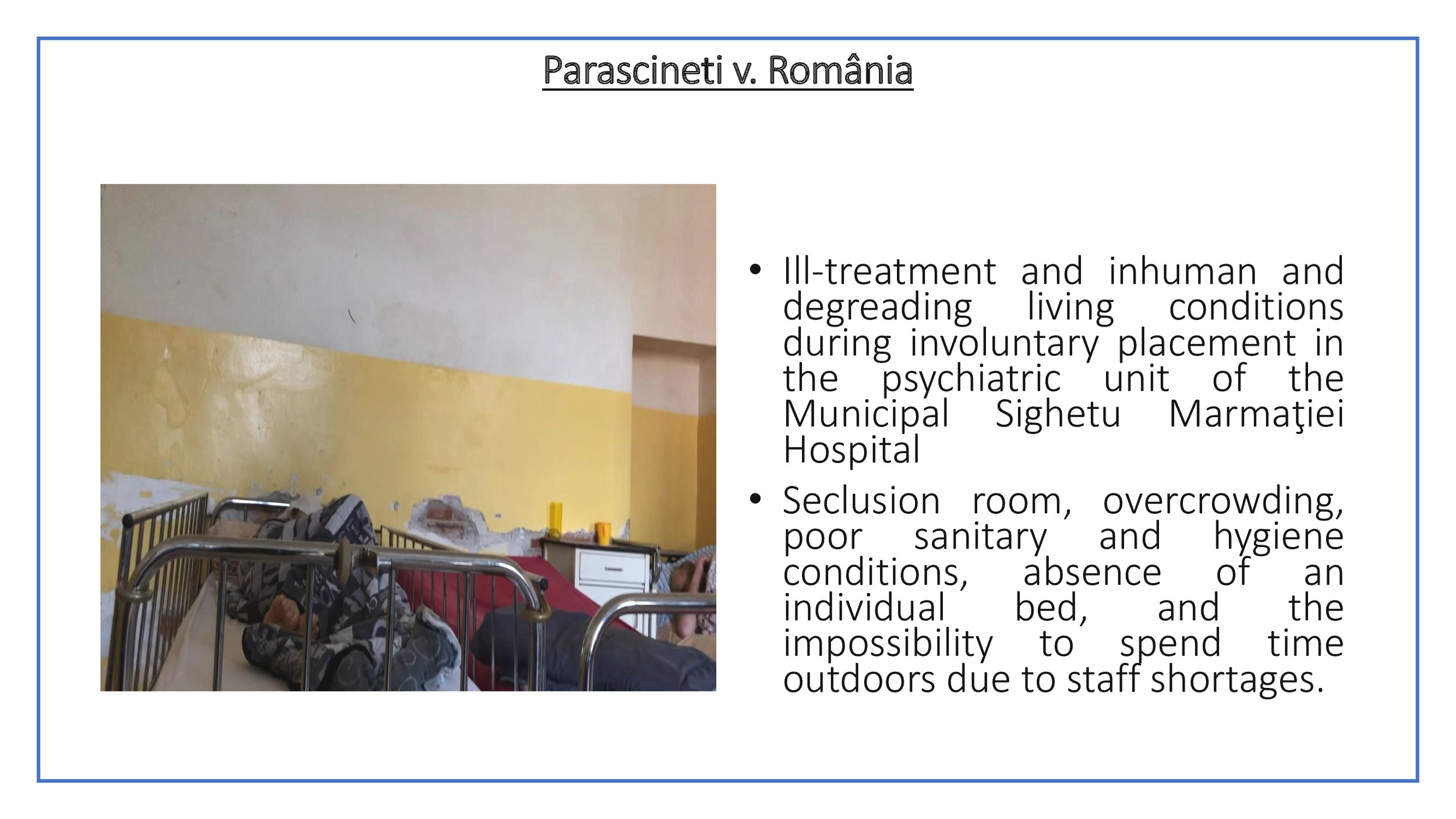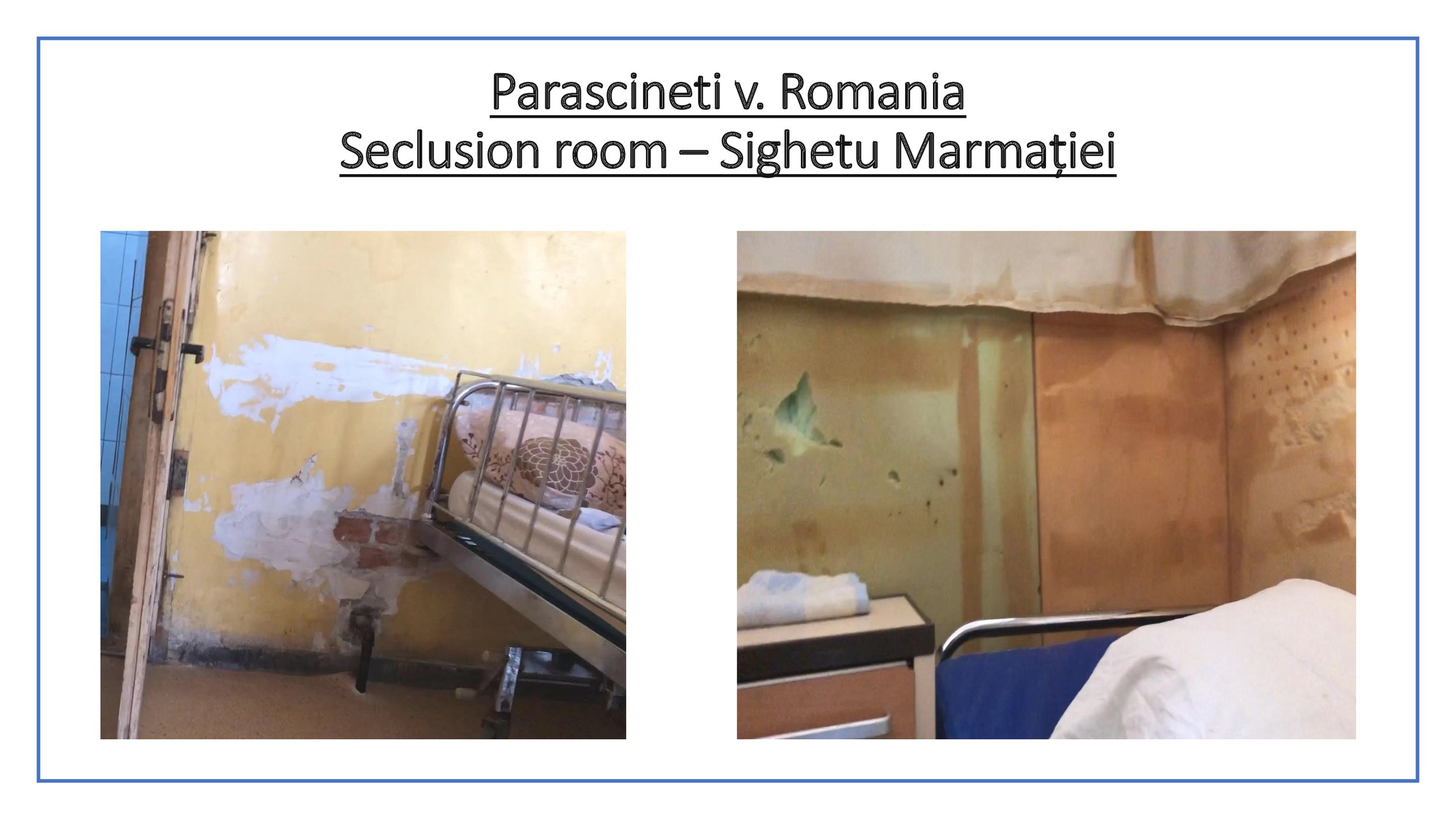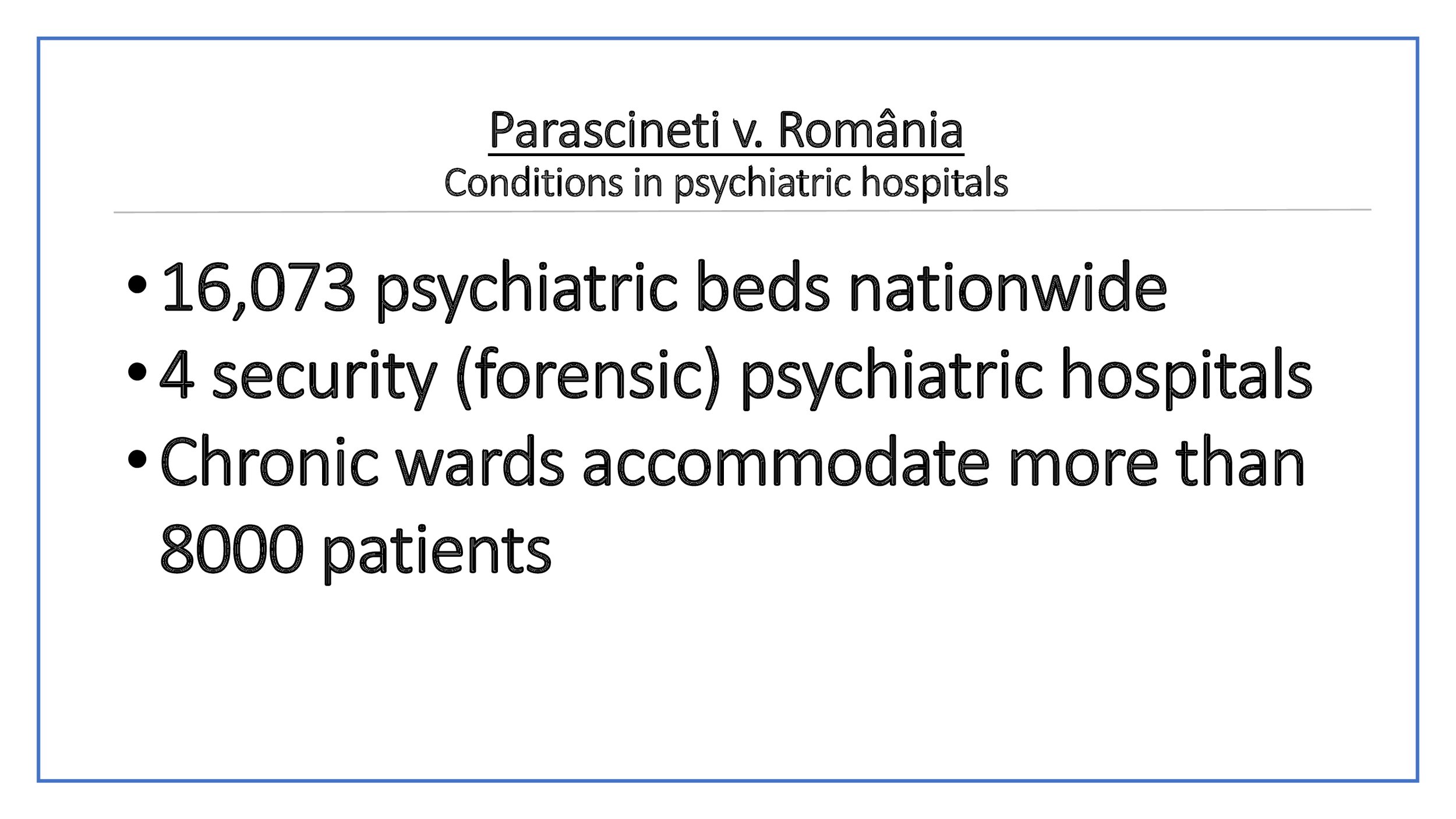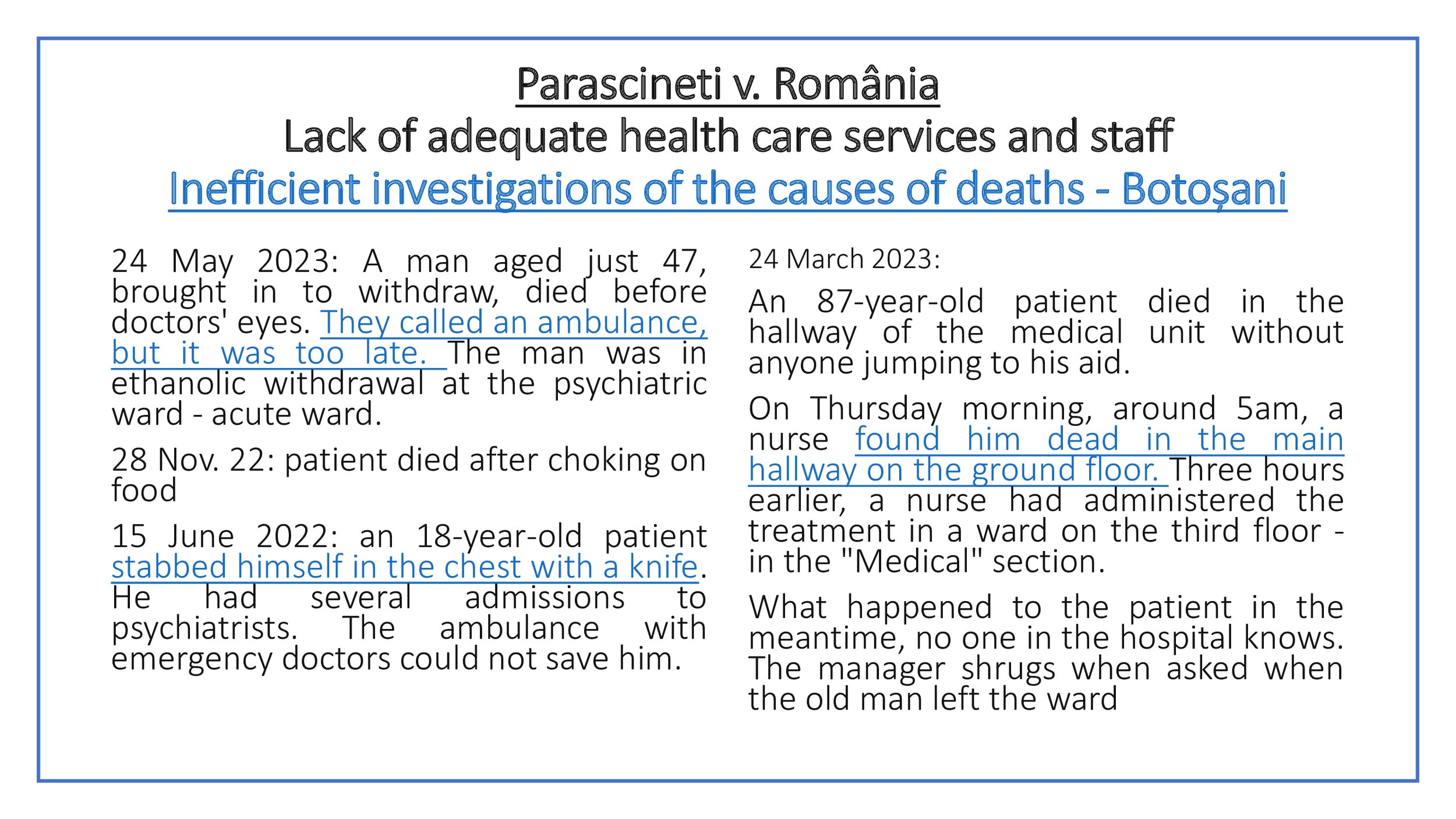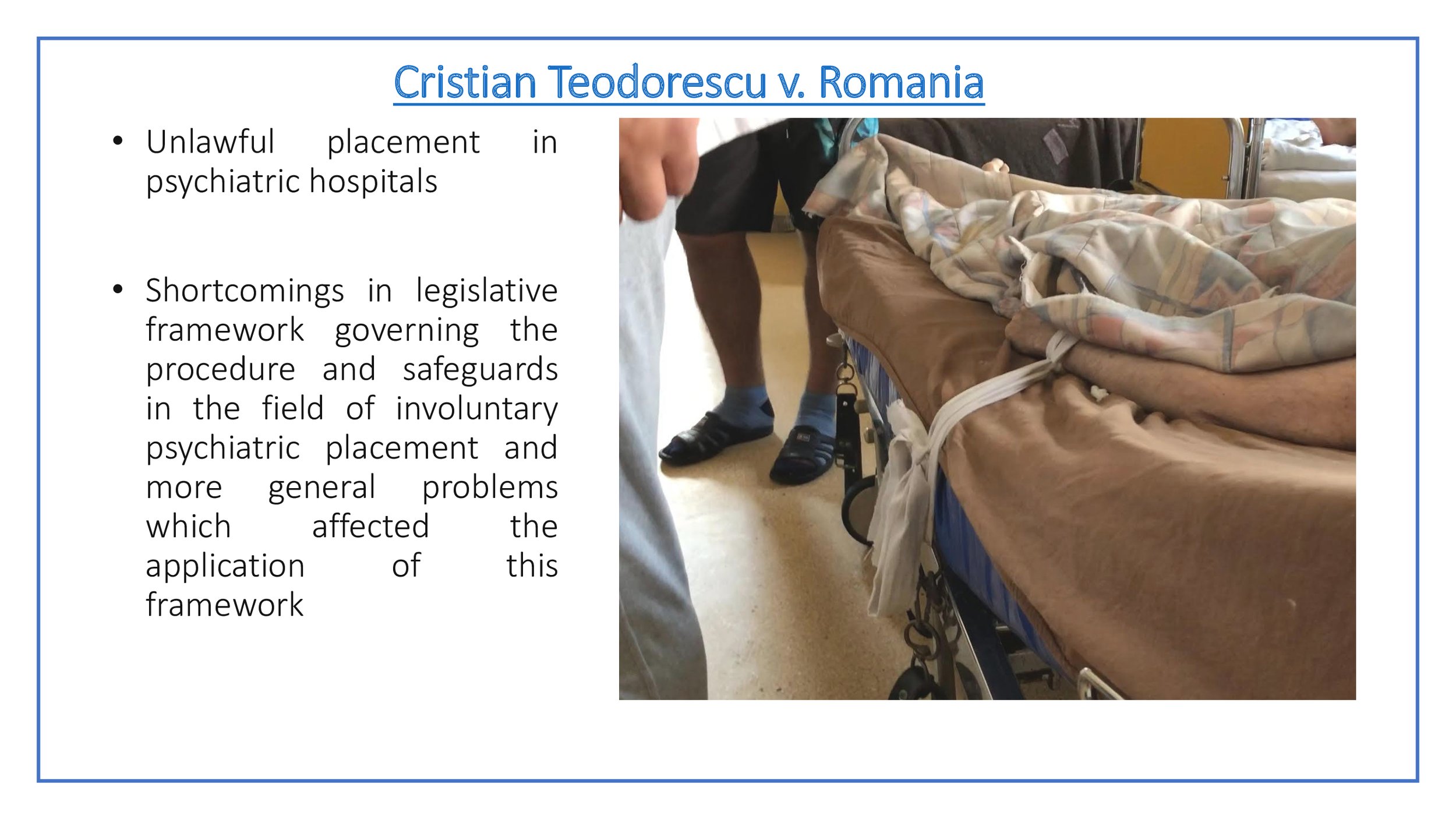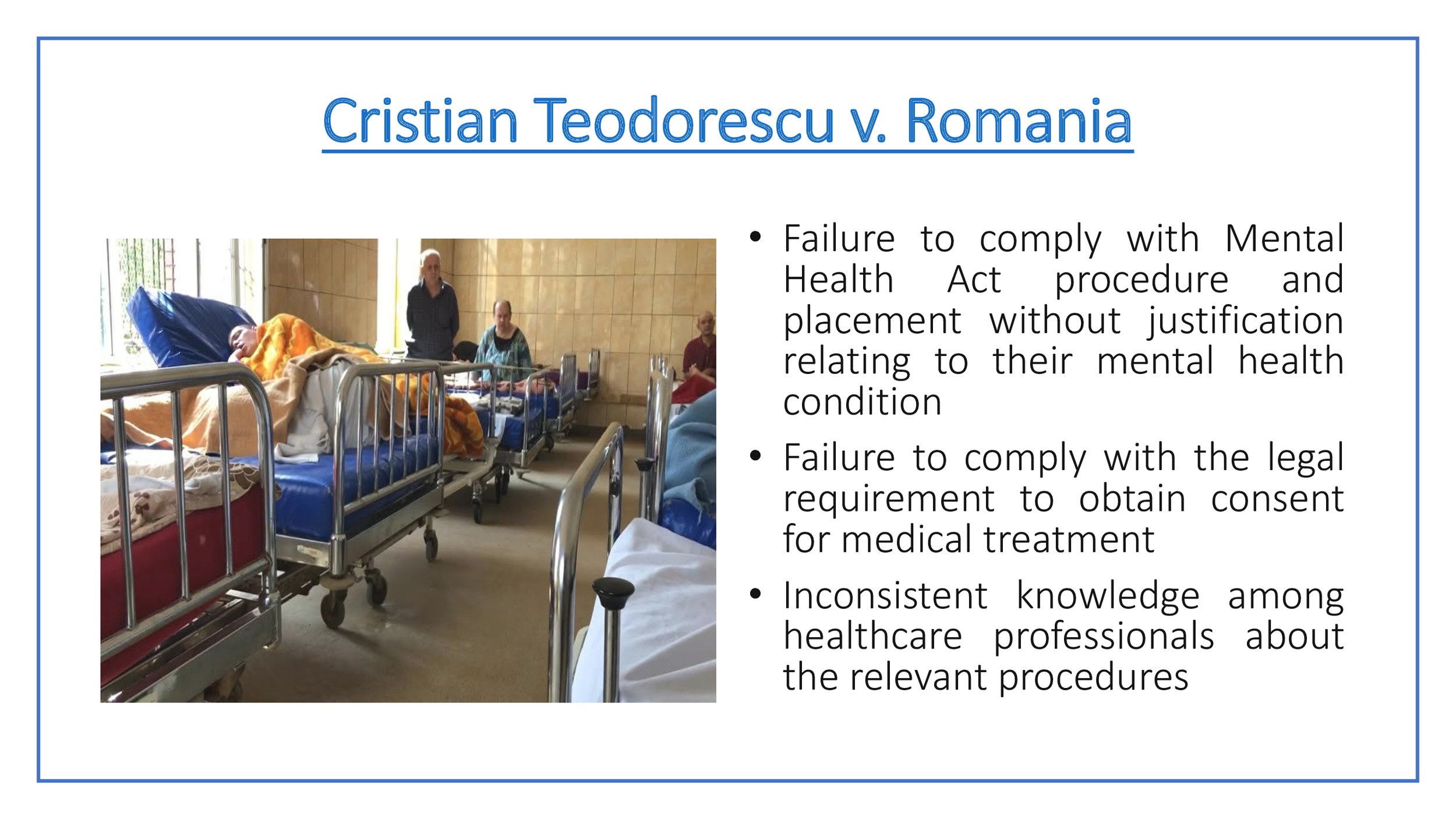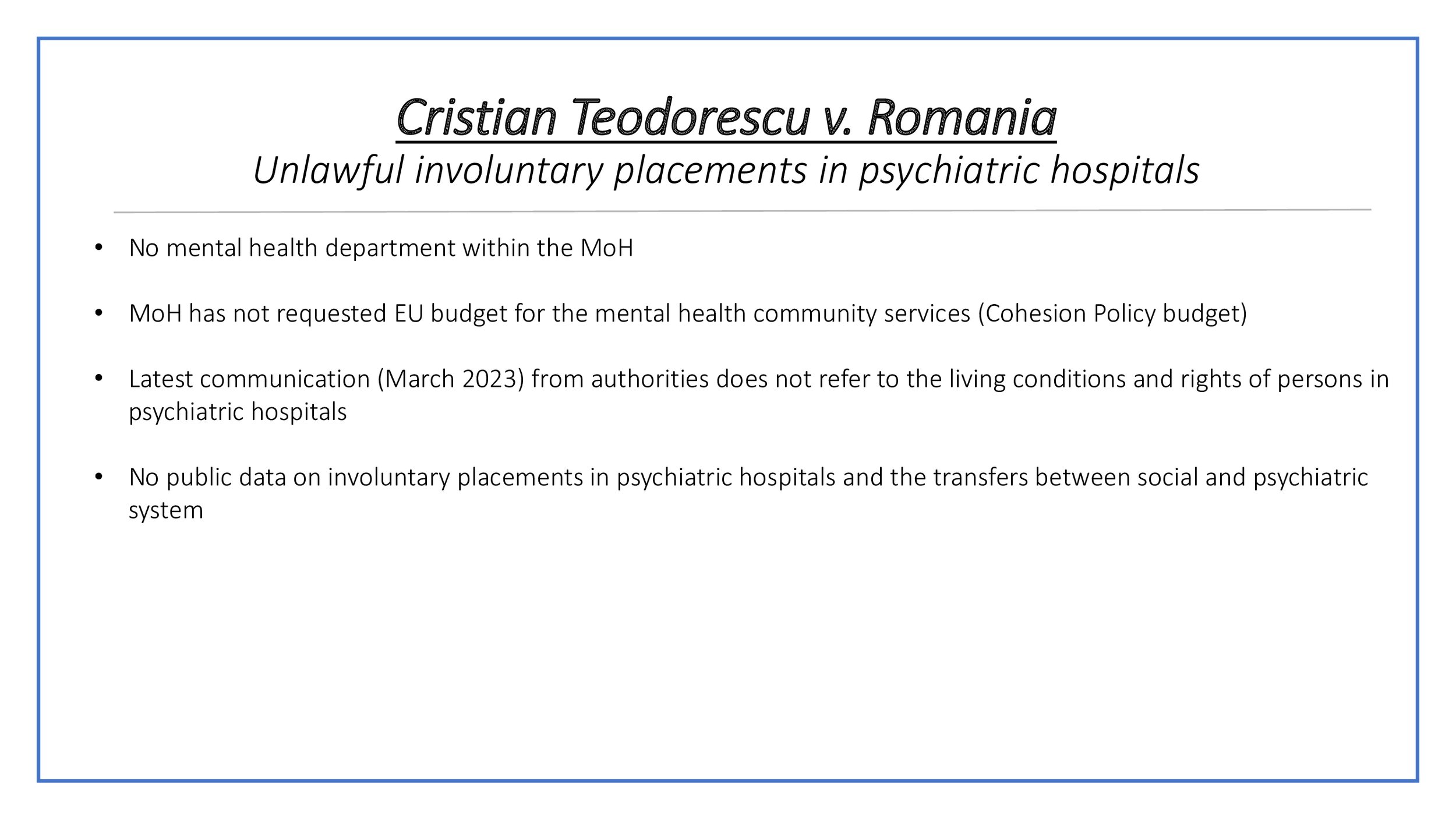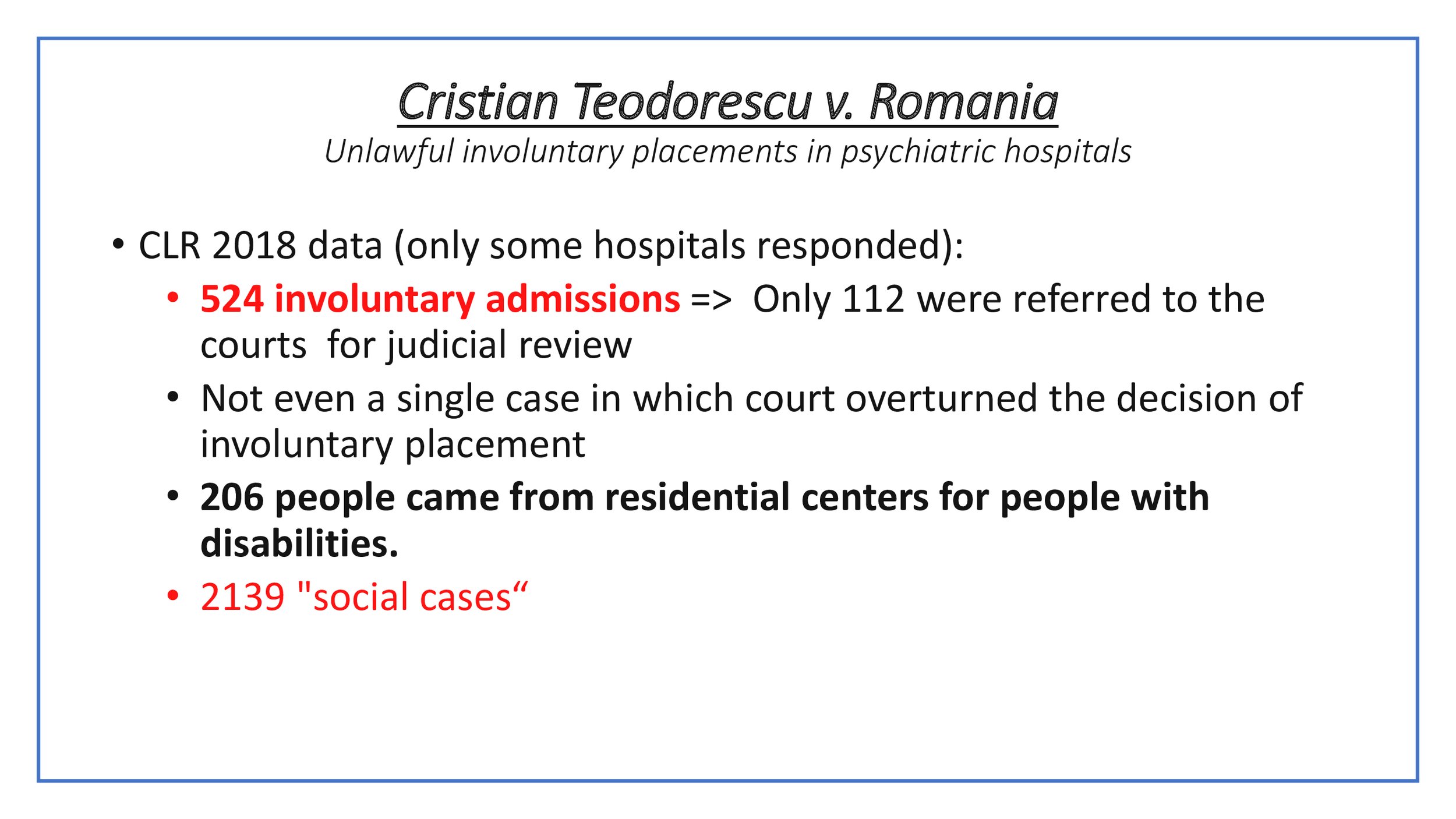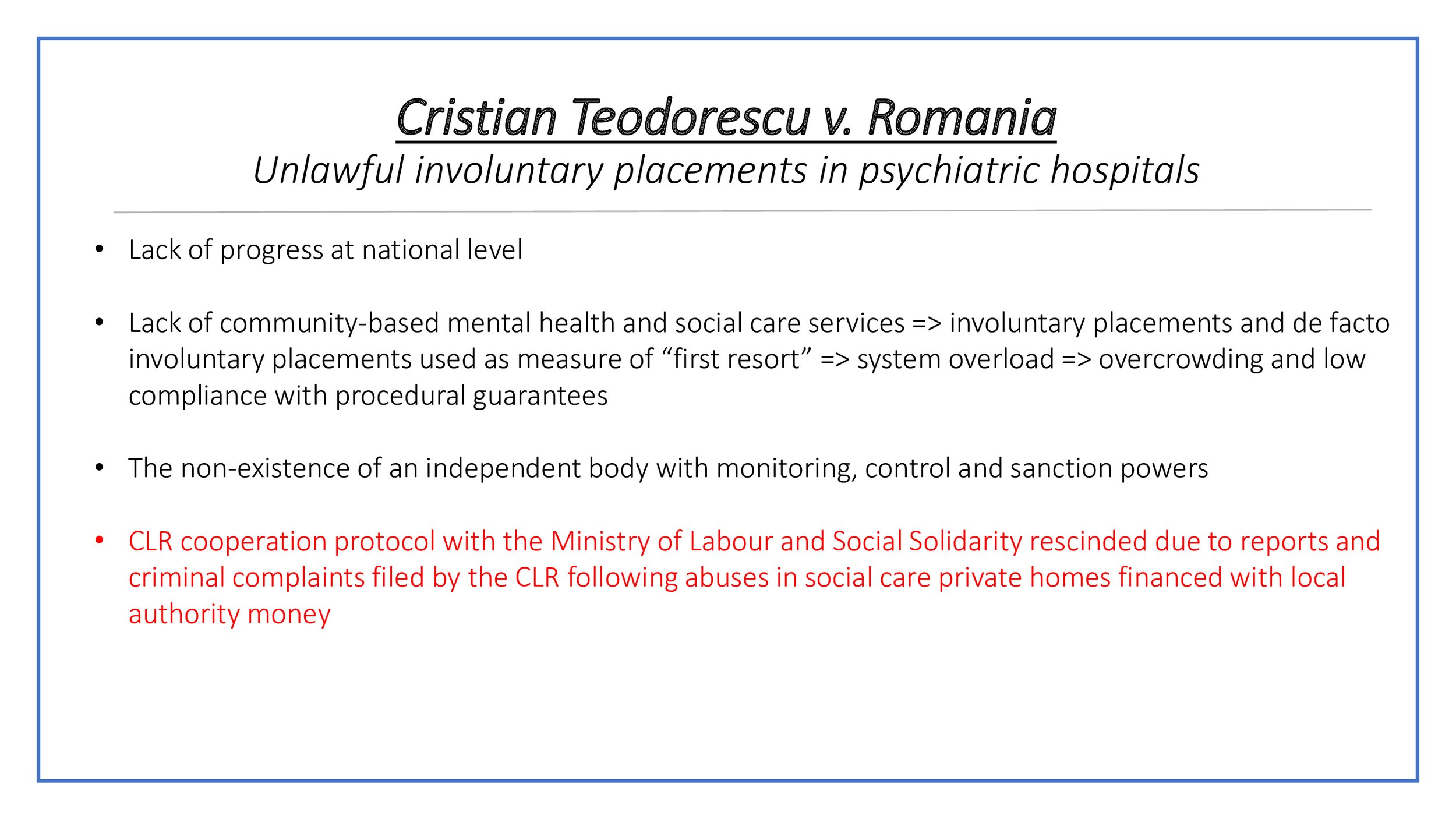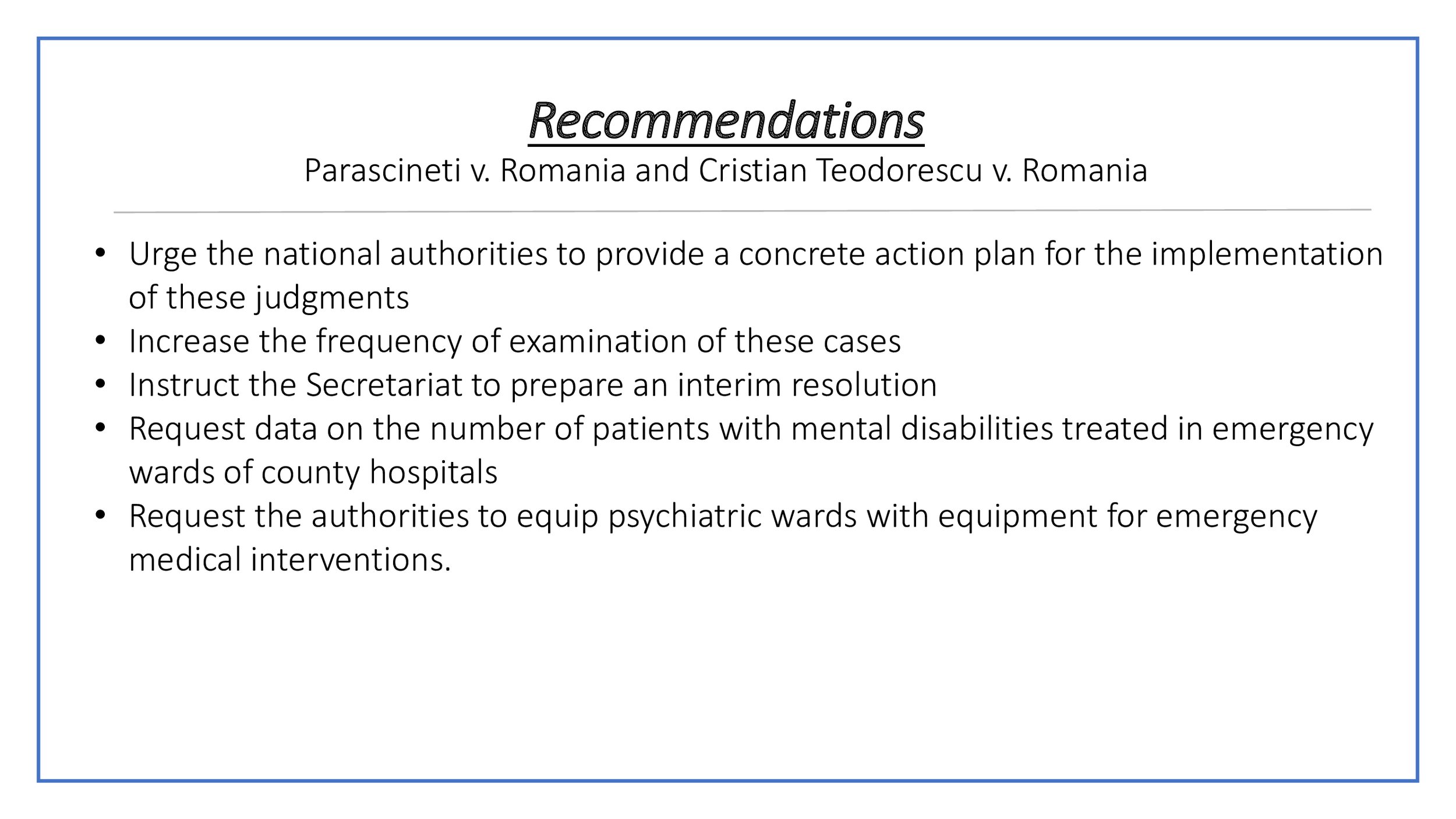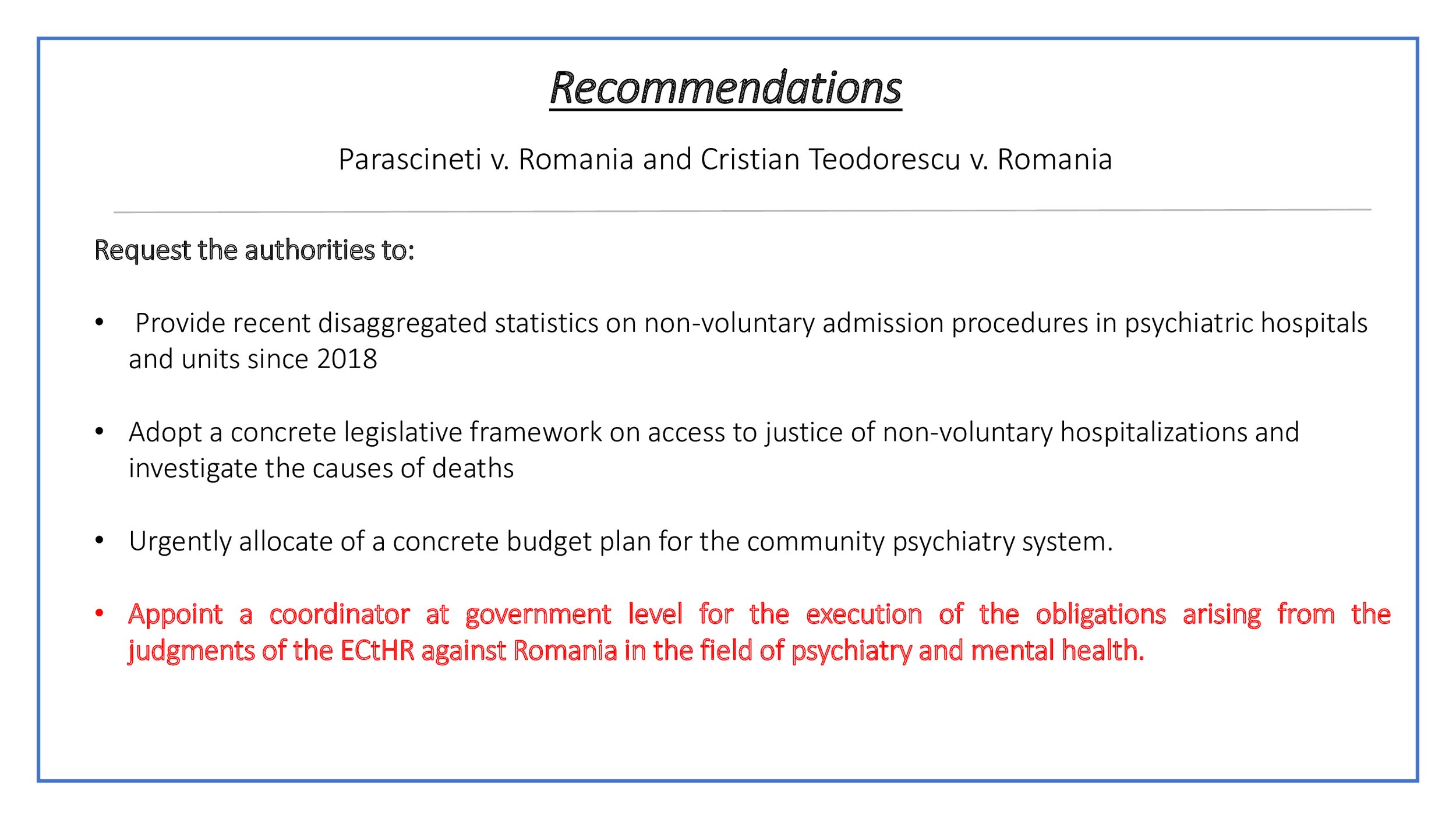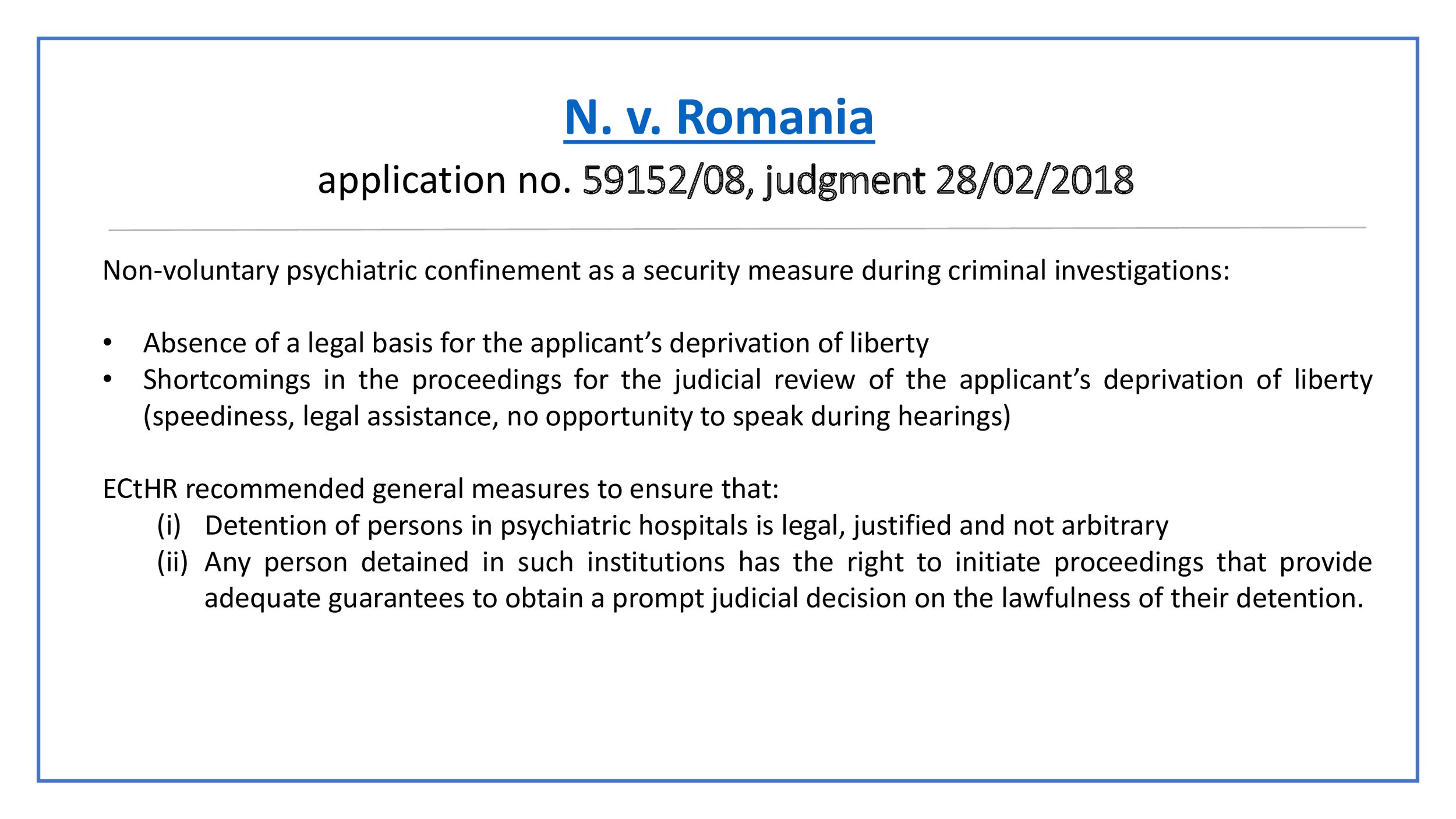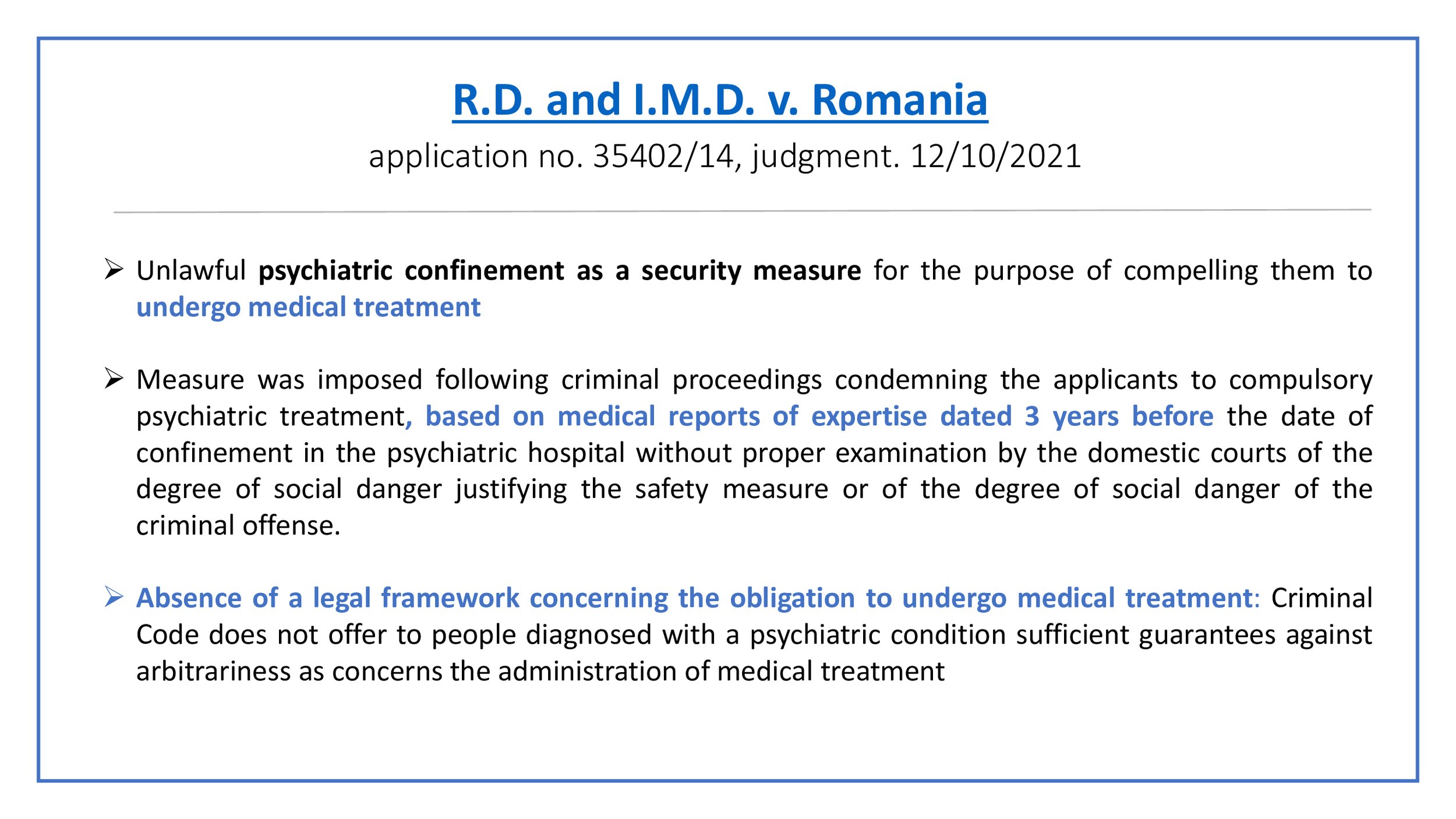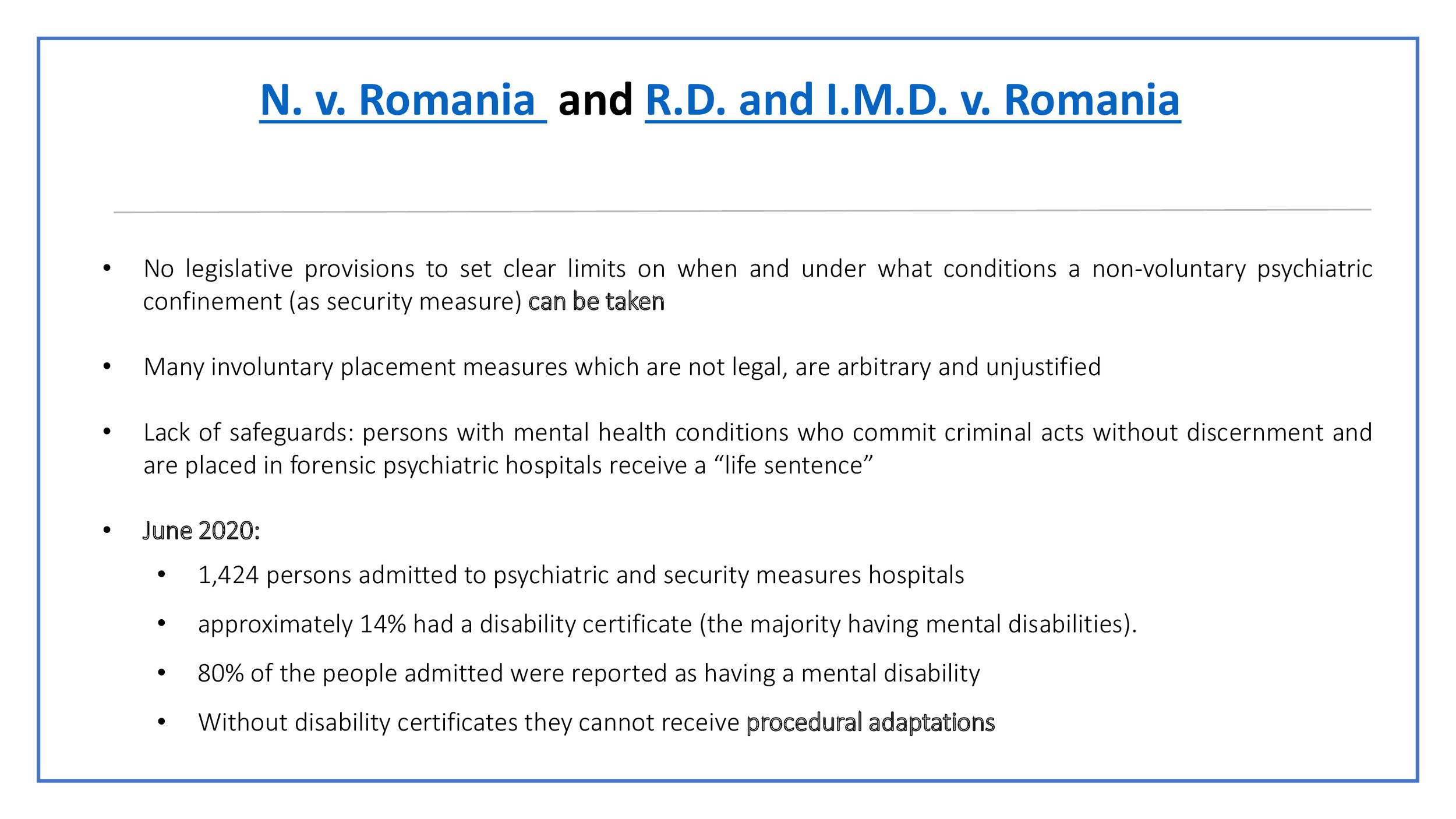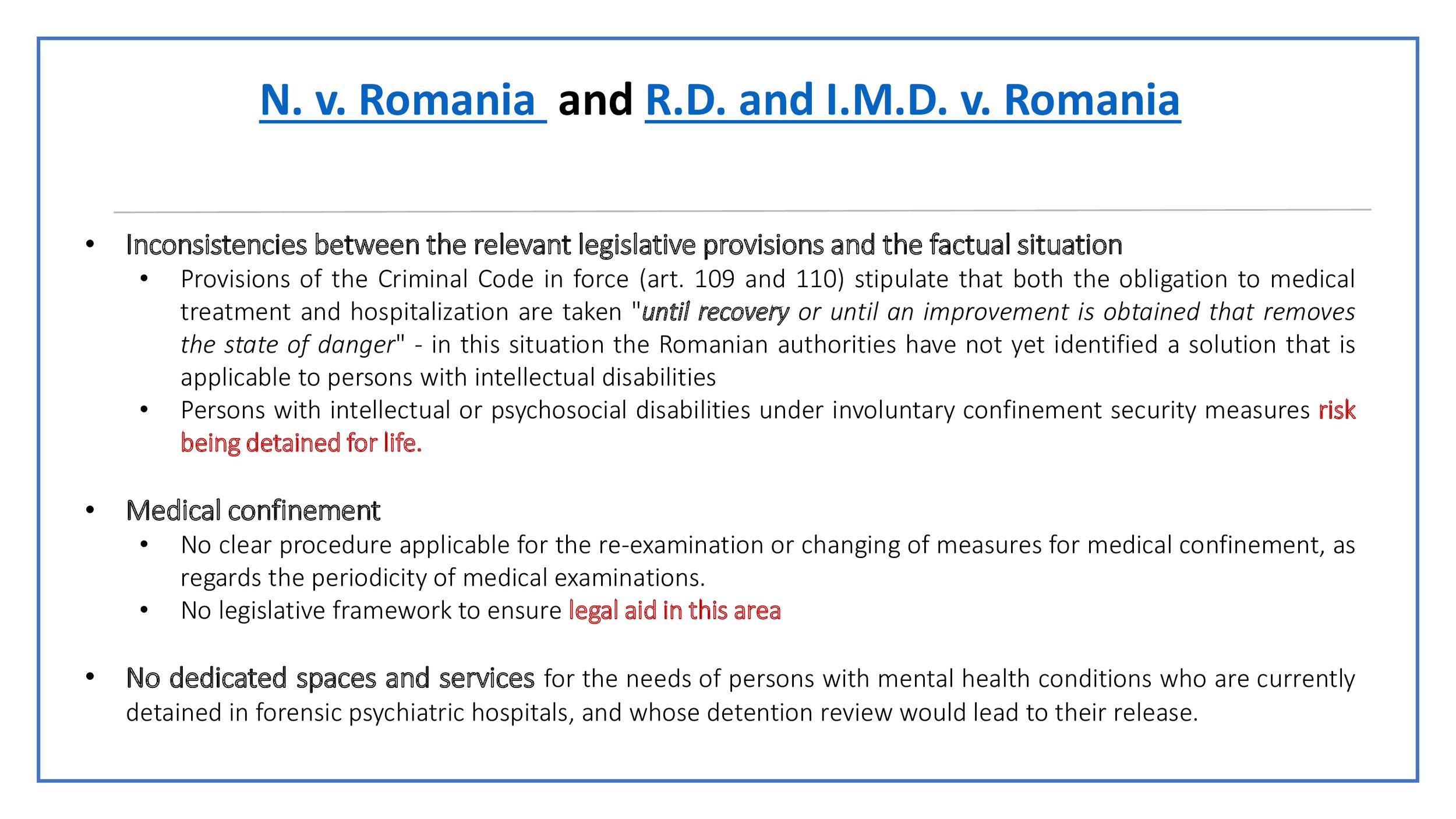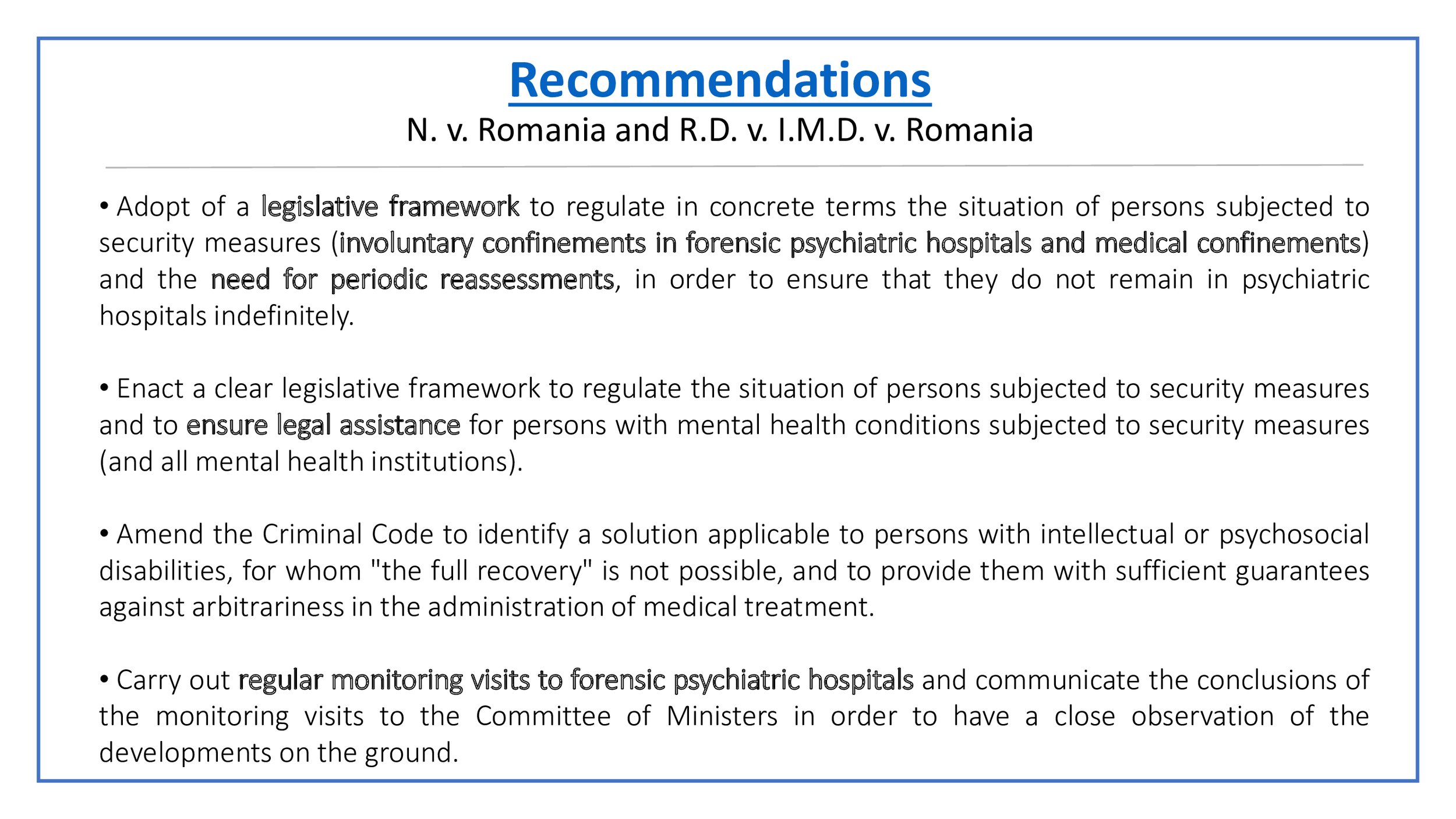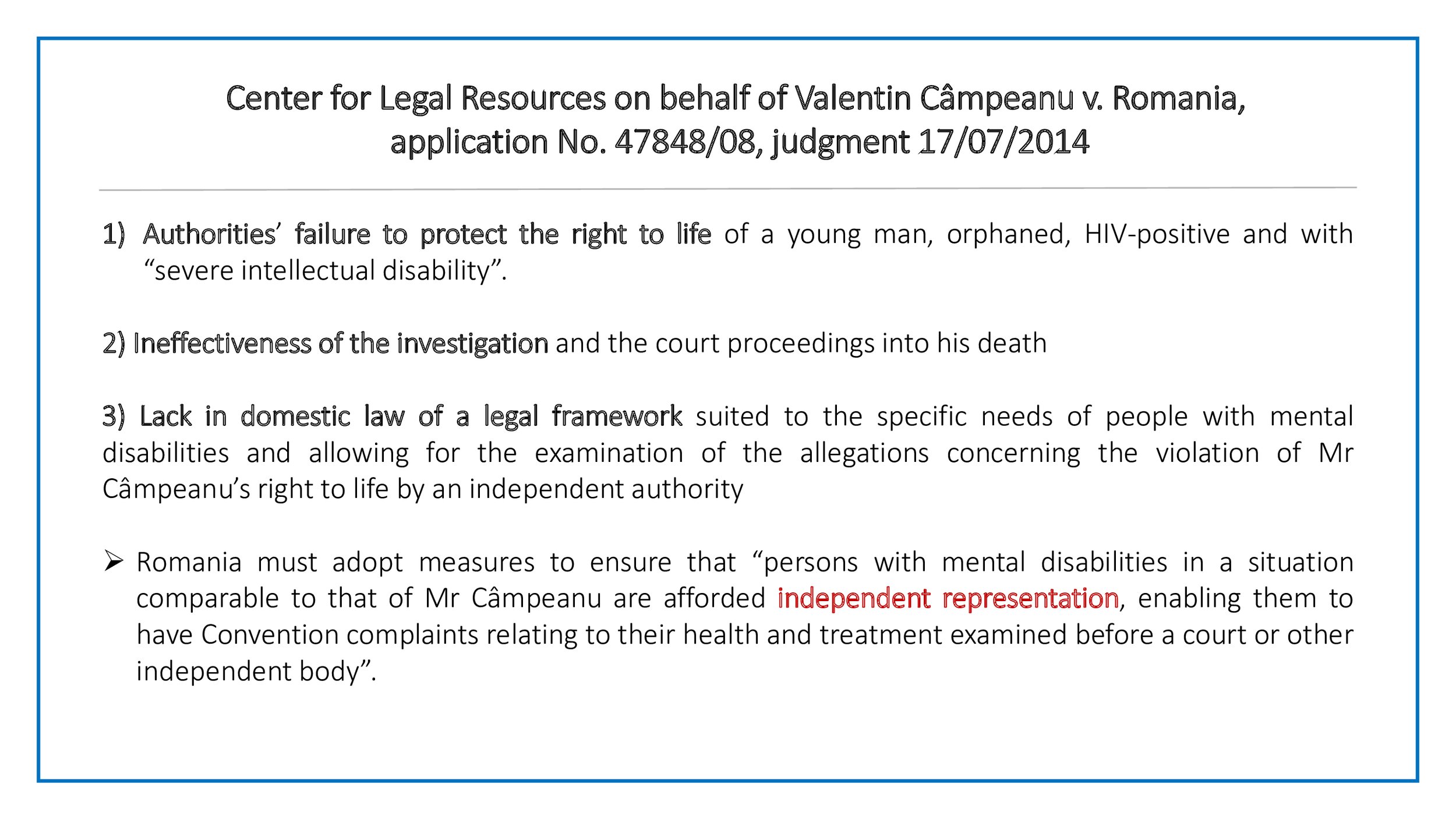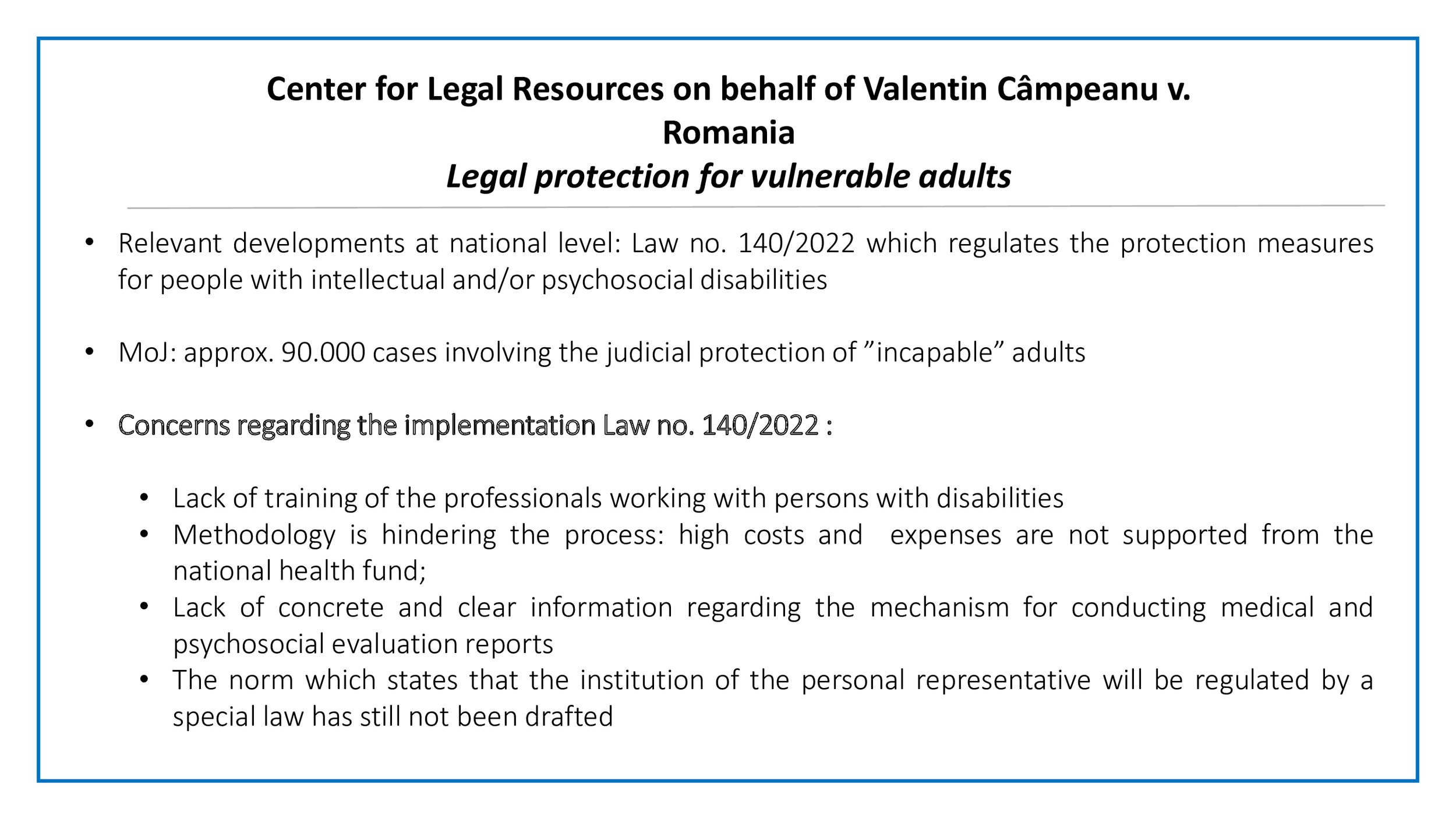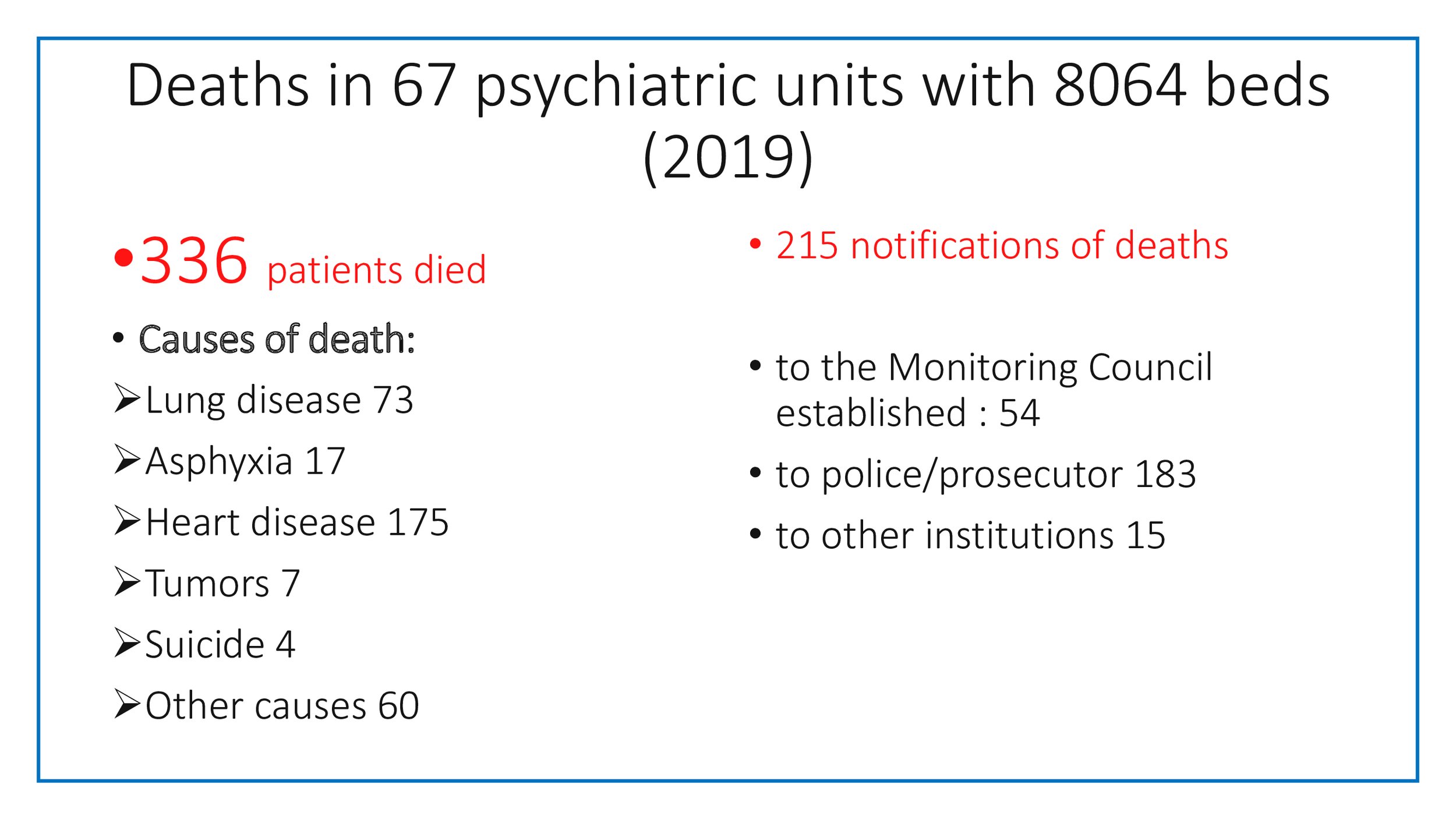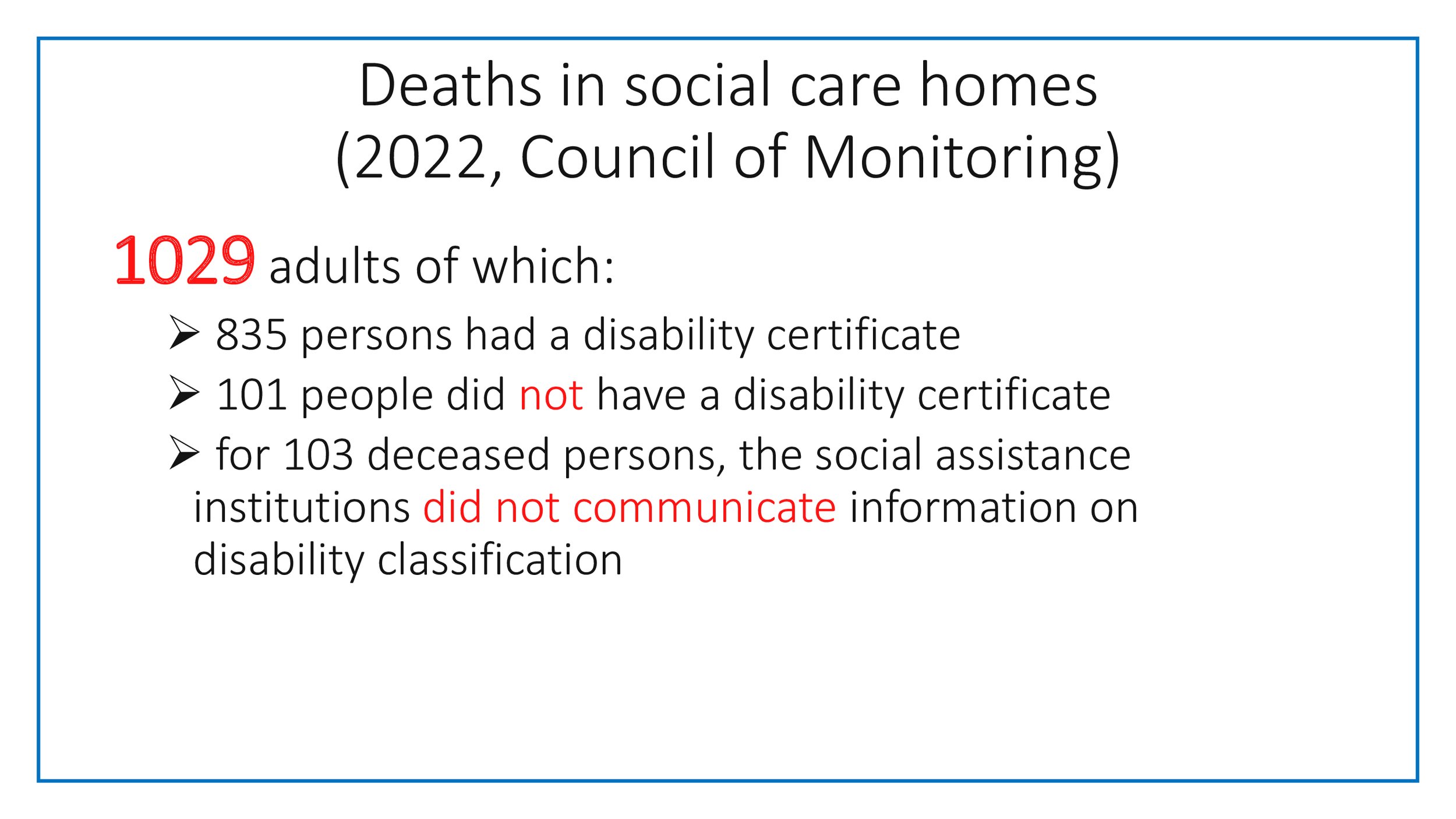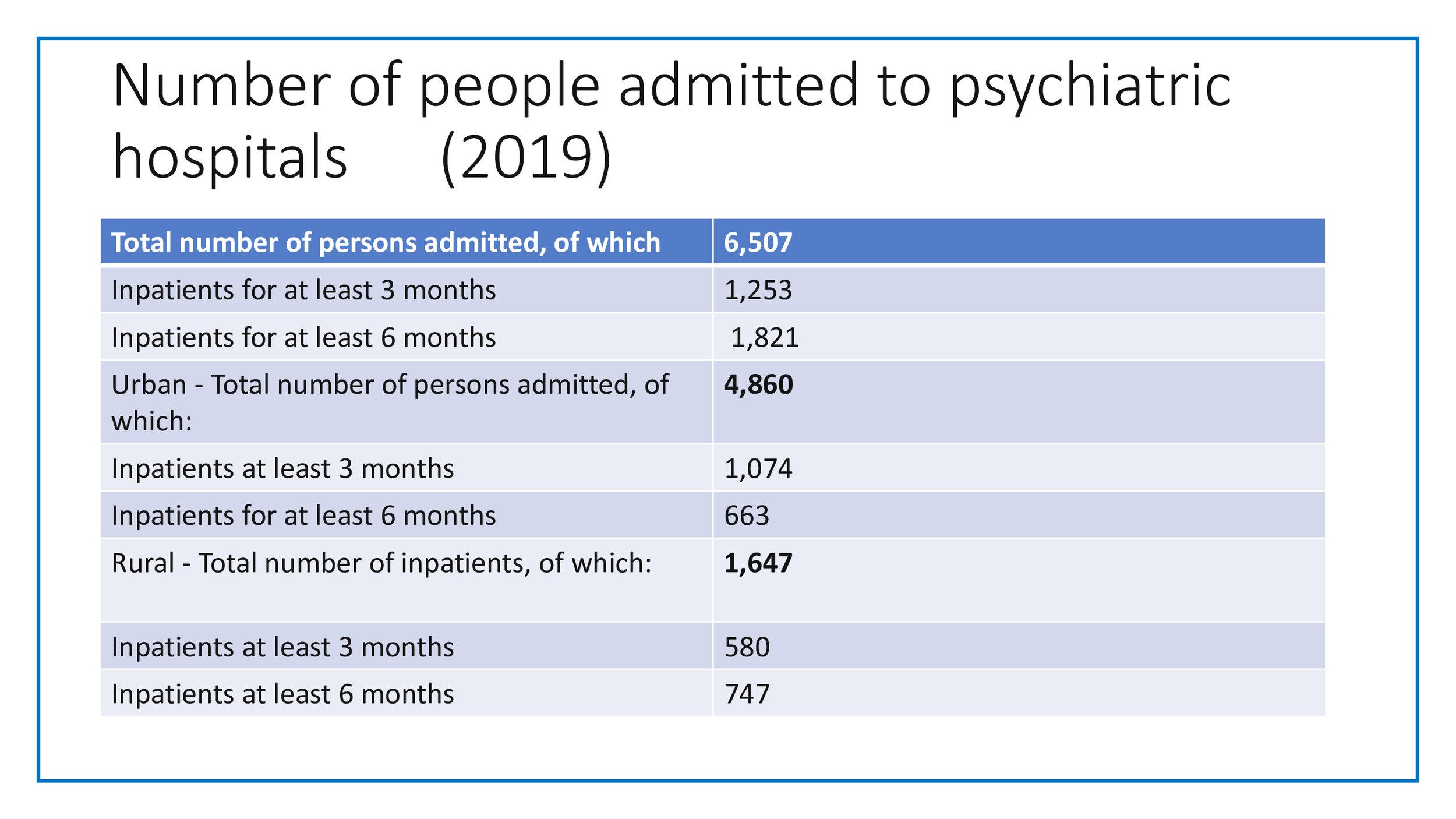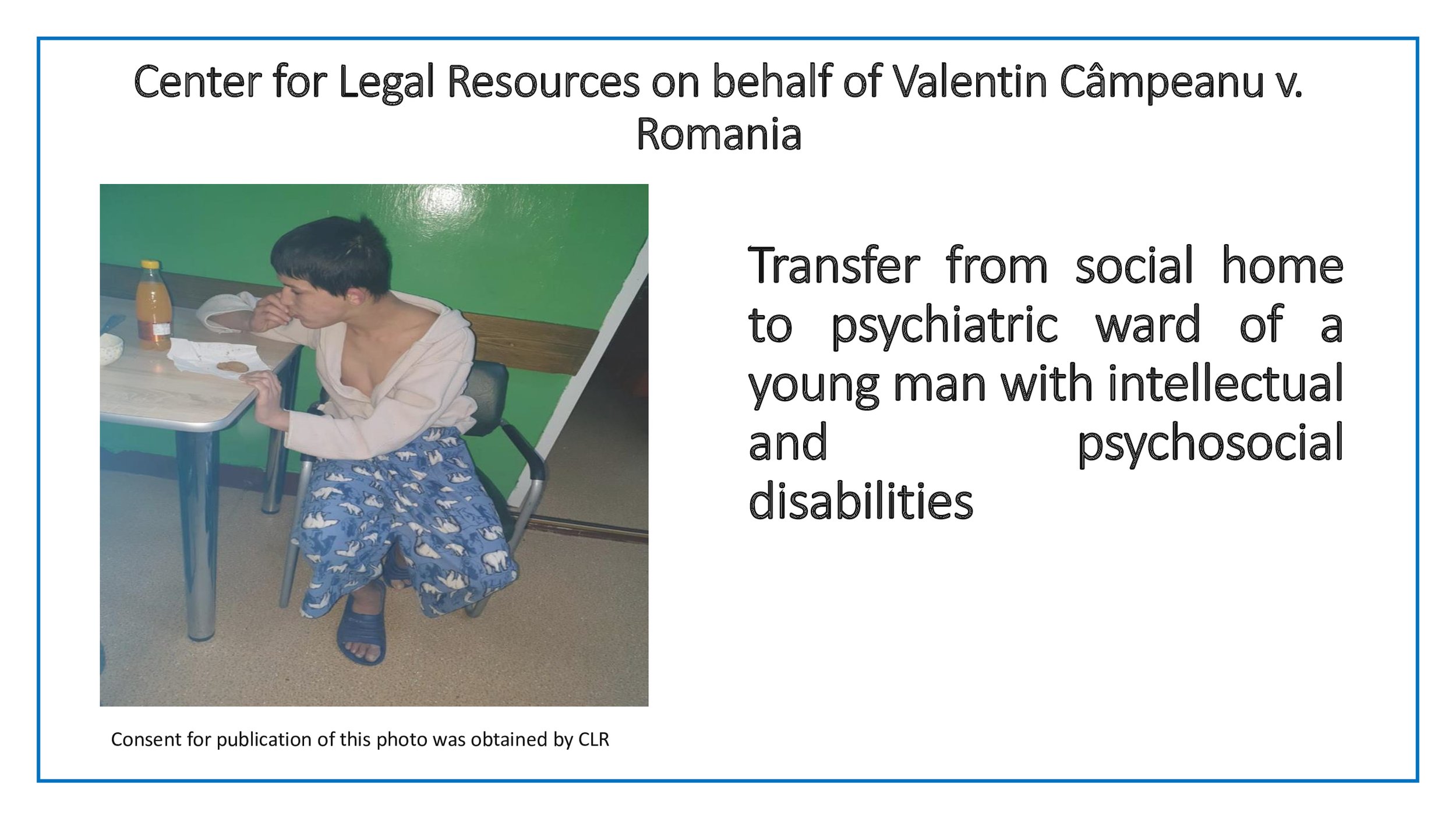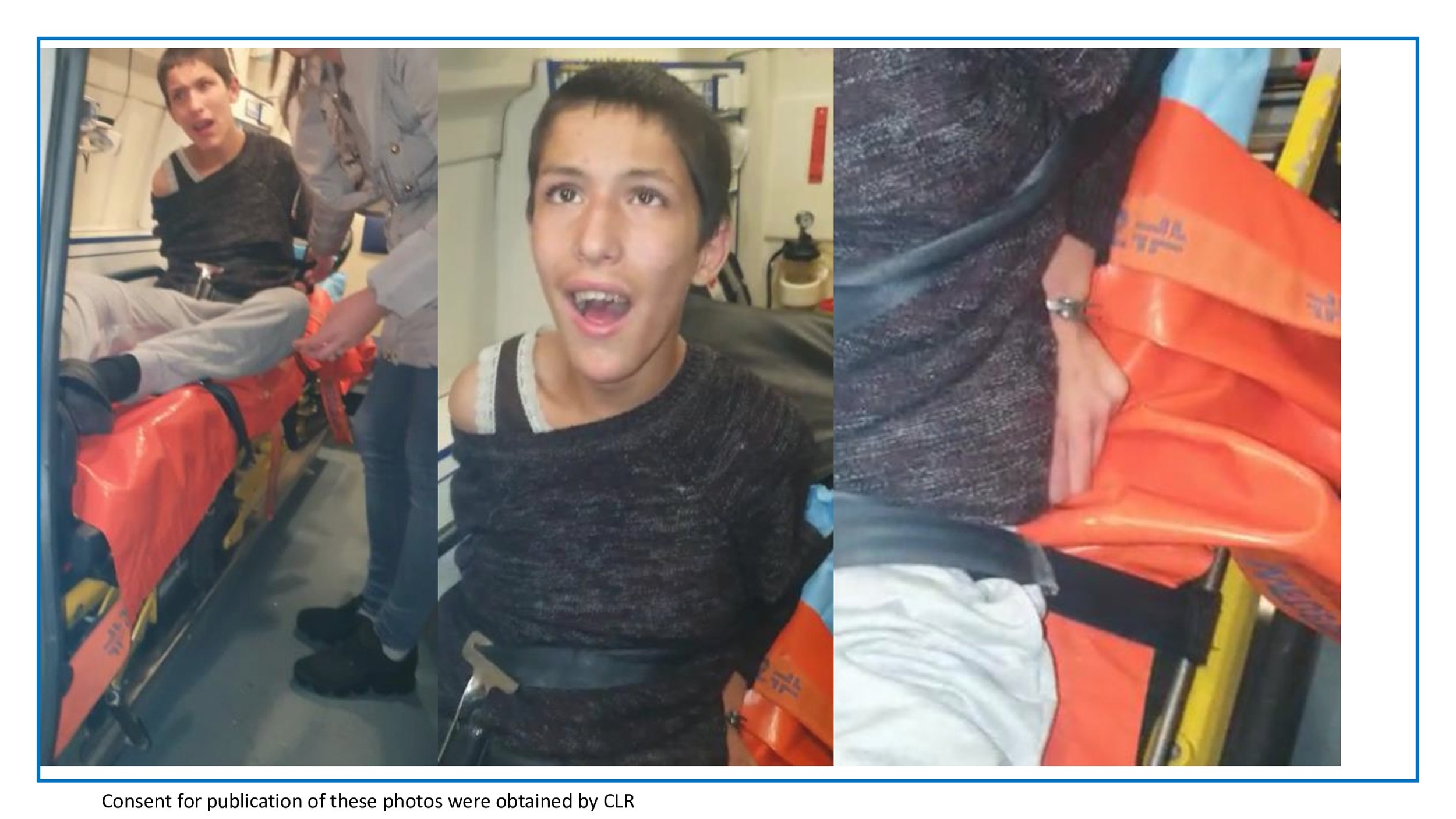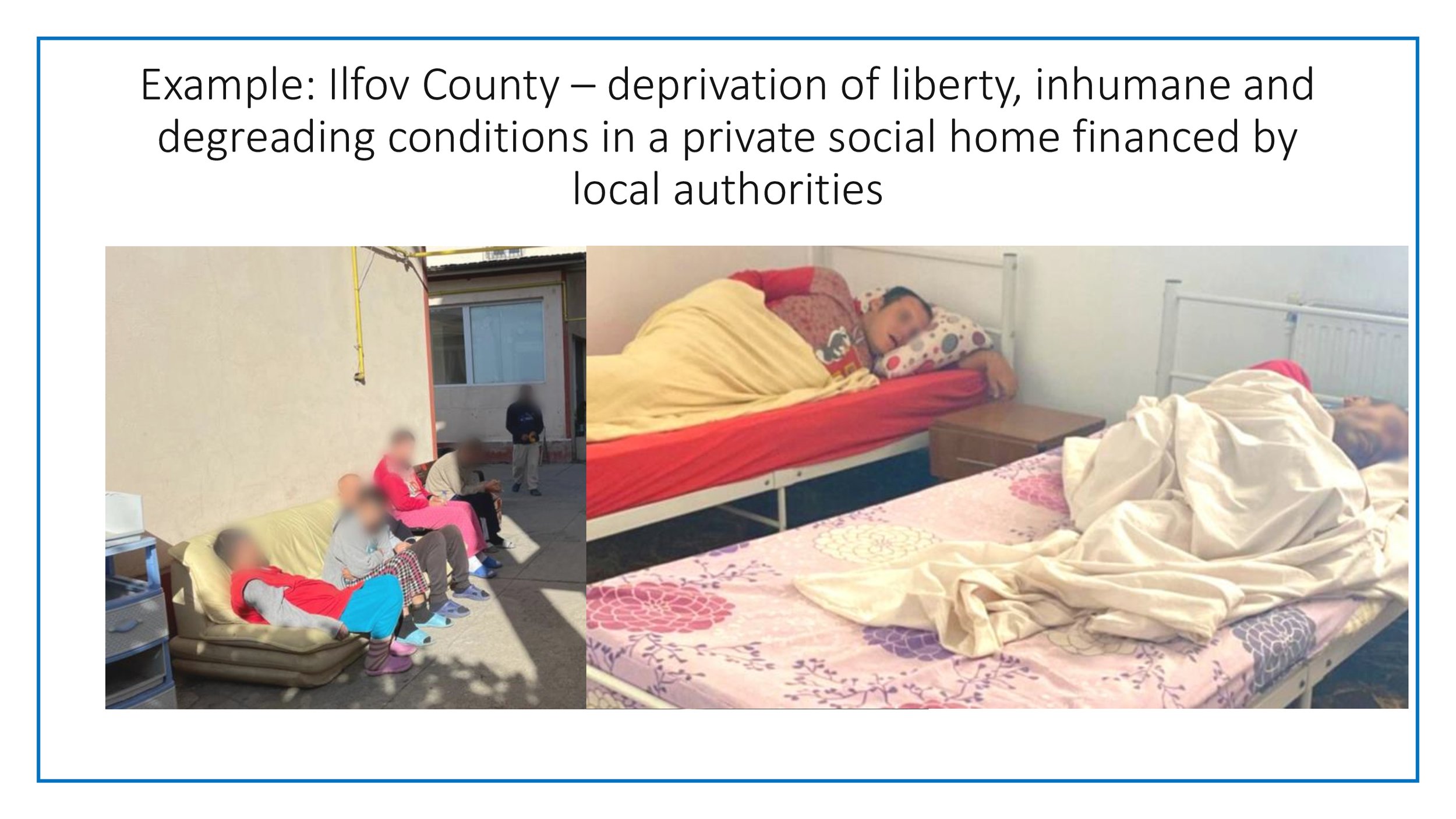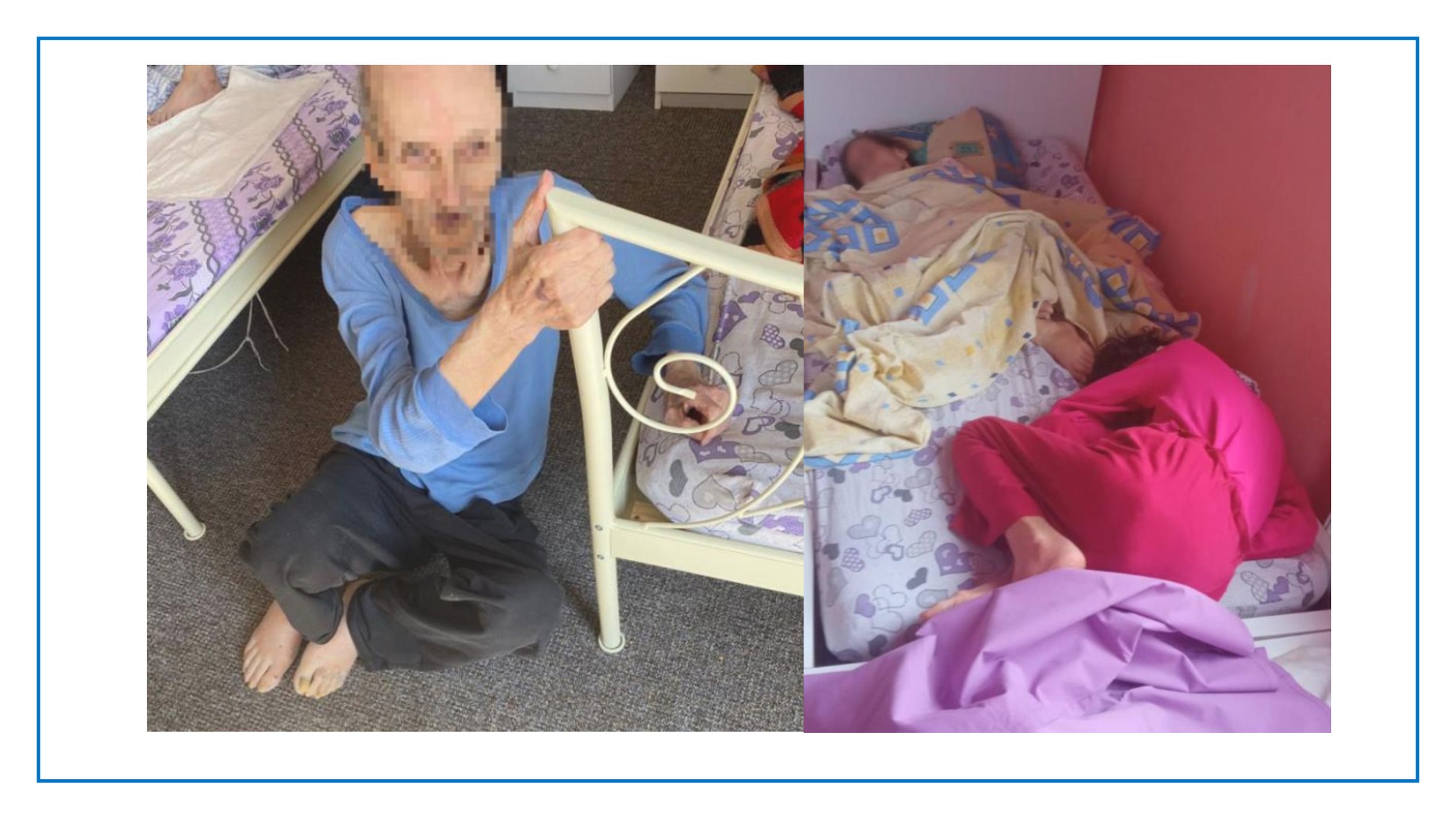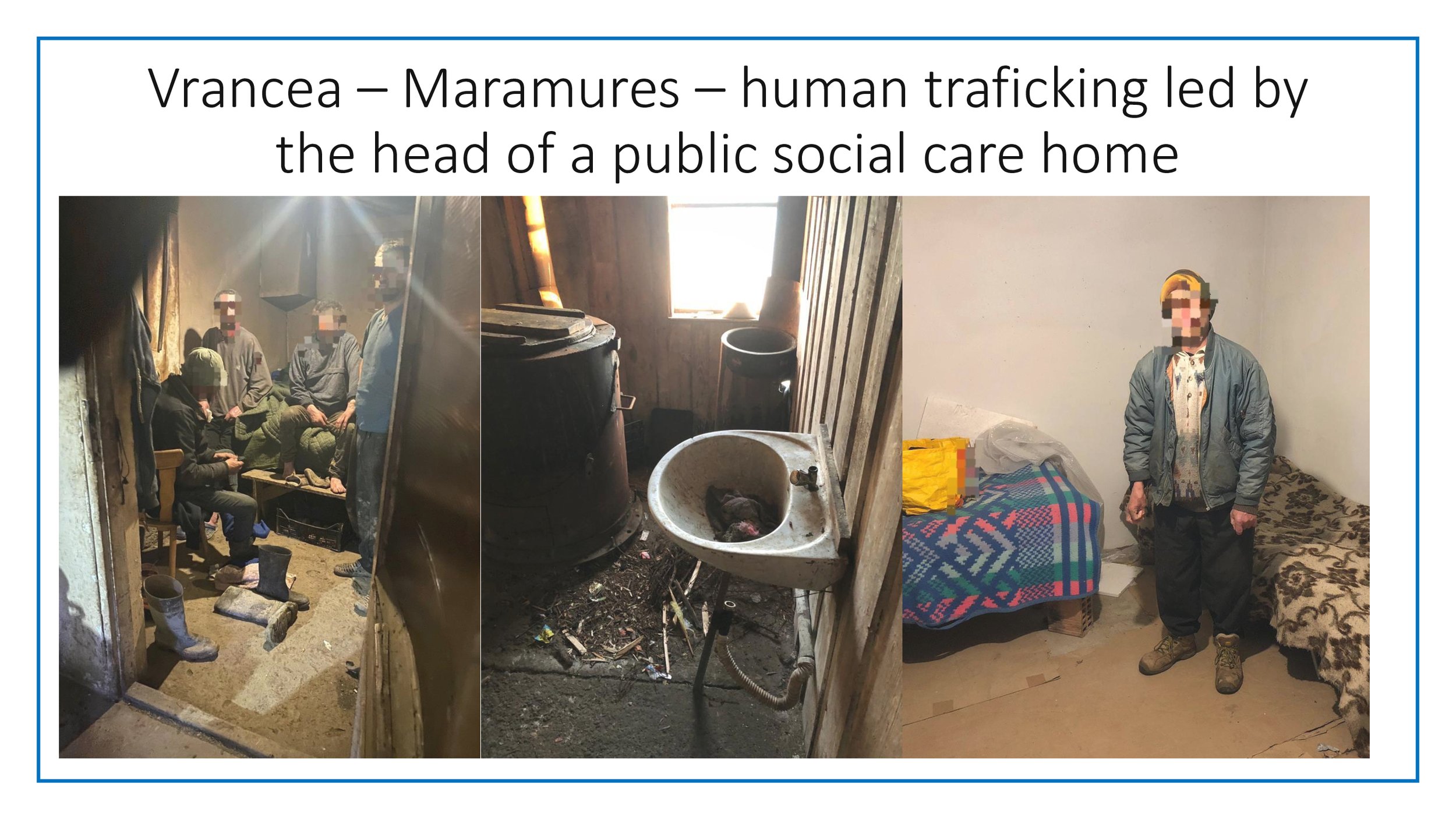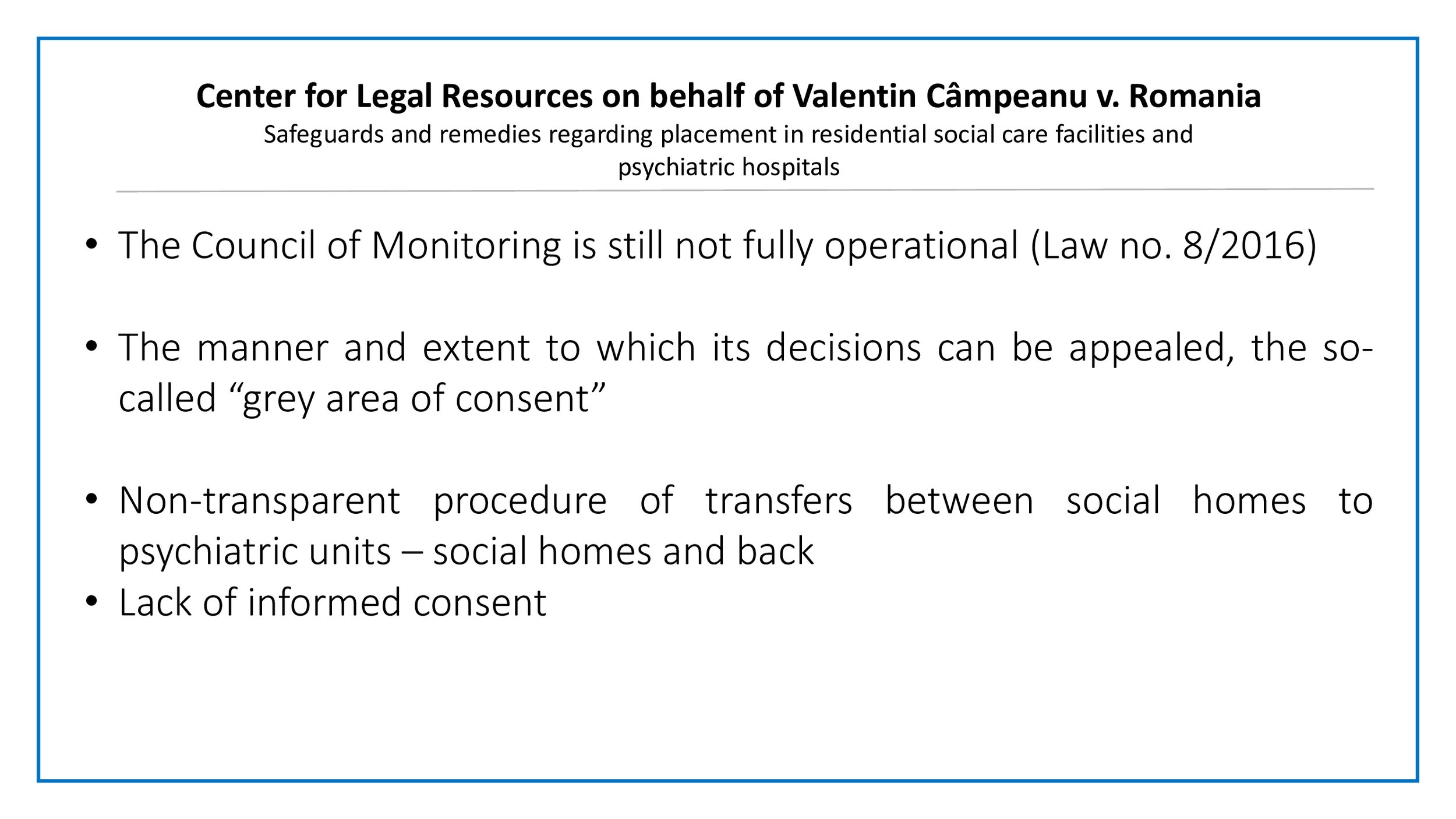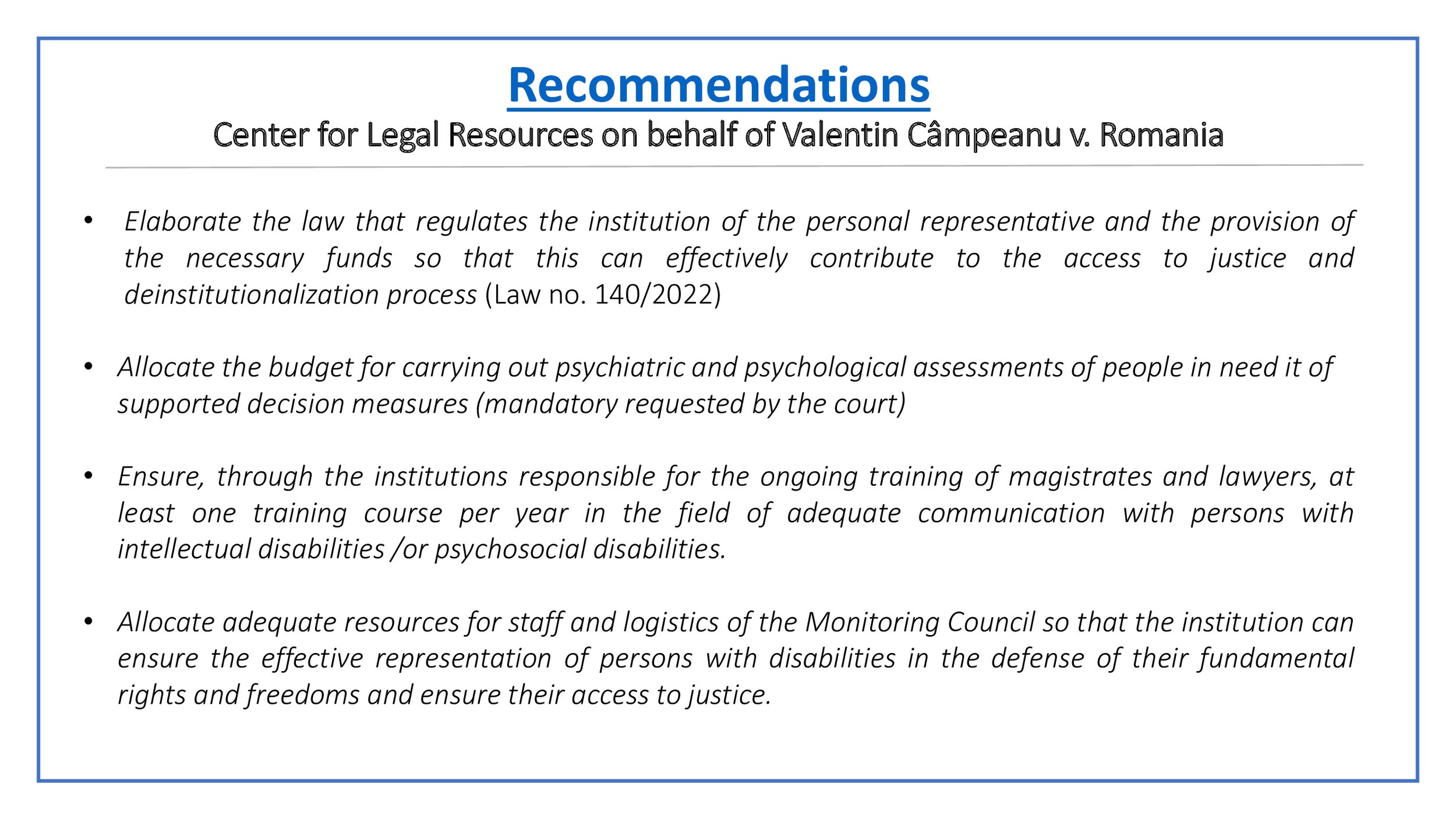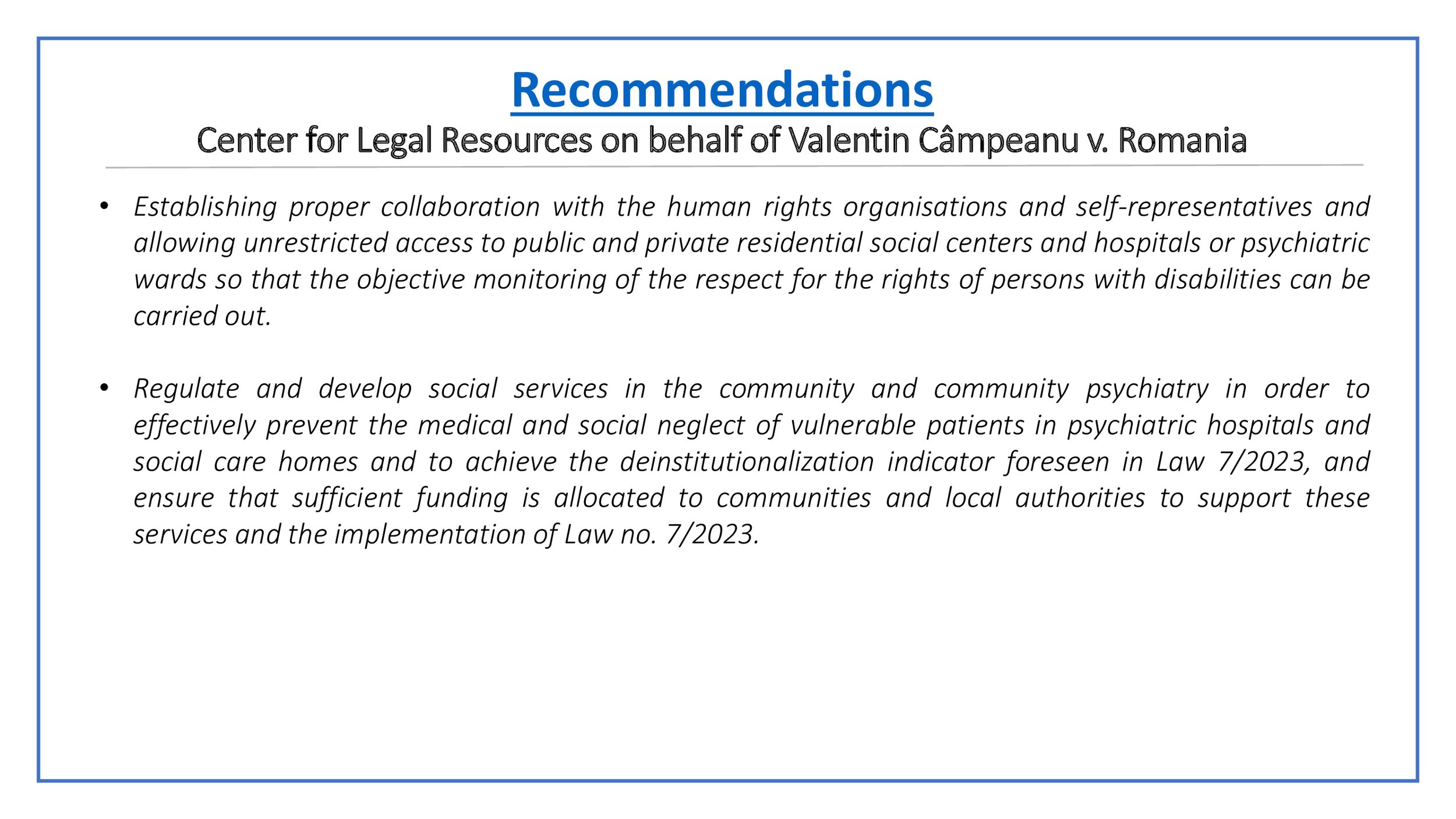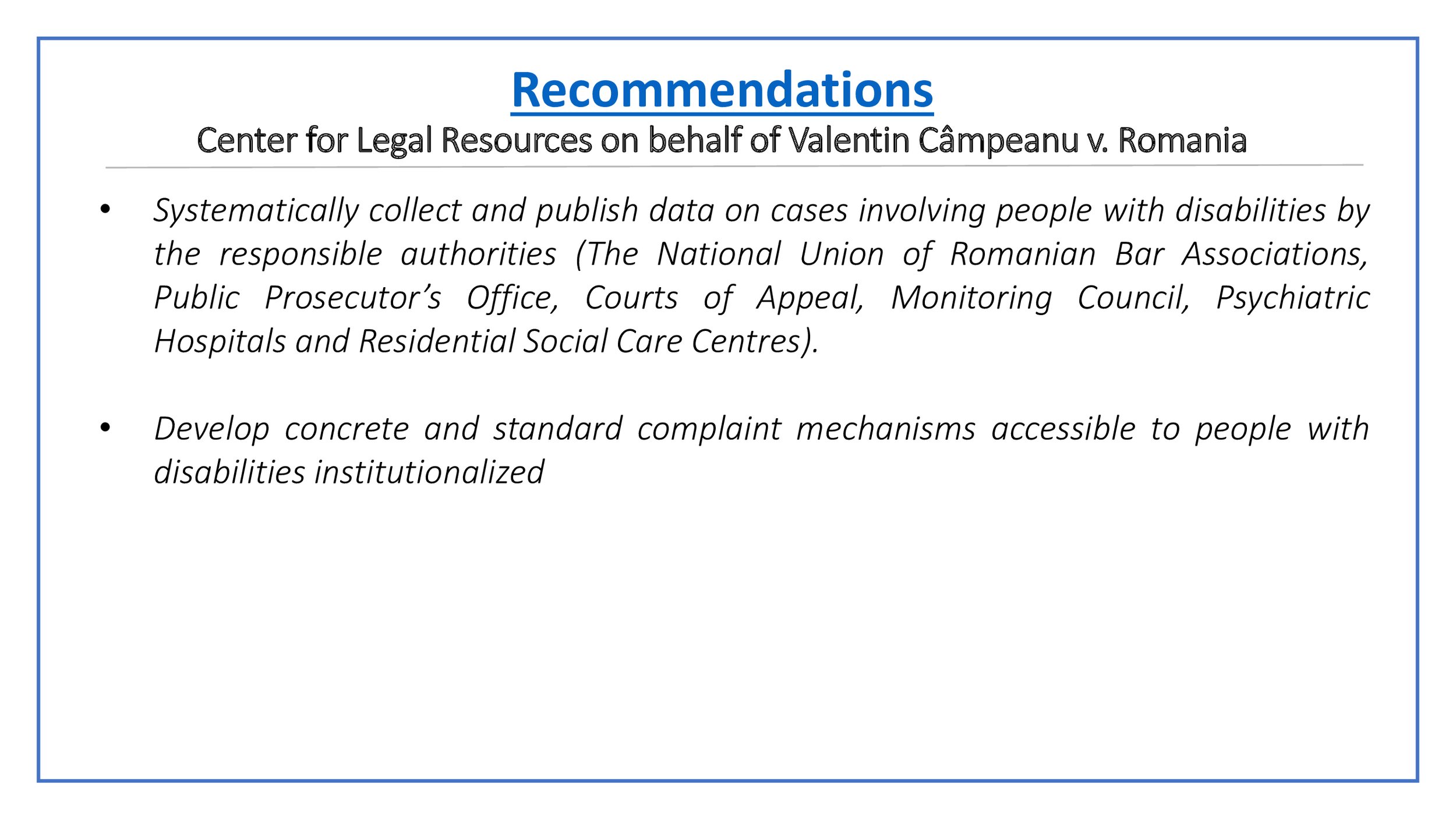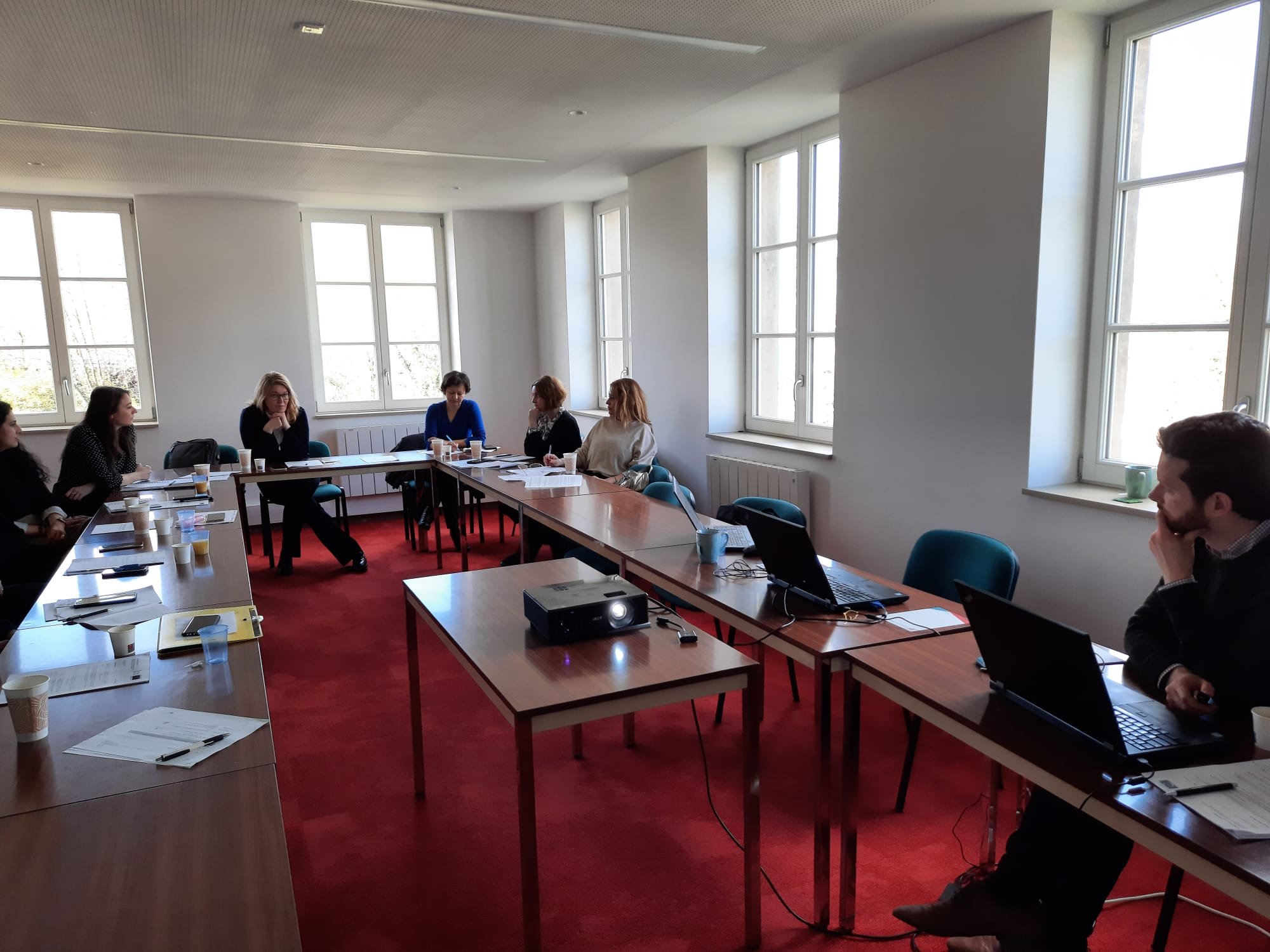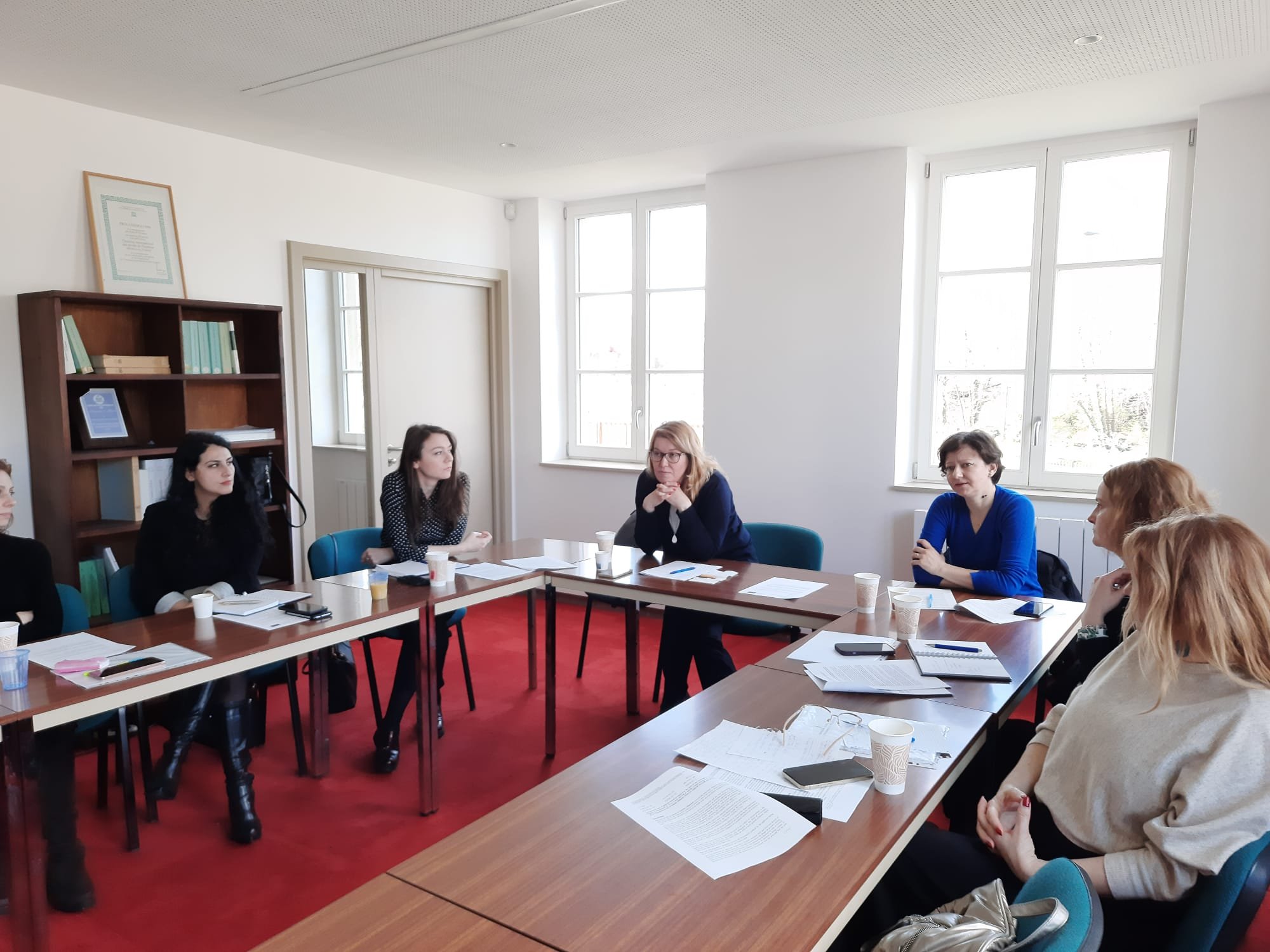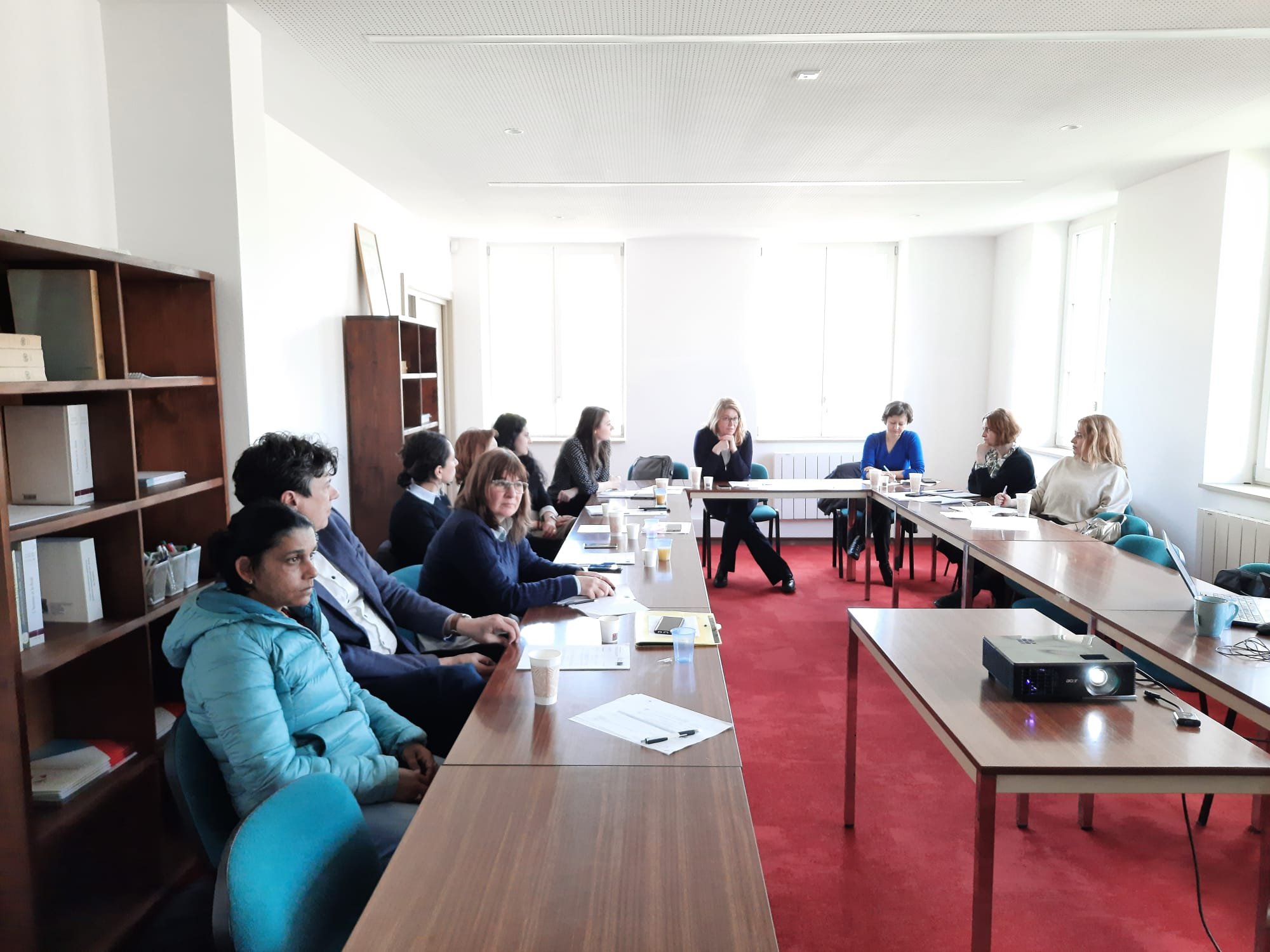EIN Civil Society Briefing May 2023: Bosnia and Herzegovina and Romania
/On the 25th May 2023, EIN held the latest civil society briefing for permanent Representations of the Council of Europe, ahead of the 1468th Committee of Ministers Human Rights Meeting on 7th – 9th June 2023. The event was held in person in Strasbourg, facilitated by Ioana Iliescu, EIN Law and Advocacy Officer.
The Briefing focused on the following cases:
The Sejdic and Finci v. Bosnia and Herzegovina case, which concerns ethnic-based discrimination on account of the ineligibility of persons not affiliated with one of the “constituent peoples” (Bosniaks, Croats or Serbs) to stand for election to the House of Peoples and the Presidency. This presentation was given by Chelsea Gonzalez, Legal Project Officer, from Minority Rights Group International.
The Cristian Teodorescu v. România group and Parascineti v. România judgment concern: a) ill-treatment in psychiatric hospitals due to overcrowding, poor sanitary and hygiene conditions, including the absence of an individual bed, and the impossibility to spend time outdoors due to staff shortages; and b) legislative deficiencies as regards the procedure and safeguards for involuntary placement in psychiatric hospital facilities and general failure of the competent authorities to apply this procedure. This presentation was given by Georgiana Pascu, Program Manager from the Centre for Legal Resources.
The N. v. România and R.D. and I.M.D. v. România cases concern: a) unlawful psychiatric confinement as security measures and deficiencies in the judicial review proceedings and b) the absence of a legal basis for compulsory administration of treatment to such patients. This presentation was given by Georgiana Pascu, Program Manager from the Centre for Legal Resources.
The Centre for Legal Resources on behalf of Valentin Campeanu v. Romania case concerns: a) deficiencies in the legal protection and medical and social care afforded to vulnerable persons; b) the ineffectiveness of criminal investigations into deaths of persons with disabilities in mental health institutions; and c) safeguards and remedies regarding placement in residential social care facilities and psychiatric hospitals. This presentation was given by Georgiana Pascu, Program Manager from the Centre for Legal Resources.
Elisabeta Moldovan, self-representative and Co-president of the Ceva de Spus Association, made a statement regarding her personal experience of a placement in a mental health hospital, with translation support from Alina Ursoi, psychologist and support staff member at the UnLoc Association.
Sejdic And Finci v. Bosnia and Herzegovina
The Sejdic and Finci v. Bosnia and Herzegovina case concerns discrimination against the applicants on account of their ineligibility to stand for election to the Presidency of Bosnia and Herzegovina due to their lack of affiliation with a constituent people (i.e. Bosniaks, Croats or Serbs) or due to their failure to meet a combination of the requirements of ethnic origin and place of residence (violations of Article 1 of Protocol No. 12).
Minority Rights Group International provided participants with explanations regarding the Dayton Accords and Electoral Quotas, explaining the effects of the quota system, which disenfranchises minorities, discriminates against constituent peoples living in ‘wrong’ entity and facilitates the trickling down of discrimination to local level.
Minority Rights Group International discussed the Council of Europe Commissioner for Human Rights Rule 9 Submission from April 2023, setting out the Commissioner’s primary concerns regarding the recent developments at national level:
“[N]o clarity as to what [the changes to the Constitution and electoral legislation] entail”.
Legislative reform discussions: “legitimate representation of constituent people”.
Special rights for constituent peoples, excluding minorities.
“Even if this only means preserving the existing situation, this implies that being just a citizen is considered to be of a lower status, as opposed to being a member of one constituent people, which would be contrary to the principle of non-discrimination.”
The CoE Commissioner argues that the failure to execute these judgments is leading to a deterioration of situation in BiH, and to amplified ethnic tensions. The system based on ethnic discrimination leads to increased threats to stability; the rise of hate speech; the glorification of war criminals; and genocidal denial. Furthermore, she argues that:
“[F]ull elimination of ethnic discrimination from both the Constitution and the electoral legislation”.
“It is imperative that the authorities place focus on building a state based on the equality of citizens, rather than on further embedding ethnic discrimination in the Constitution and the electoral legislation.”
Minority Rights Group International outlined to participants the case’s current status of implementation:
There has been no progress in 14 years.
The discriminatory provisions remain in Constitution and electoral legislation.
There have been 4 general elections under discriminatory framework and 4 Interim Resolutions by CoM.
There has been no outreach to non-constituent minorities or the plaintiffs, and recent legislative reforms do not address implementation.
Minority Rights Group International set out their their current concerns regarding the case to participants:
The lack of outreach to non-constituent minorities to ensure changes from implementation
2021 Interim Resolution (CoM), March decision (CoM) and BiH authorities do not reference participation of non-constituent minorities in legislative reform
Ongoing exclusion of minorities from bodies tasked with enacting reforms
Minority Rights Group International provided their recommendations, asking the Committee of Ministers to:
Appeal to Member States to request action to ensure implementation with judgments.
Issue an Interim Resolution stipulating that process of amending the Electoral Law and Constitution must be participatory and involve robust consultation of non-constituent minorities, which should address the Constitutional, Electoral Law amendments, judgment implementation, requesting:
Timeline for implementation with time for meaningful consultation of minorities
Representatives from minority groups named to any oversight body
Meaningful consultation of plaintiffs in Sejdić and Finci group of cases
Specific mechanisms to ensure minority and CSO participation
BiH to share draft amendments with CoM prior to adoption.
Please see the slides for the full Briefing.
Relevant Documents:
NGO Communications
Other Organisations Communications
CM Decisions
The Parascineti v. România concerns the ill-treatment suffered by the applicant during his involuntary placement in the psychiatric unit of the Sighetu Marmaţiei Hospital between 5 and 13 July 2005, due to overcrowding, poor sanitary and hygiene conditions, including the absence of an individual bed, and the impossibility to spend time outdoors due to staff shortages (violation of Article 3).
Centre for Legal Resources România outlined the conditions in psychiatric hospitals in Romania to participants:
16,073 psychiatric beds nationwide
4 security (forensic) psychiatric hospitals
Chronic wards accommodate more than 8000 patients
Centre for Legal Resources România reminded participants of their findings of their visit to the institutions in 2019 & 202:
8 residents locked in 6 cages
Tied with shirts and strips of cloth
Lack of specialized staff and significant underfunding
Situations with a high risk of injury, self-harm and aggression
Centre for Legal Resources România explained to participants the lack of adequate health care services and staff and Inefficient investigations of the causes of deaths in Botoșani:
24 March 2023: An 87-year-old patient died in the hallway of the medical unit without anyone jumping to his aid.
On Thursday morning, around 5am, a nurse found him dead in the main hallway on the ground floor. Three hours earlier, a nurse had administered the treatment in a ward on the third floor - in the "Medical" section.
What happened to the patient in the meantime, no one in the hospital knows. The manager shrugs when asked when the old man left the ward
24 May 2023: A man aged just 47, brought in to withdraw, died before doctors' eyes. They called an ambulance, but it was too late. The man was in ethanolic withdrawal at the psychiatric ward - acute ward.
28 Nov. 22: patient died after choking on food
15 June 2022: an 18-year-old patient stabbed himself in the chest with a knife. He had several admissions to psychiatrists. The ambulance with emergency doctors could not save him
Cristian Teodorescu v. România
The Cristian Teodorescu v. România case concerns the unlawful placement of the applicants in psychiatric hospitals, or in one case (Ulisei Grosu) the applicant’s arrest by police with a view to such placement, without compliance with the procedure prescribed by the Mental Health Act and without any justification relating to their mental health condition (violations of Article 5 § 1(e)).
CLR reminded participants of the main issues in the case:
Failure to comply with Mental Health Act procedure and placement without justification relating to mental health condition.
Failure to comply with the legal requirement to obtain consent for medical treatment.
Inconsistent knowledge among healthcare professionals about the relevant procedures.
The NGO provided an overview of the unlawful involuntary placements in psychiatric hospitals:
There is no mental health department within the Ministry of Health.
The Ministry of Health has not requested EU budget for the mental health community services (Cohesion Policy budget)
The latest communication (March 2023) from authorities does not refer to the living conditions and rights of persons in psychiatric hospitals.
No public data on involuntary placements in psychiatric hospitals and the transfers between social and psychiatric system
In 2018, CLR collected some data from several psychiatric hospitals through freedom of information requests (only some hospitals responded):
Out of 524 involuntary admissions, only 112 were referred to the courts for judicial review.
There was not even a single case in which court overturned the decision of involuntary placement.
206 people involuntarily placed in psychiatric hospitals came from residential centers for people with disabilities.
There were 2139 "social cases”.
There is a lack of progress at national level.
The lack of community-based mental health and social care services leads to involuntary placements and to de facto involuntary placements, which are being used as measure of “first resort” instead of a measure of last resort (as Article 5 of the European Convention requires). This leads to an overload of the system of mental health hospitals and to overcrowding and low compliance with procedural guarantees.
There is no independent body with monitoring, control and sanctioning powers.
CLR’s cooperation protocol with the Ministry of Labour and Social Solidarity was recently rescinded due to reports and criminal complaints filed by CLR following abuses in social care private homes financed with local authority money.
CLR provided their recommendations, asking the Committee of Ministers to:
Urge the national authorities to provide a concrete action plan for the implementation of these judgments.
Increase the frequency of examination of these cases.
Instruct the Secretariat to prepare an interim resolution.
Request data on the number of patients with mental disabilities treated in emergency wards of county hospitals
Request the authorities to equip psychiatric wards with equipment for emergency medical interventions.
Request the authorities to:
Provide recent disaggregated statistics on non-voluntary admission procedures in psychiatric hospitals and units since 2018.
Adopt a concrete legislative framework on access to justice of non-voluntary hospitalizations and investigate the causes of deaths.
Urgently allocate of a concrete budget plan for the community psychiatry system.
Appoint a coordinator at government level for the execution of the obligations arising from the judgments of the ECtHR against Romania in the field of psychiatry and mental health.
Please see the slides for the full Briefing.
Relevant Documents:
NGO Communications
CM Decisions
N. v. Romania and R.D. and I.M.D. v. Romania
The N. v. Romania case concerns the psychiatric confinement of the applicant, who has been diagnosed with a psychiatric condition. Although the detention was first imposed in 2001 as a security measure during criminal investigations, the Court only examined the situation, as the complaints about the earlier period were out of time.
The R.D. and I.M.D. v. Romania case concerns the non-voluntary confinement of the applicants in a psychiatric hospital for the purpose of compelling them to undergo medical treatment and about the obligation to undergo that medical treatment.
CLR provided an overview of the main issues in the N v. Romania case:
Unlawful psychiatric confinement as a security measure for the purpose of compelling them to undergo medical treatment.
Measure imposed following criminal proceedings condemning the applicants to compulsory psychiatric treatment, based on medical reports of expertise dated 3 years before the date of confinement in the psychiatric hospital without proper examination by the domestic courts of the degree of social danger justifying the safety measure or of the degree of social danger of the criminal offense.
Absence of a legal framework concerning the obligation to undergo medical treatment: Criminal Code does not offer to people diagnosed with a psychiatric condition sufficient guarantees against arbitrariness as concerns the administration of medical treatment.
The NGO outlined the challenges of non-voluntary psychiatric confinement:
No legislative provisions to set clear limits on when and under what conditions a non-voluntary psychiatric confinement (as security measure) can be taken.
Many involuntary placement measures which are not legal, are arbitrary and unjustified.
Lack of safeguards: persons with mental health conditions who commit criminal acts without discernment and are placed in forensic psychiatric hospitals receive a “life sentence”.
On June 2020, 1,424 persons were admitted to psychiatric and security measures hospitals. Approximately 14% had a disability certificate (the majority having mental disabilities). 80% of the people admitted were reported as having a mental disability. However, without disability certificates they cannot receive procedural adaptations.
Inconsistencies between the relevant legislative provisions and the factual situation
Provisions of the Criminal Code in force (art. 109 and 110) stipulate that both the obligation to medical treatment and hospitalization are taken "until recovery or until an improvement is obtained that removes the state of danger" - in this situation the Romanian authorities have not yet identified a solution that is applicable to persons with intellectual disabilities.
Persons with intellectual or psycho-social disabilities under involuntary confinement security measures risk being detained for life.
Medical confinement: there is no clear procedure applicable for the re-examination or changing of measures for medical confinement, as regards the periodicity of medical examinations. There is no legislative framework to ensure legal aid in this area.
No dedicated spaces and services for the needs of persons with mental health conditions who are currently detained in forensic psychiatric hospitals, and whose detention review would lead to their release.
CLR provided their recommendations, asking the Committee of Ministers to request the Romanian authorities to:
Adopt of a legislative framework to regulate in concrete terms the situation of persons subjected to security measures (involuntary confinements in forensic psychiatric hospitals and medical confinements) and the need for periodic reassessments, in order to ensure that they do not remain in psychiatric hospitals indefinitely.
Enact a clear legislative framework to regulate the situation of persons subjected to security measures and to ensure legal assistance for persons with mental health conditions subjected to security measures (and all mental health institutions).
Amend the Criminal Code to identify a solution applicable to persons with intellectual or psychosocial disabilities, for whom "the full recovery" is not possible, and to provide them with sufficient guarantees against arbitrariness in the administration of medical treatment.
Carry out regular monitoring visits to forensic psychiatric hospitals and communicate the conclusions of the monitoring visits to the Committee of Ministers in order to have a close observation of the developments on the ground.
Please see the slides for the full Briefing.
Relevant Documents:
NGO Communications
CM Decisions in N. v. România:
The Centre for Legal Resources on behalf of Valentin Campeanu v. Romania case concerns the authorities’ failure to protect the right to life of Mr Câmpeanu, a young man of Roma origin, orphaned, HIV-positive and with “severe intellectual disability” (substantial violation of Article 2).
CLR outlines to participants the several human rights violations of the case:
Authorities’ failure to protect the right to life of a young man, orphaned, HIV-positive and with “severe intellectual disability”.
Ineffectiveness of the investigation and the court proceedings into his death
Lack in domestic law of a legal framework suited to the specific needs of people with mental disabilities and allowing for the examination of the allegations concerning the violation of Mr Câmpeanu’s right to life by an independent authority. The Court stated that Romania must adopt measures to ensure that “persons with mental disabilities in a situation comparable to that of Mr Câmpeanu are afforded independent representation, enabling them to have Convention complaints relating to their health and treatment examined before a court or other independent body”.
CLR provided information on recent developments on legal protections for vulnerable adults:
Law no. 140/2022 which regulates the protection measures for people with intellectual and/or psychosocial disabilities was enacted, but there are important concerns regarding its' implementation.
There are approx. 90.000 cases involving the judicial protection of ”incapable” adults, for which this law will be applied.
Concerns regarding the implementation Law no. 140/2022 :
Lack of training of the professionals working with persons with disabilities.
Methodology is hindering the process: high costs and expenses are not supported from the national health fund.
Lack of concrete and clear information regarding the mechanism for conducting medical and psychosocial evaluation reports.
The norm which states that the institution of the personal representative will be regulated by a special law has still not been drafted, thus persons in situations comparable with Valentin Campeanu remain without protection.
CLR discussed data on the effectiveness of criminal investigations into deaths in mental health institutions:
Data provided by the authorities refers to the number of suspicious death case files but not the number of deaths in institutions.
There is no information on the number of convictions
CLR provided data on deaths in mental health institutions in 2019:
336 deaths in 67 psychiatric units with 8064 beds; out of which only 215 notification of deaths (54 of them to the Monitoring Council, 183 to Police and Prosecutors, 15 to other institutions).
Causes of death: Lung disease (73); Asphyxia (17); Heart disease (175); Tumors (7); Suicide (4); Other causes (60).
In 2022, there were 1029 reported deaths in social care homes.
Examples of ongoing similar cases: young woman with mental disabilities with broken femur for months at Zătreni social care home.
The NGO outlined challenges to the safeguards and remedies regarding placement in residential social care facilities and psychiatric hospitals:
The manner and extent to which its decisions can be appealed, the so-called “grey area of consent”
Non-transparent procedure of transfers between social homes to psychiatric units – social homes and back.
Lack of informed consent.
The Monitoring Council is still not fully operational (Law no. 8/2016).
CLR provided their recommendations, asking the Committee of Ministers to request the national authorities to:
Elaborate the law that regulates the institution of the personal representative and the provision of the necessary funds so that this can effectively contribute to access to justice for vulnerable persons and to the deinstitutionalization process;
Allocate the necessary budget for carrying out psychiatric and psychological assessments of persons in need of supported-decision measures (which are mandatory requested by the national courts).
Ensure, through the institutions responsible for the ongoing training of magistrates and lawyers, at least one training course per year in the field of adequate communication with persons with intellectual disabilities /or psychosocial disabilities.
Allocate adequate resources for staff and logistics of the Monitoring Council so that the institution can ensure the effective representation of persons with disabilities in the defense of their fundamental rights and freedoms and ensure their access to justice.
Establish proper collaboration with the human rights NGOs and self-representatives and allow unrestricted access to public and private residential social centers and hospitals or psychiatric wards so that the objective monitoring of the respect for the rights of persons with disabilities can be carried out.
Regulate and develop social services in the community and community psychiatry in order to effectively prevent the medical and social neglect of vulnerable patients in psychiatric hospitals and social care homes and to achieve the deinstitutionalization indicator foreseen in Law 7/2023, and ensure that sufficient funding is allocated to communities and local authorities to support these services and the implementation of Law no. 7/2023.
Systematically collect and publish data on cases involving persons with disabilities by the responsible authorities (the National Union of Romanian Bar Associations, the Public Prosecutor’s Office, Courts of Appeal, the Monitoring Council, psychiatric hospitals and residential social care centres).
Develop concrete and standard complaint mechanisms accessible to people with disabilities institutionalized.
Please see the slides for the full Briefing.
Relevant Documents:
CM Decisions
NGO Communications

